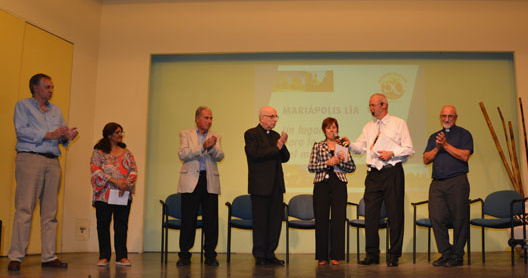
May 20, 2018 | Focolare Worldwide
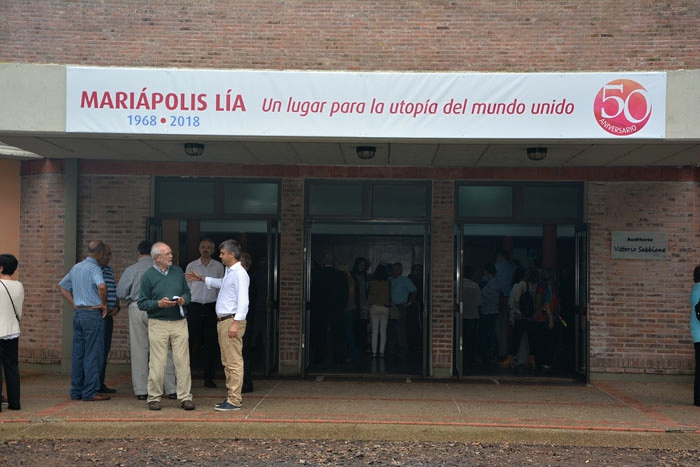 It began as a dream, just as every other Focolare town had. In 1950, Switzerland, after contemplating from a mountain above the Benedictine Abbey of Einsiedeln, Chiara Lubich had the idea that one day the spirituality of unity would produce something similar: “A small town with all the elements of a modern city: houses, churches, schools, shops, businesses and other services. A community of people from diverse backgrounds joined by Jesus’s new commandment: ‘Love one another as I have loved you.’” Her dream came true, first in Loppiano, Italy, then in another 24 small towns. Mariapolis Lia is one of them in the middle of the Argentine Pampas. Carlos Becaria, who is co-responsible for the town, was a member of the first group of pioneers: “There wasn’t anything yet. But there was a prophetic inspiration. Vittorio Sabbione, one of the first focolarinos, said to us: “You’re here because you chose God. Discomforts won’t be lacking, so you’ll have to keep Jesus on the Cross in mind. I’m not offering you anything ready-made: you have to build it all for yourselves. We stayed because we believed in that dream.”
It began as a dream, just as every other Focolare town had. In 1950, Switzerland, after contemplating from a mountain above the Benedictine Abbey of Einsiedeln, Chiara Lubich had the idea that one day the spirituality of unity would produce something similar: “A small town with all the elements of a modern city: houses, churches, schools, shops, businesses and other services. A community of people from diverse backgrounds joined by Jesus’s new commandment: ‘Love one another as I have loved you.’” Her dream came true, first in Loppiano, Italy, then in another 24 small towns. Mariapolis Lia is one of them in the middle of the Argentine Pampas. Carlos Becaria, who is co-responsible for the town, was a member of the first group of pioneers: “There wasn’t anything yet. But there was a prophetic inspiration. Vittorio Sabbione, one of the first focolarinos, said to us: “You’re here because you chose God. Discomforts won’t be lacking, so you’ll have to keep Jesus on the Cross in mind. I’m not offering you anything ready-made: you have to build it all for yourselves. We stayed because we believed in that dream.” 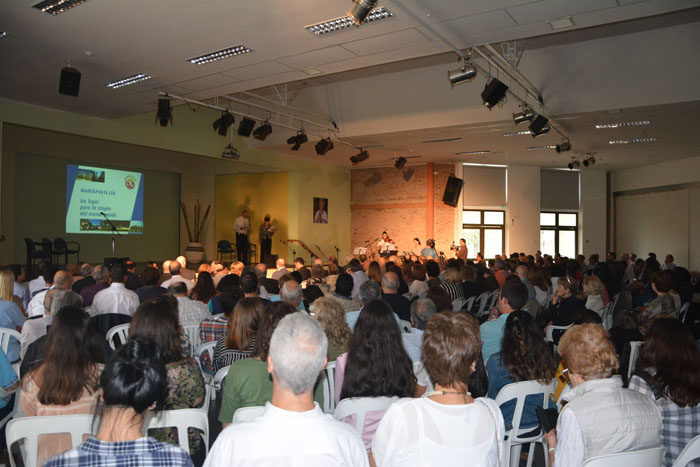 Mariapolis Lia is named after Lia Brunet (December 25, 1917 – February 5, 2005), one of the first companions of Chiara Lubich, invited by her to become a pioneer and take the charism of unity to the Latin American continent. A woman of Trent, like the foundress of the Focolare, she was labelled a revolutionary because of the radical way they lived the Gospel on a continent marked by so many social problems. Obviously, she never imagined as she gave a strong push to the Mariapolis in Argentina, that one day it would bear her name. “Lia”, just like Loppiano in Italy, which was recently visited by Pope Francis, strives to be a tangible sign of a dream that is coming true: a more fraternal world renewed by the Gospel. Currently 220 people live in Mariapolis Lia, but it welcomes hundreds of visitors throughout the year, mostly young people for long or short stays. Nearby stands Solidaridad Business Park, inspired by the Focolare’s Economy of Communion Project.
Mariapolis Lia is named after Lia Brunet (December 25, 1917 – February 5, 2005), one of the first companions of Chiara Lubich, invited by her to become a pioneer and take the charism of unity to the Latin American continent. A woman of Trent, like the foundress of the Focolare, she was labelled a revolutionary because of the radical way they lived the Gospel on a continent marked by so many social problems. Obviously, she never imagined as she gave a strong push to the Mariapolis in Argentina, that one day it would bear her name. “Lia”, just like Loppiano in Italy, which was recently visited by Pope Francis, strives to be a tangible sign of a dream that is coming true: a more fraternal world renewed by the Gospel. Currently 220 people live in Mariapolis Lia, but it welcomes hundreds of visitors throughout the year, mostly young people for long or short stays. Nearby stands Solidaridad Business Park, inspired by the Focolare’s Economy of Communion Project. 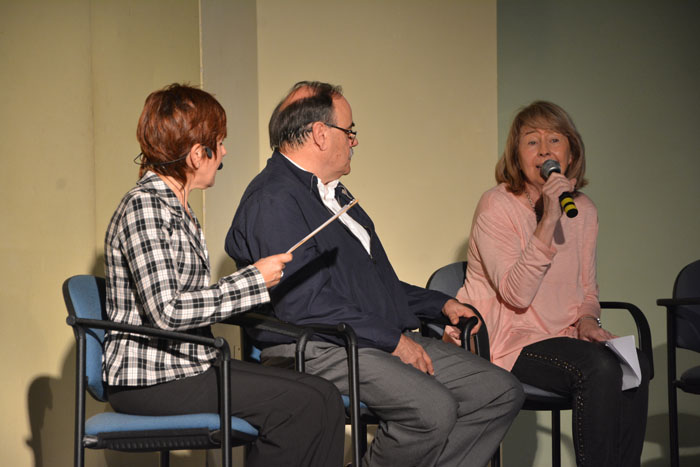 More than 250 people took part in the celebrations at the end of April, which will continue during the 50th anniversary year of the Mariapolis’s founding. They will be attended by Church leaders, representatives from the Movement, Christian Churches, Jewish faithful and people with no religious affiliation. “We got there at night,” recalls Marta Yofre, one of the first young women to arrive on at the threshold of the Mariapolis. I was feeling a sense of powerlessness, but also one certainty: Our Lady would be the one to build it.” Nieves Tapia, founder of the Latin American Centre for Learning and Solidarity Service, attended the training school for young people in the 1980s: “Here I learned to love the other country as my own and to enlarge my heart to all of Latin America.” “Without realizing it, I was given the gift to experience as something normal, what was actually totally revolutionary: love for neighbour.” For Arturo Claria, a psychologist, UNESCO Master in Culture of Peace, what he experienced in the Mariapolis twenty years ago “is a mark that I will never be able to erase, a living demonstration that love transcends life.”
More than 250 people took part in the celebrations at the end of April, which will continue during the 50th anniversary year of the Mariapolis’s founding. They will be attended by Church leaders, representatives from the Movement, Christian Churches, Jewish faithful and people with no religious affiliation. “We got there at night,” recalls Marta Yofre, one of the first young women to arrive on at the threshold of the Mariapolis. I was feeling a sense of powerlessness, but also one certainty: Our Lady would be the one to build it.” Nieves Tapia, founder of the Latin American Centre for Learning and Solidarity Service, attended the training school for young people in the 1980s: “Here I learned to love the other country as my own and to enlarge my heart to all of Latin America.” “Without realizing it, I was given the gift to experience as something normal, what was actually totally revolutionary: love for neighbour.” For Arturo Claria, a psychologist, UNESCO Master in Culture of Peace, what he experienced in the Mariapolis twenty years ago “is a mark that I will never be able to erase, a living demonstration that love transcends life.”  The Bishop of Mercedes-Lujan, Augustin Radrizzani: “It’s moving to realize what significance it has had for our country and for the world. It unites universal peace and brotherly love, illumined by the grace of this ideal.” Eduardo Leibobich from the Hebrew Organization for Inter-Confessional Dialogue, recalled the numerous “Peace Days that were held by the Mariapolis. Methodist pastor Fernando Suarez from the Ecumenical Movement of the Human Rights of People With Different Convictions: “I extend an invitation to join forces. It’s too beautiful the ideal of a free and equal human race, made brother and sister by respect and by mutual love.” Gustavo Clariá
The Bishop of Mercedes-Lujan, Augustin Radrizzani: “It’s moving to realize what significance it has had for our country and for the world. It unites universal peace and brotherly love, illumined by the grace of this ideal.” Eduardo Leibobich from the Hebrew Organization for Inter-Confessional Dialogue, recalled the numerous “Peace Days that were held by the Mariapolis. Methodist pastor Fernando Suarez from the Ecumenical Movement of the Human Rights of People With Different Convictions: “I extend an invitation to join forces. It’s too beautiful the ideal of a free and equal human race, made brother and sister by respect and by mutual love.” Gustavo Clariá
May 19, 2018 | Non categorizzato
The Christian celebration of the outpouring of the Holy Spirit upon Mary and the disciples of Jesus is celebrated at Pentecost, that is, on the fiftieth day of Easter. We read in the Acts of the Apostles: “When the day of Pentecost came, they were all together in one place. Suddenly a sound like the blowing of a violent wind came from heaven and filled the whole house where they were sitting. They saw what seemed to be tongues of fire that separated and came to rest on each of them. All of them were filled with the Holy Spirit and began to speak in other tongues as the Spirit enabled them.” (Acts 2:1-4). Chiara Lubich wrote when referring to the charism of unity: “The Holy Spirit is the gift that Jesus gave to us so that we might be one as He and the Father are one. Of course, the Holy Spirit was in us to begin with, since we were Christians; but here there was a new illumination, a new manifestation of the Spirit among us, which made us participants and actors in a new Pentecost, along with those ecclesial Movements renew the face of the Church.”
May 18, 2018 | Non categorizzato
“When Jesus was no longer physically present on earth, Mary lived with the Church, the continuation of Jesus. To outward appearances, she would have seemed to be the mother of John, representing all disciples, rather than the mother of Jesus who was no longer to be seen. So Mary was found in the heart of the Church, in the cenacle, the “upper room”. She had withdrawn there from Mount Olivet with the Apostles, disciples and pious women after the ascension. The Apostles “were constantly devoting themselves to prayer, together with certain women, including Mary the mother of Jesus” (Acts 1:14). The first Church – according to Saint Luke – formed “one heart and one soul” and “none of them was in need”, all gathered around the one table. How was such communion possible, making them all one? It was because Mary was there, hence the Holy Spirit was there. So the ideal of the Son was fulfilled and the Father reigned there. His kingdom had come, with the presence of “our Father who art in heaven” and “our daily bread on earth”. The Magnificat was being expressed again and diakonia – service, was being lived out. The function of Mary – a function of love, and therefore of the Holy Spirit – was and is that of unifying, putting heavenly and earthly goods in common. In this way the mystical body of Christ is raised to life; generating Jesus for the world; and in him she unifies souls together, setting them in wisdom. She is the model for mothers of Christian homes, with a heart that unifies, a mind that enlivens […], igniting the atmosphere of warmth (of “focolare” = fire place), where all feel as one, cells of the one body. Aware of this mission, which is to participate in the work of Christ, woman – associated more than any other creature with the work of creation – finds it easier to turn to the Creator. She can confide more tenderly with Mary. Following her example she can endow her intimate home life with both virginal purity and maternal warmth. In this way she can come to resemble the Virgin Mother. In the cenacle, Mary represented Jesus and hence bore the highest dignity, spiritually sustaining the juridical pre-eminence of Peter. But what came to light in her way of being was a soul who completely identified herself with the Church, making it her own, blessed fruit of her womb, hidden, losing herself within it, as a true ancilla Domini, handmaid of the Lord. In fact, all the faithful, laity included, must live the Church, in the Church, with the Church, always with this same sentiment. In this way the Church will no longer seem to be something extraneous, but will be their own, their life, the centre of their sanctification. Neither words nor special attire are needed. It is sanctity that needs to be lived within the Church. And the first fruit will be its unity. Mary inspires “many different forms of apostolate by the laity. … There are souls yearning to live the doctrine of Jesus more openly and more completely. There are souls burning with the desire to make him known to others, particularly to their work colleagues. There are those desiring to re-establish justice and charity within social institutions and to introduce into the temporal order of society a reflection of the perfect harmony that unites the children of God. To all these souls, Mary obtains the grace of the apostolate. She places on their lips words which can convince without wounding …” (Pope Pius XII). Mary is a social reformer, a credible model of apostolate, a symbol of charity, font of justice. No small number of lay movements look to her in order to contribute towards building unity, that ideal testament of Jesus, in a “Mary-like” manner, preparing for the city of God on earth. Mary, in fact, has been viewed by the saints as the “city of God”. Igino Giordani, Maria modello perfetto, Città Nuova, Roma, 1967 2012, pp.150-152.
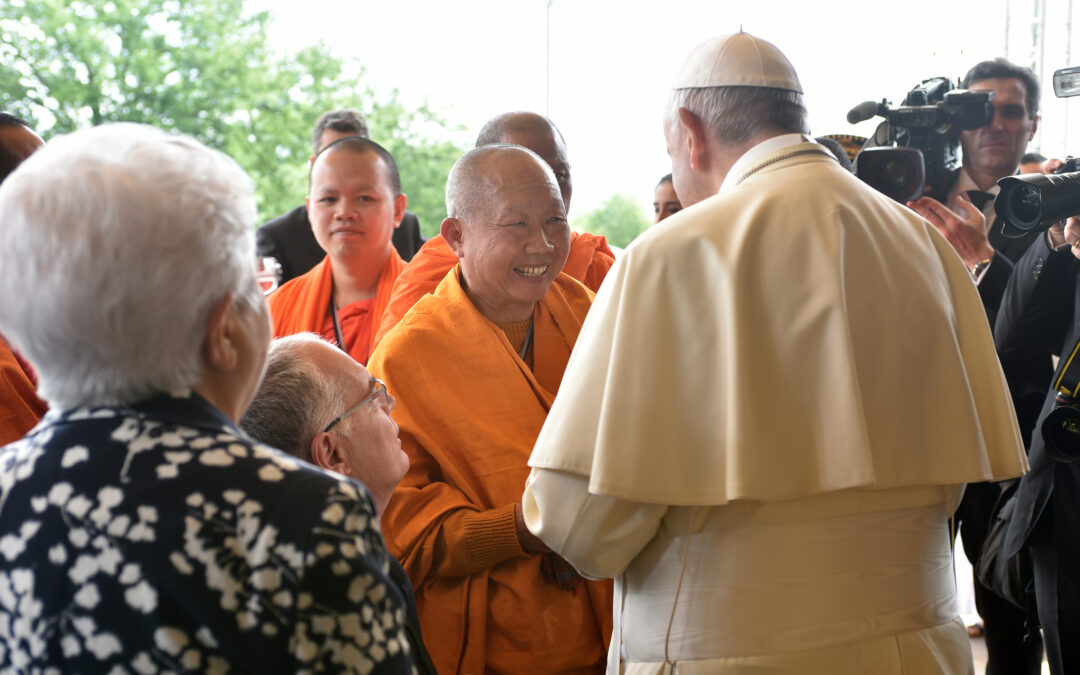
May 18, 2018 | Focolare Worldwide
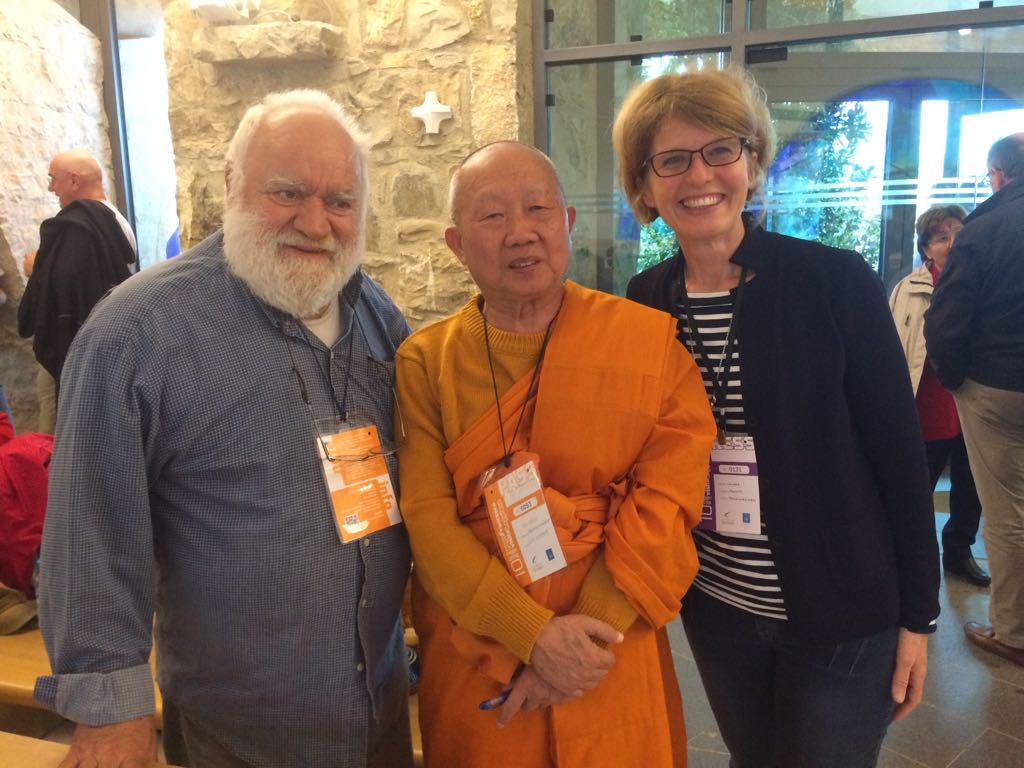 “Recently, just before the Holy Father visited Loppiano, I was in close contact with five Buddhist monks from Thailand,” says Luigi Butori. Originally from central Italy, Butori has lived in southeast Asia for close to 30 years. “I speak their language, and for the occasion I was their interpreter. It’s been an intense, profound, and demanding experience. “When they visited the Focolare Movement’s international center for religious near Rome, they were struck by way two religious brothers, who are no longer so young themselves, served them concretely and did everything they could for them. That’s when the monks began to perceive a light, a harmony, or as one of them put it: a unique ‘voice’ within and around them.” “The monks’ stay continued with a visit to the capital, accompanied by a guide who is a focolarina. The monk’s saw that her eyes ‘had that same smile as the brothers we met earlier.’ Then they spent a day in the city of Lucca, with the Focolare community there – close to 80 people ages 2 to 94. ‘You could see the same light in their faces,’ they said. “The monks briefly stopped for a few hours in Pisa, where the Leaning Tower is, and there was someone from the local community there. They had the same smile. “At this point one of the youngest monks exclaimed, ‘This child of Chiara Lubich has the same type of smile that we found in Rome, Castelli and Lucca – how is that possible?’
“Recently, just before the Holy Father visited Loppiano, I was in close contact with five Buddhist monks from Thailand,” says Luigi Butori. Originally from central Italy, Butori has lived in southeast Asia for close to 30 years. “I speak their language, and for the occasion I was their interpreter. It’s been an intense, profound, and demanding experience. “When they visited the Focolare Movement’s international center for religious near Rome, they were struck by way two religious brothers, who are no longer so young themselves, served them concretely and did everything they could for them. That’s when the monks began to perceive a light, a harmony, or as one of them put it: a unique ‘voice’ within and around them.” “The monks’ stay continued with a visit to the capital, accompanied by a guide who is a focolarina. The monk’s saw that her eyes ‘had that same smile as the brothers we met earlier.’ Then they spent a day in the city of Lucca, with the Focolare community there – close to 80 people ages 2 to 94. ‘You could see the same light in their faces,’ they said. “The monks briefly stopped for a few hours in Pisa, where the Leaning Tower is, and there was someone from the local community there. They had the same smile. “At this point one of the youngest monks exclaimed, ‘This child of Chiara Lubich has the same type of smile that we found in Rome, Castelli and Lucca – how is that possible?’

Buddhist monk Phramaha Thongrattana Thavorn (Luce Ardente) greeting the pope – Foto © R. Orefice – CSC Audiovisivi
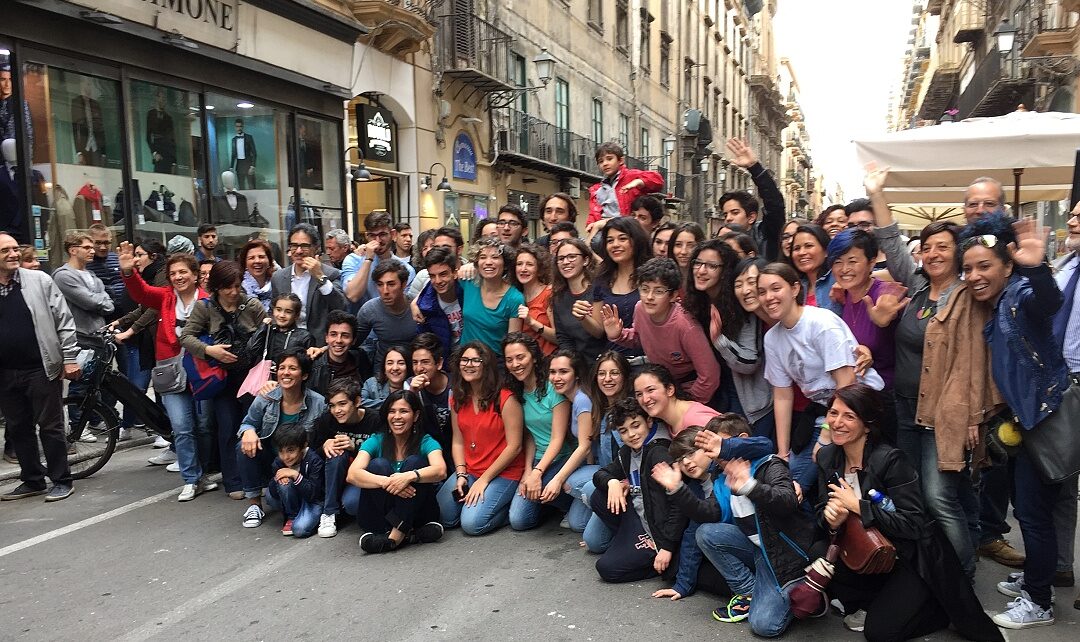
May 16, 2018 | Focolare Worldwide
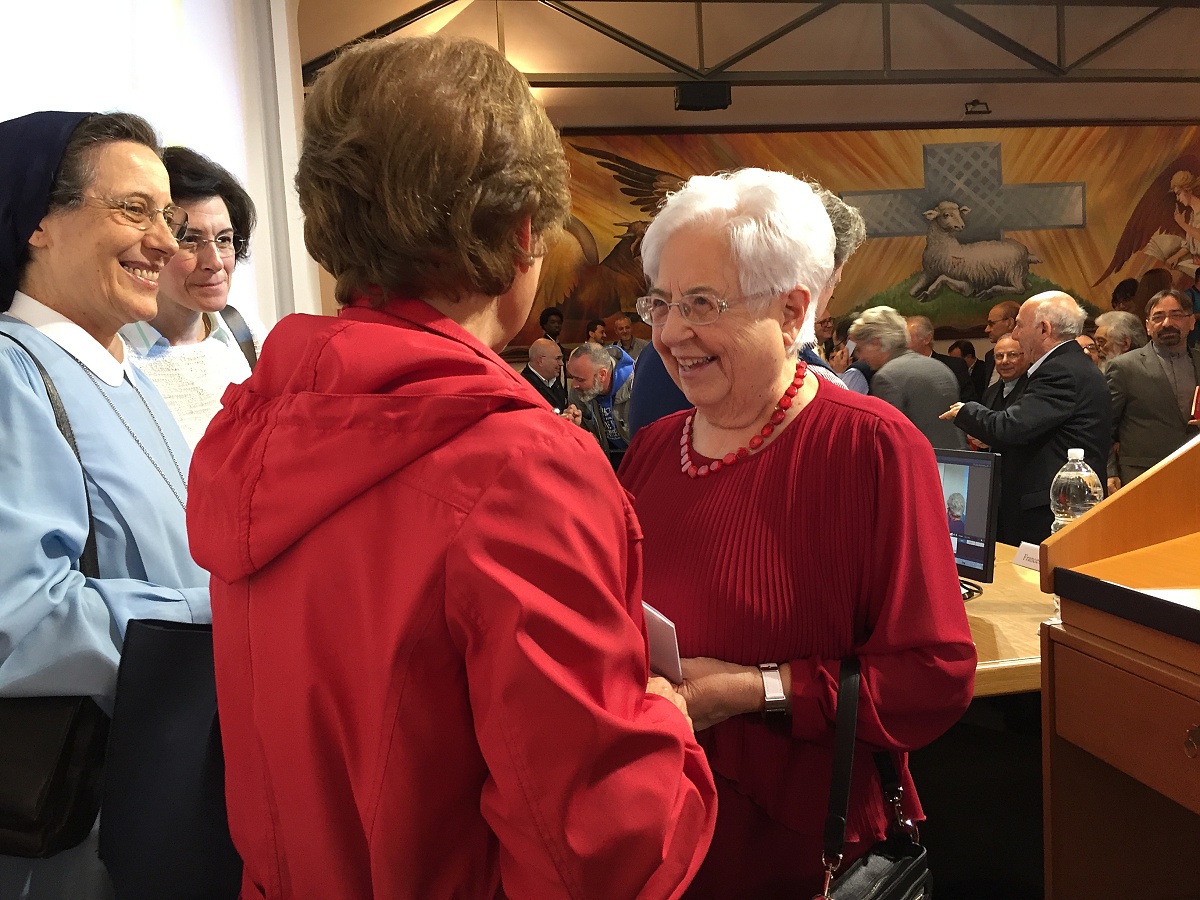 Focolare president, Maria Voce, concluded the event dedicated to the culture of unity and brotherhood, with a meeting of the family dedicated to the Focolare in the capital of Sicily, by offering a challenge: “That Palermo may become the capital of the culture of Resurrection, capital in the sense of “il capo”, (head city) from which the culture of Resurrection flows into the whole world.” Twenty years ago Chiara Lubich had received honorary citizenship in the Sicilian capital. Sincne then, the community has continued to follow this journey of striving to incarnate the words she spoke on that occasion: “Let us promise that Palermo will be forever in our hearts, until, through the audacity and courage of its citizens, it will become a model for many other cities within and beyond Italy, a true city on the hill.” The event, which was part of the Palermo, Capital of Culture 2018, promoted by the Municipality, embraced several fields: Law and Order, ecumenical dialogue, music and show with Gen Verde, workshops, flashmobs and roundtables promoted by the young people. More than 120 people took part in the Relationships and Law Meeting at the Regional Pariliament Building on May 11th. The gathering included presenations by several leaders from the world of Law and Justice, lawyers, students and scholars. Maria Voce concluded the discussions saying that the field Law and Justice is in extreme need of “poeple whose hearts are open to the grand ideal of the unity of the human family, and that for this reason put their whole self into working concretely for the healing of relationships, without fear or comprimise.”
Focolare president, Maria Voce, concluded the event dedicated to the culture of unity and brotherhood, with a meeting of the family dedicated to the Focolare in the capital of Sicily, by offering a challenge: “That Palermo may become the capital of the culture of Resurrection, capital in the sense of “il capo”, (head city) from which the culture of Resurrection flows into the whole world.” Twenty years ago Chiara Lubich had received honorary citizenship in the Sicilian capital. Sincne then, the community has continued to follow this journey of striving to incarnate the words she spoke on that occasion: “Let us promise that Palermo will be forever in our hearts, until, through the audacity and courage of its citizens, it will become a model for many other cities within and beyond Italy, a true city on the hill.” The event, which was part of the Palermo, Capital of Culture 2018, promoted by the Municipality, embraced several fields: Law and Order, ecumenical dialogue, music and show with Gen Verde, workshops, flashmobs and roundtables promoted by the young people. More than 120 people took part in the Relationships and Law Meeting at the Regional Pariliament Building on May 11th. The gathering included presenations by several leaders from the world of Law and Justice, lawyers, students and scholars. Maria Voce concluded the discussions saying that the field Law and Justice is in extreme need of “poeple whose hearts are open to the grand ideal of the unity of the human family, and that for this reason put their whole self into working concretely for the healing of relationships, without fear or comprimise.” 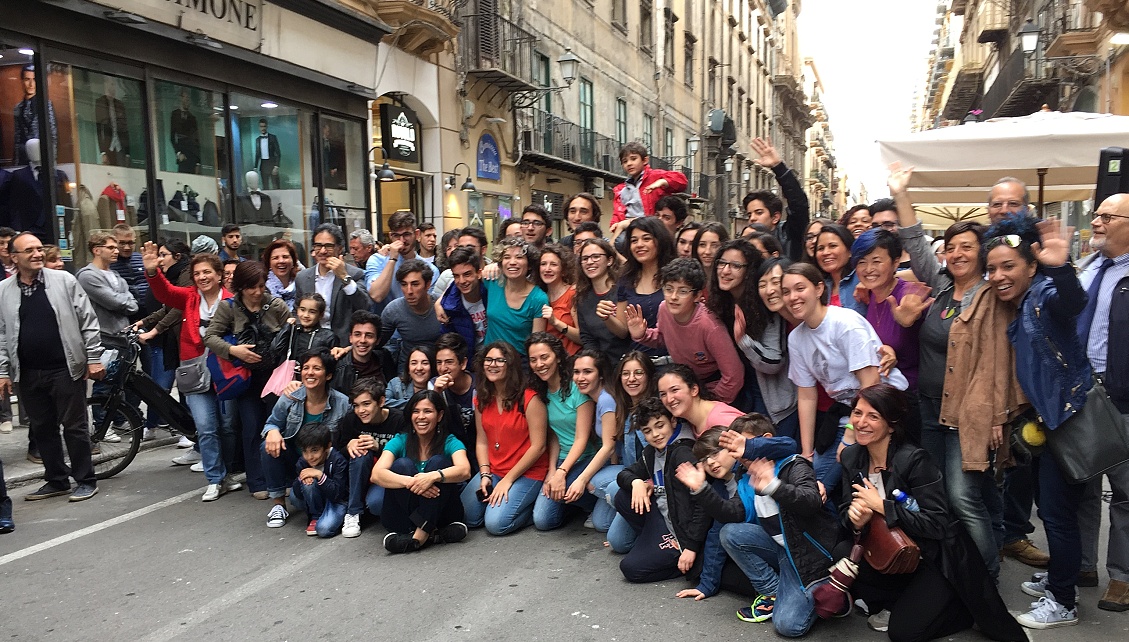 In the afternoon more than 300 young people held a programme on titled Digital Identity, promoted by IUS, and We are the choices we make” presented by Jesus Moran, co-president of the Focolare, and Mayor Leoluca Orlando. The young people presented testimonies of the choices that sometimes place them in crisis: whether to stay in Sicily or put their lives on the line and move to other cities or countries. Jesus Moran encouraged them to find the way to give of themselves. The choice falls back on “where can I give myself more and where can I develop my talents. […] Of I leave, I can’t just go to escape. If I stay, I can’t just stay our of fear.”Mayor Orlando stressed how difficult it can be to change a city that comes from years of submission to mafia rules and behaviors, and redeem oneself through a change of culture. In the morning of May 13th, there was a family moment at the celebration of the Mass, followed by a meeting for families in the historic neighbourhood of Albergheria/Ballaro with an artistic event for children. In the afternoon 500 representatives from more than 20 Christian Churches took part in Together in Charity, from Dialogue to Collaboration, at the Golden Theatre. The regional archbishop, Corrado Lorefice, Maria Voce and the director of the Director of the Regional Office for Ecumenism, Erina Ferlito made presentations. The testimonies described the journey begun by several cities of Sicily: from assisting prison inmates, to caring for the poor, the homeless and immigrants. Then there was the “On the Other Side” concert with Gen Verde and more than 800 people. In the preceding days there were exhibits by young people, workshops run by the band and a flashmob on one of the main thoroughfares of the city. This was also an overwhelming experience that excited by the youth and adults with the message of brotherhood that the international band brings around the world.
In the afternoon more than 300 young people held a programme on titled Digital Identity, promoted by IUS, and We are the choices we make” presented by Jesus Moran, co-president of the Focolare, and Mayor Leoluca Orlando. The young people presented testimonies of the choices that sometimes place them in crisis: whether to stay in Sicily or put their lives on the line and move to other cities or countries. Jesus Moran encouraged them to find the way to give of themselves. The choice falls back on “where can I give myself more and where can I develop my talents. […] Of I leave, I can’t just go to escape. If I stay, I can’t just stay our of fear.”Mayor Orlando stressed how difficult it can be to change a city that comes from years of submission to mafia rules and behaviors, and redeem oneself through a change of culture. In the morning of May 13th, there was a family moment at the celebration of the Mass, followed by a meeting for families in the historic neighbourhood of Albergheria/Ballaro with an artistic event for children. In the afternoon 500 representatives from more than 20 Christian Churches took part in Together in Charity, from Dialogue to Collaboration, at the Golden Theatre. The regional archbishop, Corrado Lorefice, Maria Voce and the director of the Director of the Regional Office for Ecumenism, Erina Ferlito made presentations. The testimonies described the journey begun by several cities of Sicily: from assisting prison inmates, to caring for the poor, the homeless and immigrants. Then there was the “On the Other Side” concert with Gen Verde and more than 800 people. In the preceding days there were exhibits by young people, workshops run by the band and a flashmob on one of the main thoroughfares of the city. This was also an overwhelming experience that excited by the youth and adults with the message of brotherhood that the international band brings around the world.
May 15, 2018 | Non categorizzato
The month of Ramadan started on 15 May and will end on 14 June. In this period of 29 or 30 days, the Muslims recall “the month in which the Koran was bestowed on mankind as a guide with clear teachings showing the Right way and a criterion of truth and falsehood” (Koran, Sura II, verse 185). During this period, prayers and acts of mercy are intensified. All those who are able shall fast from dawn to sunset, constituting the fourth of the five pillars of Islam. According to many theologians the spiritual meaning of fasts, together with prayer and meditation, sexual abstinence and renouncement in general, refer to the capacity of man to exercise self-control, patience and humbleness and remember to help the needy and less fortunate. Ramadan is thus a sort of exercise of purity against all the worldly passions, the benefits of which fall on the faithful all year long.
May 15, 2018 | Focolare Worldwide
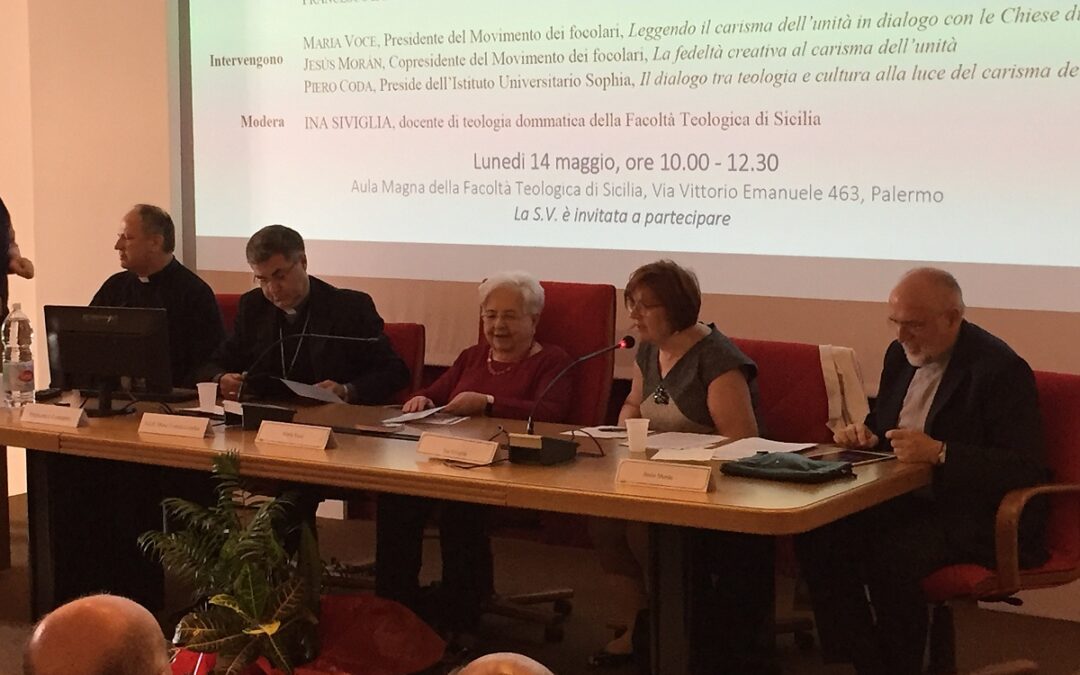
May 14, 2018 | Non categorizzato
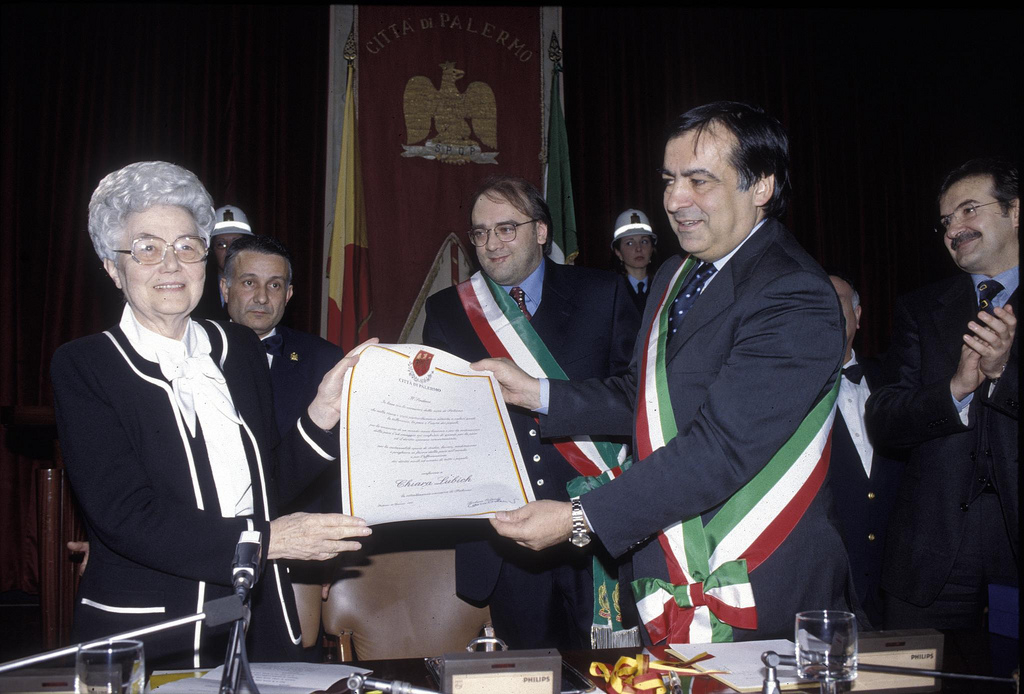
20 January 1998: Chiara Lubich is awarded the honorary citizenship of Palermo
 Maria Voce went on to say: “Chiara Lubich left an indelible mark with her efforts in favour of communion in the Church, for ecumenical dialogue and for brotherhood among peoples. As far back as the 1940s Chiara expressed her longing in words that were charged with zeal and urgency. “Look around: we’re all brothers [and sisters] – no one excluded!” This was how she exhorted us “to live out our universal brotherhood in one only Father: God who is in Heaven.” This was a plan that could be carried out in every city, but a plan that found particularly fertile ground in Palermo, a place “of encounter over the centuries among peoples, cultures and different civilizations,” a plan rooted in “the values of diversity, acceptance and solidarity.” What has this charism contributed to the Universal Church and to the individual Churches in Sicily and beyond? Maria Voce responded: “With the charism of unity, a “new way” has been opened in the Church,” a spirituality that is in perfect harmony with the Second Vatican Council. “From this spirituality of communion we have seen communion blossom within the Church among the different ecclesial Movements that enrich it, among the variety of ancient and modern charisms. We have seen how useful it is in contributing to the unity of Christians and opening dialogue with people of other religions, which represents one of the most urgent and challenging frontiers of the third millennium. And these are things that are also experienced at the level of the local Church.”
Maria Voce went on to say: “Chiara Lubich left an indelible mark with her efforts in favour of communion in the Church, for ecumenical dialogue and for brotherhood among peoples. As far back as the 1940s Chiara expressed her longing in words that were charged with zeal and urgency. “Look around: we’re all brothers [and sisters] – no one excluded!” This was how she exhorted us “to live out our universal brotherhood in one only Father: God who is in Heaven.” This was a plan that could be carried out in every city, but a plan that found particularly fertile ground in Palermo, a place “of encounter over the centuries among peoples, cultures and different civilizations,” a plan rooted in “the values of diversity, acceptance and solidarity.” What has this charism contributed to the Universal Church and to the individual Churches in Sicily and beyond? Maria Voce responded: “With the charism of unity, a “new way” has been opened in the Church,” a spirituality that is in perfect harmony with the Second Vatican Council. “From this spirituality of communion we have seen communion blossom within the Church among the different ecclesial Movements that enrich it, among the variety of ancient and modern charisms. We have seen how useful it is in contributing to the unity of Christians and opening dialogue with people of other religions, which represents one of the most urgent and challenging frontiers of the third millennium. And these are things that are also experienced at the level of the local Church.” 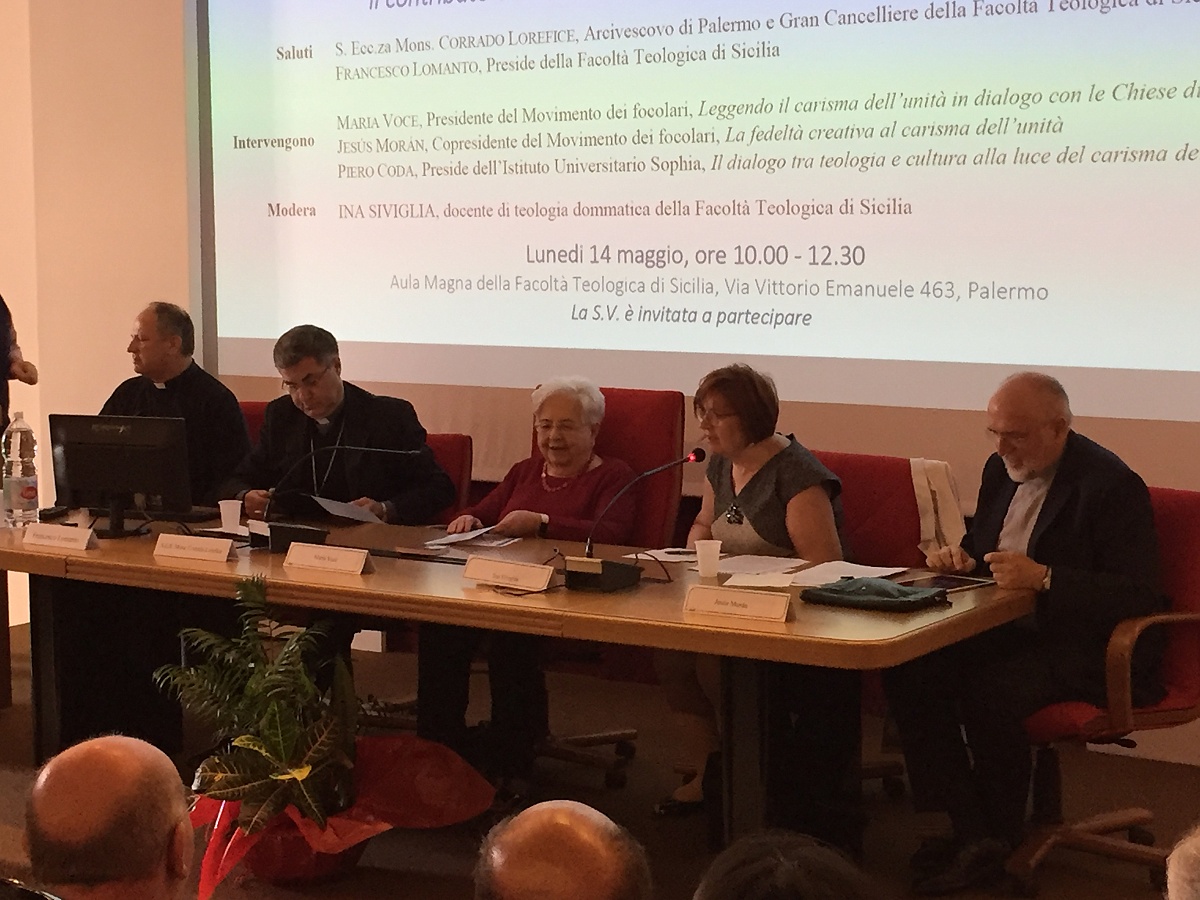 “Despite the many emergencies in recent years – indeed, because of them – the Movement in Sicily is deeply focused on witnessing to unity and building it among the members of the human family wherever that family may be threatened. This is the way they respond to Chiara’s appeal when she urges all of us to “build a new culture that would be a culture of human rights, a culture of law and order, a culture of love, a culture of life and never of death.” Maria Voce went on the say: “I think I can say something has already begun towards that goal. Certainly there is still a long road ahead, but it is a goal that with the entire Movement we renew today: to do our part at creating that ‘new civilization’ which contains all those values that are often trampled on . . . and to grow more and more – as Chiara says – all our Christian brothers and sisters, without leaving out the other religions, without leaving out anyone.” In so doing, we will truly be able to give life to a ‘culture of unity’ which Chiara more than once defined as the ‘culture of the Resurrection’.” Read full speech
“Despite the many emergencies in recent years – indeed, because of them – the Movement in Sicily is deeply focused on witnessing to unity and building it among the members of the human family wherever that family may be threatened. This is the way they respond to Chiara’s appeal when she urges all of us to “build a new culture that would be a culture of human rights, a culture of law and order, a culture of love, a culture of life and never of death.” Maria Voce went on the say: “I think I can say something has already begun towards that goal. Certainly there is still a long road ahead, but it is a goal that with the entire Movement we renew today: to do our part at creating that ‘new civilization’ which contains all those values that are often trampled on . . . and to grow more and more – as Chiara says – all our Christian brothers and sisters, without leaving out the other religions, without leaving out anyone.” In so doing, we will truly be able to give life to a ‘culture of unity’ which Chiara more than once defined as the ‘culture of the Resurrection’.” Read full speech
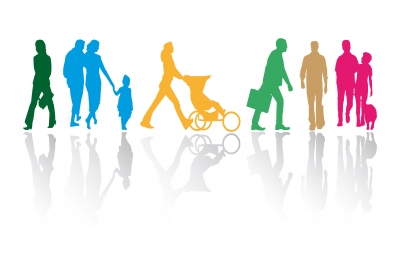
May 14, 2018 | Non categorizzato
 While preparations are underway for the 9th world meeting of families, to be held from 21 – 26 August 2018 in Dublin, Ireland, on the theme, “The Gospel of the Family: joy for the world,” the International Day of Families, instituted in 1994 by the United Nations General Assembly, will be celebrated on 15 May all over the world. Given the difficulties the family today encounters in carrying out its functions, we hope that the Day will serve to promote policies and actions in support of the family, recognizing its essential role as the “first cell” of society. “Saving the family,” wrote the politician and writer, Igino Giordani, considered by Chiara Lubich to be the cofounder of the Focolare Movement, “means saving civilization. The State is composed of families; if these degenerate, also the State falters.” And he continued: “The spouses become cooperators of God in giving life and love to humanity. Love which is from the family expands to the professions, the city, the nations and humanity.”
While preparations are underway for the 9th world meeting of families, to be held from 21 – 26 August 2018 in Dublin, Ireland, on the theme, “The Gospel of the Family: joy for the world,” the International Day of Families, instituted in 1994 by the United Nations General Assembly, will be celebrated on 15 May all over the world. Given the difficulties the family today encounters in carrying out its functions, we hope that the Day will serve to promote policies and actions in support of the family, recognizing its essential role as the “first cell” of society. “Saving the family,” wrote the politician and writer, Igino Giordani, considered by Chiara Lubich to be the cofounder of the Focolare Movement, “means saving civilization. The State is composed of families; if these degenerate, also the State falters.” And he continued: “The spouses become cooperators of God in giving life and love to humanity. Love which is from the family expands to the professions, the city, the nations and humanity.”
May 14, 2018 | Non categorizzato
A Conference will take place in Trent, Italy focusing on the Historical Roots and Intersection between Antonio Rosmini and Chiara Lubich. This event is promoted by the A. Rosmini Centre for Study & Research, University of Trent and by the Chiara Lubich Centre. It will have a two-fold aim: it will provide an opportunity to learn more about two great figures from Trent from the last two centuries; it will also help prepare in an original and unexpected way for the centenary of the birth of the foundress of the Focolare (1920 -2008.) The conference will take place on May 24 in the Specchi Hall in Casa Rosmini and on May 25 in the Conference Hall of the Caritro Foundation.
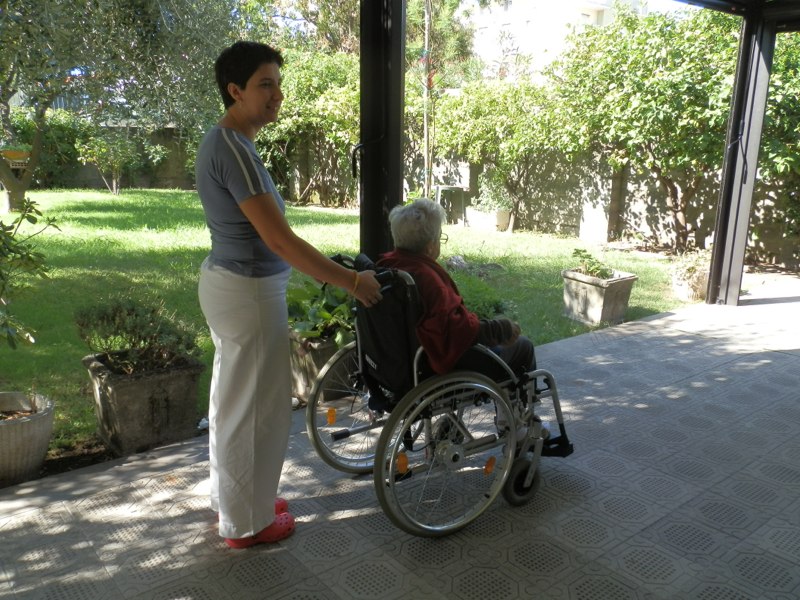
May 13, 2018 | Focolare Worldwide
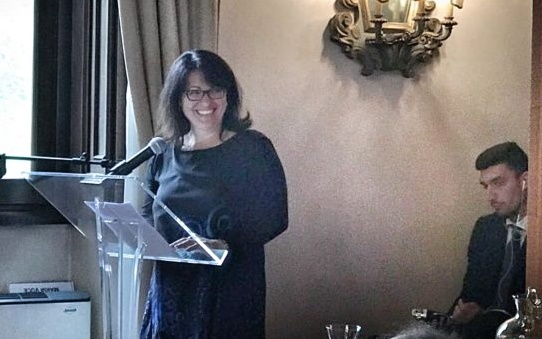 She lives and works in the province of Genoa, in a city of the North West, a very pleasant area between the sea and the mountains. Her role as president of one of the consortia of the social enterprise network with about seven hundred employees in the social service sector, welfare and job placement for disadvantaged people and regional representative of AIPEC (Italian Association of Entrepreneurs for an Economy of Communion) have in no way diminished her spontaneity and simplicity. Her testimony was closely listened to during a conference at the Italian Embassy in the Vatican, on May 3, 2018. The title of her talk was “Chiara Lubich and the Economy of Communion”: “I wanted to do a job that would be useful to others. As soon as I graduated, I won a public competition as an educator for the social integration of disabled children. I felt useful, but the job was paid by the hour and the contract was temporary. There were other girls in the same predicament as me, who had the same desire to develop themselves in the field of social service. One of them told the rest of us about some people who had been working in a cooperative for several years caring for disabled people. Meeting with them was definitive. They gave us a work space where we could work, dedicated time to us and offered their experience. That’s how our cooperative began, from a gift, from a gracious gesture that we embraced and then replicated. We later learned that that gesture was rooted in the Economy of Communion. This way of living that comes before the work, has marked and characterized the style of our own company.”
She lives and works in the province of Genoa, in a city of the North West, a very pleasant area between the sea and the mountains. Her role as president of one of the consortia of the social enterprise network with about seven hundred employees in the social service sector, welfare and job placement for disadvantaged people and regional representative of AIPEC (Italian Association of Entrepreneurs for an Economy of Communion) have in no way diminished her spontaneity and simplicity. Her testimony was closely listened to during a conference at the Italian Embassy in the Vatican, on May 3, 2018. The title of her talk was “Chiara Lubich and the Economy of Communion”: “I wanted to do a job that would be useful to others. As soon as I graduated, I won a public competition as an educator for the social integration of disabled children. I felt useful, but the job was paid by the hour and the contract was temporary. There were other girls in the same predicament as me, who had the same desire to develop themselves in the field of social service. One of them told the rest of us about some people who had been working in a cooperative for several years caring for disabled people. Meeting with them was definitive. They gave us a work space where we could work, dedicated time to us and offered their experience. That’s how our cooperative began, from a gift, from a gracious gesture that we embraced and then replicated. We later learned that that gesture was rooted in the Economy of Communion. This way of living that comes before the work, has marked and characterized the style of our own company.”
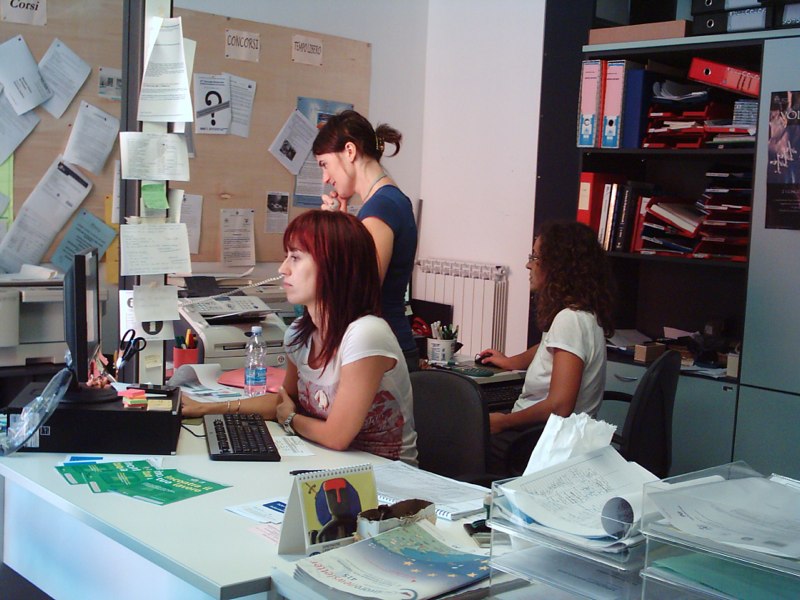
Photo © 2018 Il Sentiero di Arianna

© 2018 Il Sentiero di Arianna
May 12, 2018 | Non categorizzato
is a divine word. If this word were ever uttered by the Lord God, and people were to apply it to all its possible applications, we would see the world suddenly come to a halt, like a film, and start again in reverse. Countless people would on the wide path to perdition would turn around in their tracks, convert to God and take the narrow path. Families torn apart by quarrels, chilled by misunderstandings and scorn and deadened by divorce would get back together again. Children would be born into an atmosphere of human and divine love, and new men and women would be forged for a more Christian tomorrow. Factories often upheld by slaves and steeped in an atmosphere of boredom if not of blasphemy, would become places of peace where everybody did their job for the good of everyone. Schools would break beyond the limits of science, making all forms of knowledge footstools for eternal contemplation learnt at school through a daily unfolding of mysteries that could be intuited from small formulae, natural laws and even numerals . . . And the parliaments would be transformed into meeting places for people who are motivated not so much by each one’s positions, but by the common good, without any deceiving of lands or countrymen. In, we’d see the world become more good. Heaven would be wondrously poured out over the earth, and the harmony of creation would be a framework for the harmony of hearts. We’d see… What a dream! It seems a dream! And yet You didn’t ask for less when you prayed: “You will be done on earth as in Heaven”. Chiara Lubich Source: Chiara Lubich, L’unità, compiled by Donato Falmi and Floernce Gillet (Rome: Città Nuova, 2015), originally published in Chiara Lubich, Frammenti, (Rome: Città Nuova, 1963 and 1992), p. 53-54.
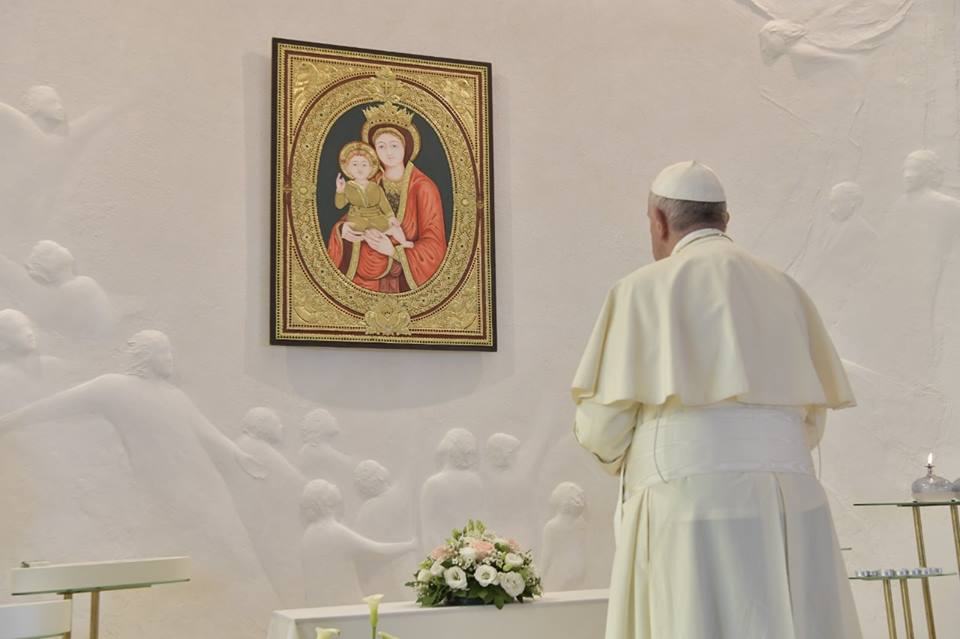
May 10, 2018 | Non categorizzato
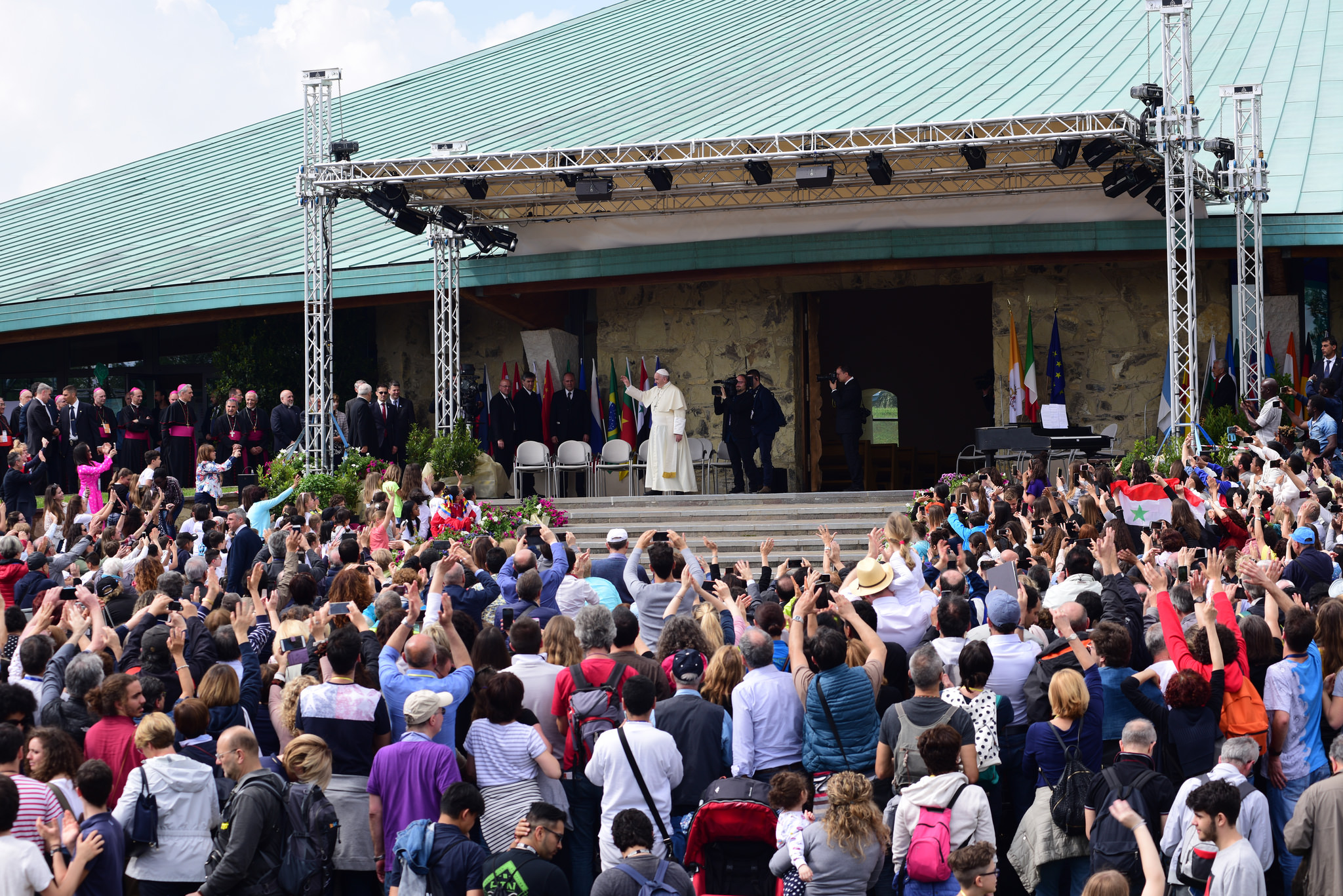
Foto © D. Salmaso – CSC Audiovisivi
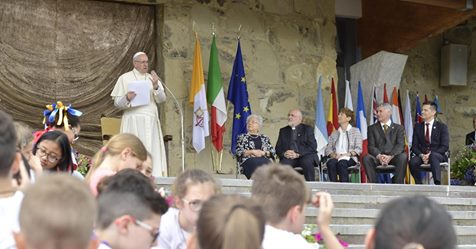
Foto © R. Bassolino – CSC Audiovisivi

Foto © R. Orefice – CSC Audiovisivi
Foto on Flickr 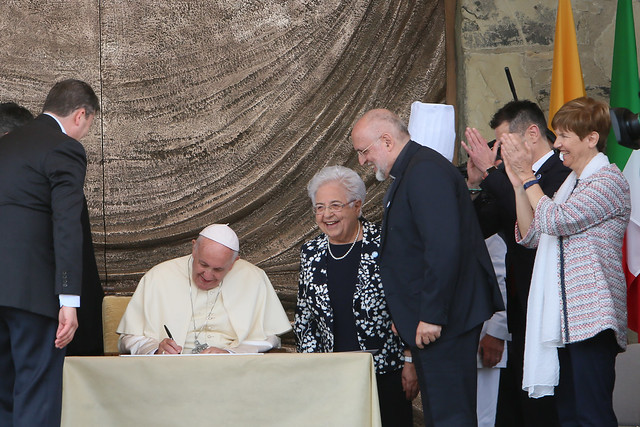

May 10, 2018 | Non categorizzato
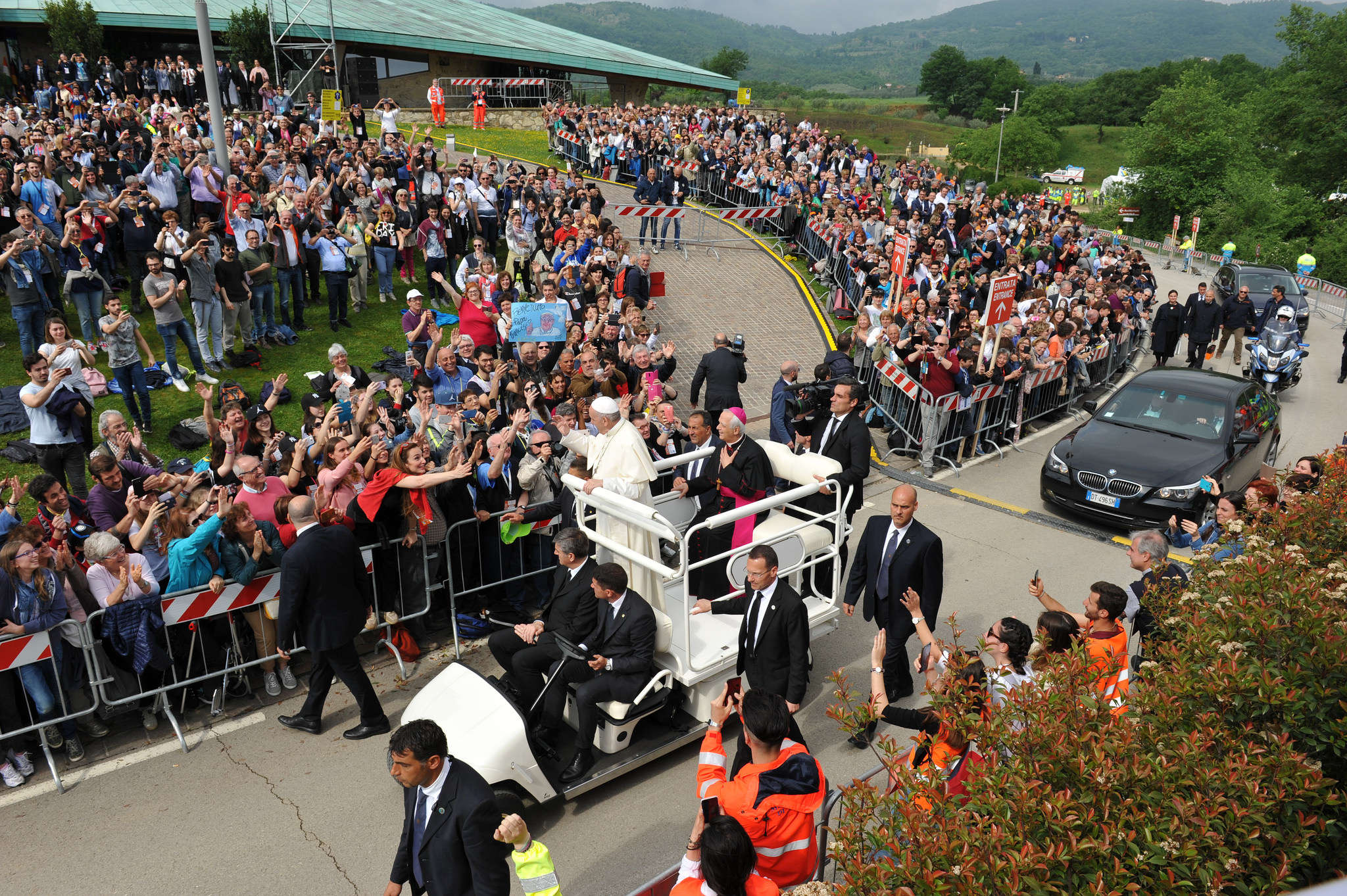
Photo credit © D. Salmaso – CSC Audiovisivi

Photo credit © R. Orefice – CSC Audiovisivi
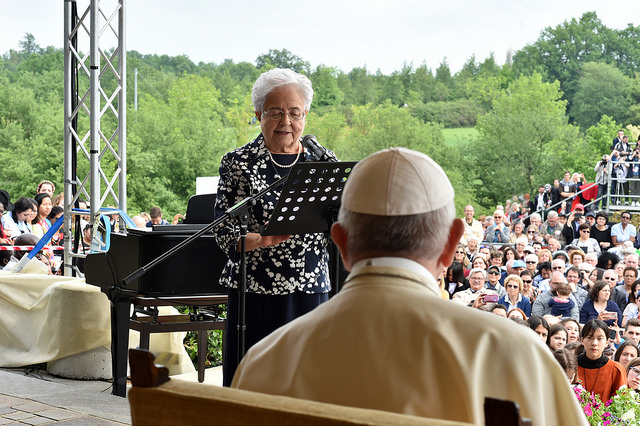
Photo credit © R. Orefice – CSC Audiovisivi

![For a global civilisation of alliance]()
May 10, 2018 | Non categorizzato
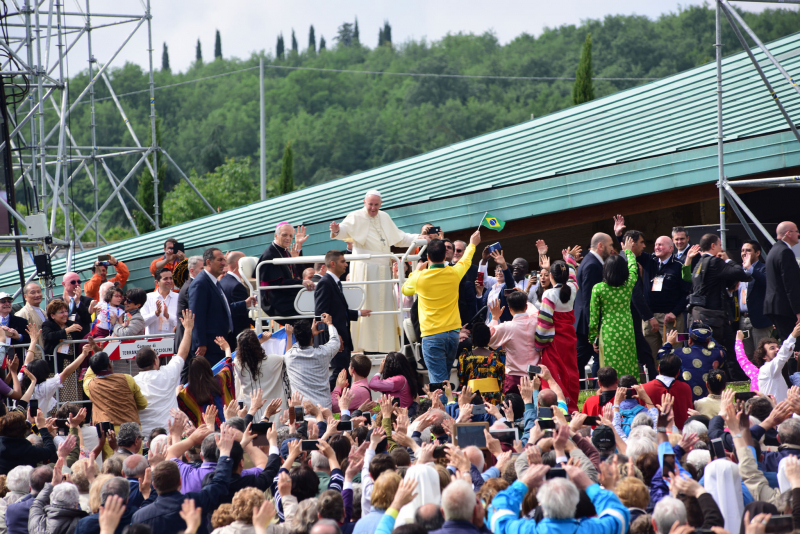
Foto © D. Salmaso – CSC Audiovisivi
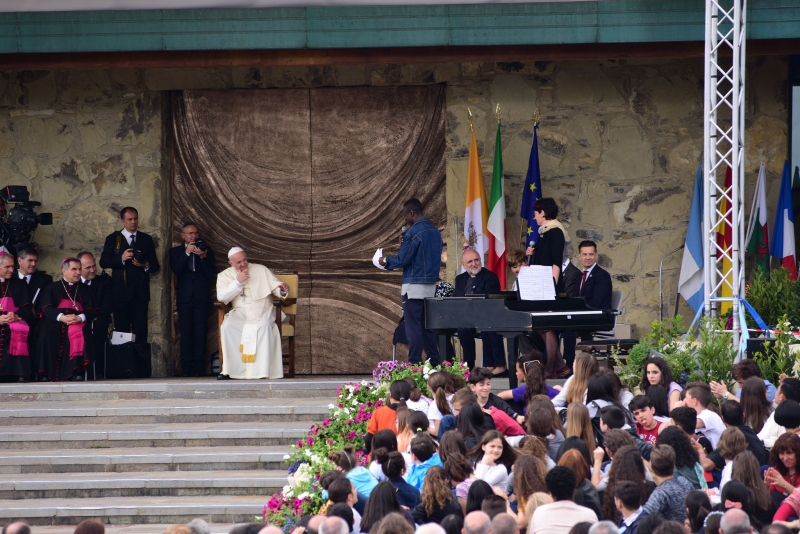
Foto © D. Salmaso – CSC Audiovisivi
Photos on Flickr 
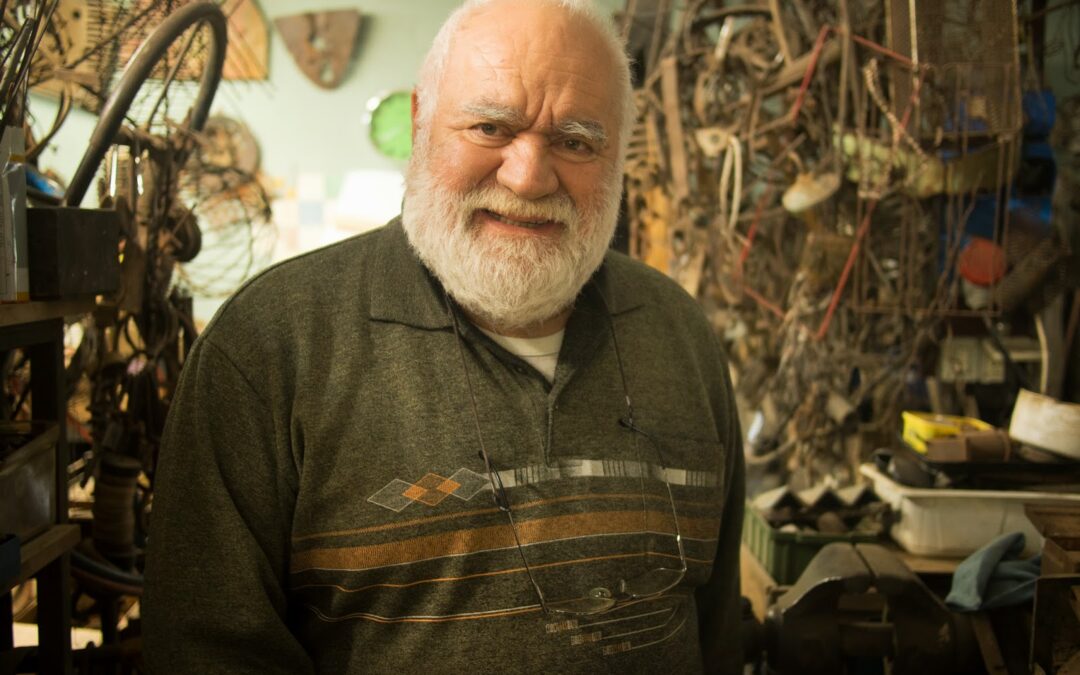
May 8, 2018 | Focolare Worldwide
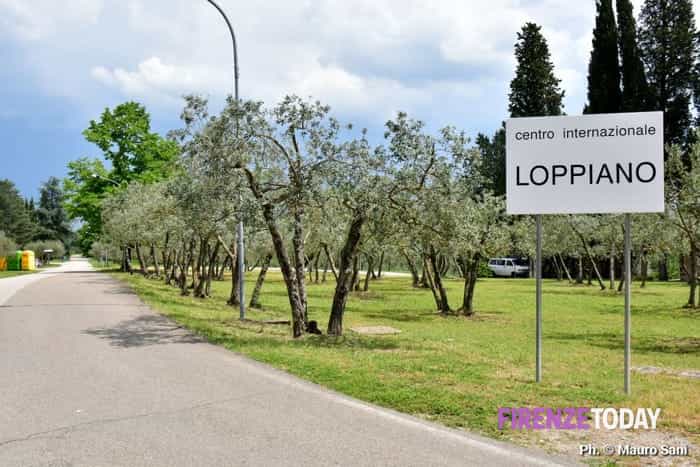 «What did you do when you were my age? What games did you like best?». 10-year-old Luis Francisco from Mexico, now in Loppiano, has these questions in mind as he awaits the arrival of Pope Francis. Together with all the residents of this international Focolare town, Luis has been counting the days to May 10th since early February when the Pope’s secretary first announced this surprise visit to the Christian communities of Nomadelfia and Loppiano, both located in the Tuscan hills. Pope Francis is coming in person to see how life is lived “in the school of the one and only Master”, as he once described Loppiano, the first of 24 Focolare towns around the world. Focolare President, Maria Voce expressed “surprise and profound joy” at the news of this totally unexpected visit. Loppiano is full of life, its streets illuminated by the happy smiling faces of young people who came in their hundreds to spend the last week of April together. With thousands more, they have just celebrated the all-Italy “Genfest” on May 1st when their joy could not be dampened even by the threat of rain. Now, as the big day approaches, the atmosphere of hopeful anticipation is becoming even more palpable.
«What did you do when you were my age? What games did you like best?». 10-year-old Luis Francisco from Mexico, now in Loppiano, has these questions in mind as he awaits the arrival of Pope Francis. Together with all the residents of this international Focolare town, Luis has been counting the days to May 10th since early February when the Pope’s secretary first announced this surprise visit to the Christian communities of Nomadelfia and Loppiano, both located in the Tuscan hills. Pope Francis is coming in person to see how life is lived “in the school of the one and only Master”, as he once described Loppiano, the first of 24 Focolare towns around the world. Focolare President, Maria Voce expressed “surprise and profound joy” at the news of this totally unexpected visit. Loppiano is full of life, its streets illuminated by the happy smiling faces of young people who came in their hundreds to spend the last week of April together. With thousands more, they have just celebrated the all-Italy “Genfest” on May 1st when their joy could not be dampened even by the threat of rain. Now, as the big day approaches, the atmosphere of hopeful anticipation is becoming even more palpable. 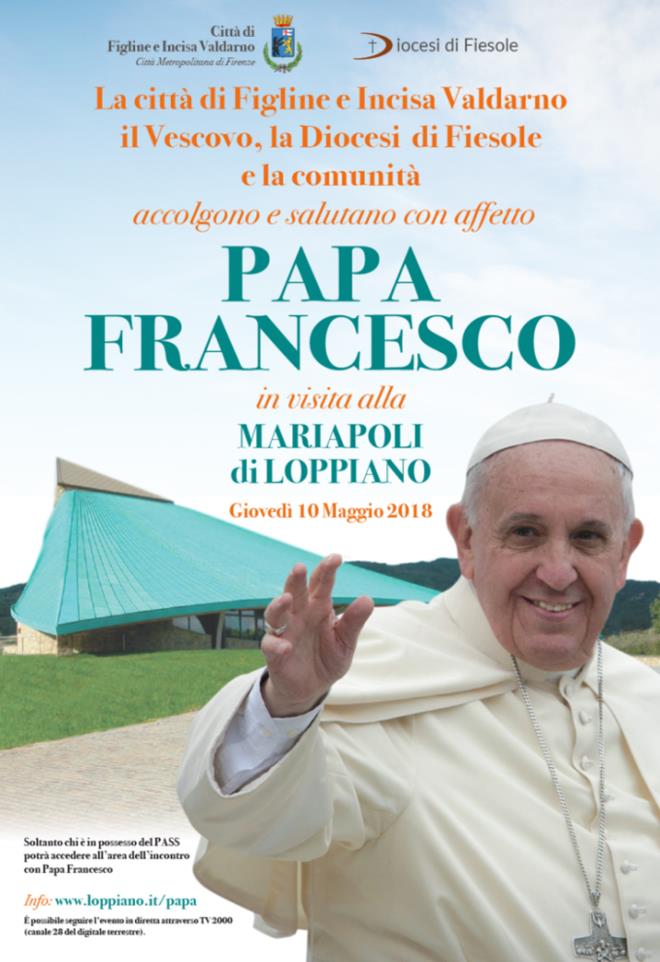 Video camera in hand, we walked through Loppiano, speaking to residents as they carry out their daily duties in this countdown period to the papal visit. Benedetta came to Loppiano for formation in the school of the Focolarine (the consecrated members of Focolare). She is welcoming the Pope’s visit as a personal gift from God as it comes on her own birthday. «No matter how short the visit, I hope he finds a family. That’s what we try to build among us every day». Since 1966 Loppiano has been home to Gen Rosso, a band inspired by Chiara Lubich’s desire to spread the message of a more just, peaceful and united world through music. The musicians strive to express this spirit in their own lives and not just in their songs, with a lifestyle of communion and fraternity. Michele Sole joined Gen Rosso a few years ago. He is preparing to sing “Sweetest of Mothers” on the steps of the town’s church dedicated to Theotokos, Mother of God. Michele is grateful to the Pope for having «the courage to take the name Francis. I don’t know how easy it was for him to choose a name which means preferential option for the poor and the least». The notes of “Turn on peace” float through the air, as Gen Rosso rehearse nearby with fellow Loppiano-based performers, the distinctively international band Gen Verde.
Video camera in hand, we walked through Loppiano, speaking to residents as they carry out their daily duties in this countdown period to the papal visit. Benedetta came to Loppiano for formation in the school of the Focolarine (the consecrated members of Focolare). She is welcoming the Pope’s visit as a personal gift from God as it comes on her own birthday. «No matter how short the visit, I hope he finds a family. That’s what we try to build among us every day». Since 1966 Loppiano has been home to Gen Rosso, a band inspired by Chiara Lubich’s desire to spread the message of a more just, peaceful and united world through music. The musicians strive to express this spirit in their own lives and not just in their songs, with a lifestyle of communion and fraternity. Michele Sole joined Gen Rosso a few years ago. He is preparing to sing “Sweetest of Mothers” on the steps of the town’s church dedicated to Theotokos, Mother of God. Michele is grateful to the Pope for having «the courage to take the name Francis. I don’t know how easy it was for him to choose a name which means preferential option for the poor and the least». The notes of “Turn on peace” float through the air, as Gen Rosso rehearse nearby with fellow Loppiano-based performers, the distinctively international band Gen Verde. 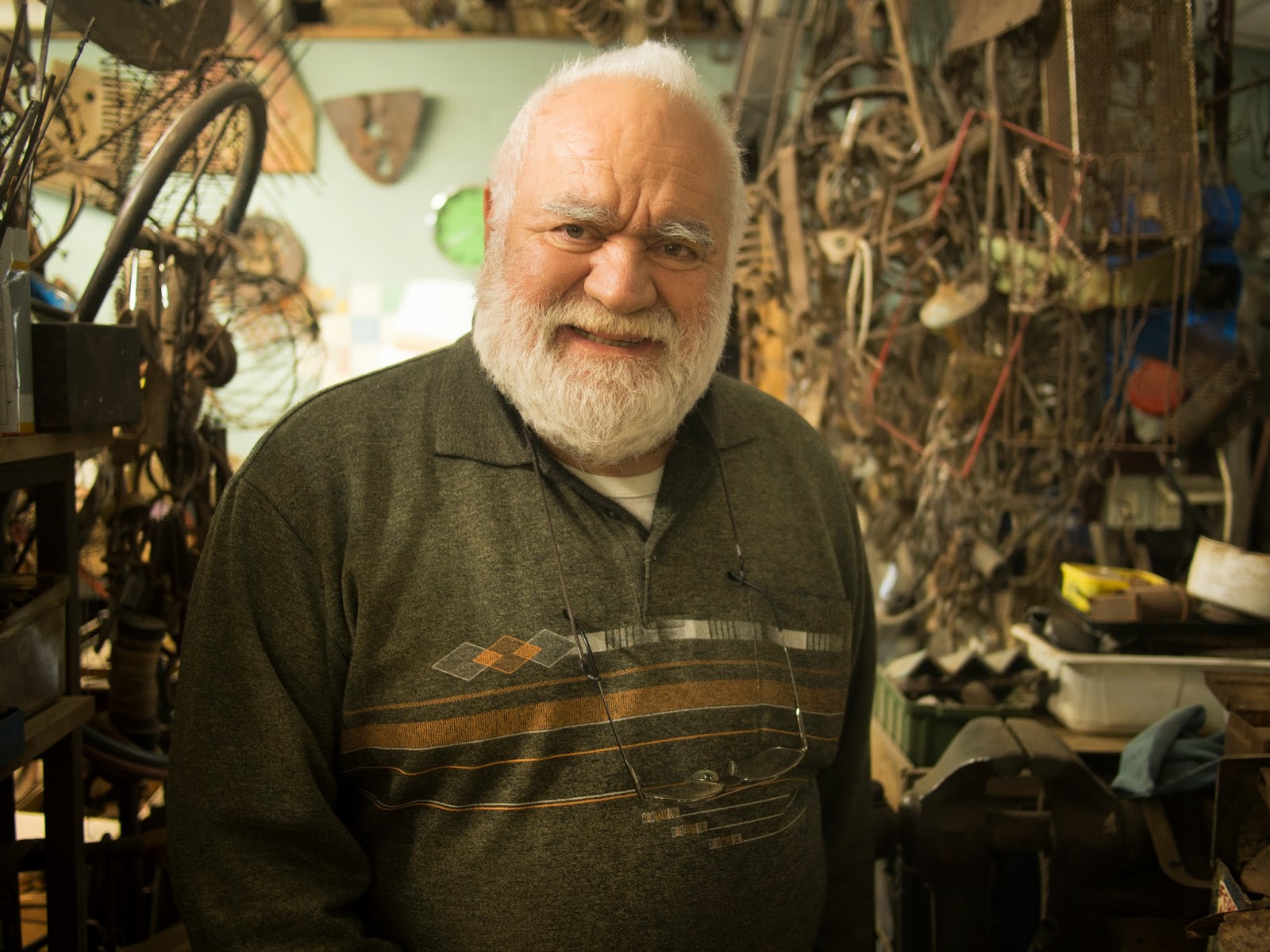 The artist Ciro, born Roberto Cipollone, has lived in Loppiano since 1977, where he exercises his gift of transforming discarded and waste objects into captivating works of art. This artist breathes new life into trash items. From his workshop emerge sculpture, craftworks and paintings, created in the fusion of an artistic imagination with love for the natural world. Ciro’s perspective on the forthcoming visit: «I hope the Pope may find some of his innermost desires fulfilled here». Aranza came to Loppiano with her family from Mexico to participate in the “Loreto School” for families of different countries and languages who together deepen their knowledge of the spirituality of unity. The annual courses which run from September to June provide a unique experience of cultural exchange and mutual enrichment. Aranza’s question to the Pope would be: «How can we young people best overcome the conditioning stereotypes the world tries to impose on us?». Natalia, is a Brazilian student attending Sophia University Institute in Loppiano. She would like to ask the Pope about the role of young married people in the Church. So many different questions, hopes and wishes, united in such joyful anticipation. Chiara Favotti
The artist Ciro, born Roberto Cipollone, has lived in Loppiano since 1977, where he exercises his gift of transforming discarded and waste objects into captivating works of art. This artist breathes new life into trash items. From his workshop emerge sculpture, craftworks and paintings, created in the fusion of an artistic imagination with love for the natural world. Ciro’s perspective on the forthcoming visit: «I hope the Pope may find some of his innermost desires fulfilled here». Aranza came to Loppiano with her family from Mexico to participate in the “Loreto School” for families of different countries and languages who together deepen their knowledge of the spirituality of unity. The annual courses which run from September to June provide a unique experience of cultural exchange and mutual enrichment. Aranza’s question to the Pope would be: «How can we young people best overcome the conditioning stereotypes the world tries to impose on us?». Natalia, is a Brazilian student attending Sophia University Institute in Loppiano. She would like to ask the Pope about the role of young married people in the Church. So many different questions, hopes and wishes, united in such joyful anticipation. Chiara Favotti
LIVE STREAMING from Loppiano on 10th May at 10.00 (CEST) http://live.focolare.org Vatican Media Live: from 8.00 am to 12.00 noon
http://vimeo.com/268796719
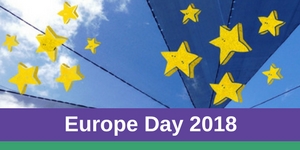
May 8, 2018 | Non categorizzato
 Europe is celebrating peace and unity on the 9th of May. This date recalls the historical “Schuman Declaration” with which, on 9 May 1950, the French minister of foreign affairs at that time proposed the creation of a first economic group, finalised in the gradual construction of a federation of European States, indispensable to the maintenance of peaceful relationships. As a first step, Robert Schuman indicated the common management, for France and West Germany, of carbon and steel, but in the framework of an organisation to which other countries could have joined. Its thus set the grounds for a wider and more intensive integration, so much so that the Declaration is considered, symbolically, the birth date of the long process of peace and stability that gave rise to the European Union. This feast is the occasion to bring the institutions closer to the citizens and the peoples among themselves, heightening awareness of the values of peace, integration and solidarity should be placed at the base of human coexistence. “Together for Europe sees itself as an “artisan of fraternal relationships”, the kind of relationships that it tries to build each day with the people of Europe.” “Together for Europa”
Europe is celebrating peace and unity on the 9th of May. This date recalls the historical “Schuman Declaration” with which, on 9 May 1950, the French minister of foreign affairs at that time proposed the creation of a first economic group, finalised in the gradual construction of a federation of European States, indispensable to the maintenance of peaceful relationships. As a first step, Robert Schuman indicated the common management, for France and West Germany, of carbon and steel, but in the framework of an organisation to which other countries could have joined. Its thus set the grounds for a wider and more intensive integration, so much so that the Declaration is considered, symbolically, the birth date of the long process of peace and stability that gave rise to the European Union. This feast is the occasion to bring the institutions closer to the citizens and the peoples among themselves, heightening awareness of the values of peace, integration and solidarity should be placed at the base of human coexistence. “Together for Europe sees itself as an “artisan of fraternal relationships”, the kind of relationships that it tries to build each day with the people of Europe.” “Together for Europa”
May 8, 2018 | Non categorizzato
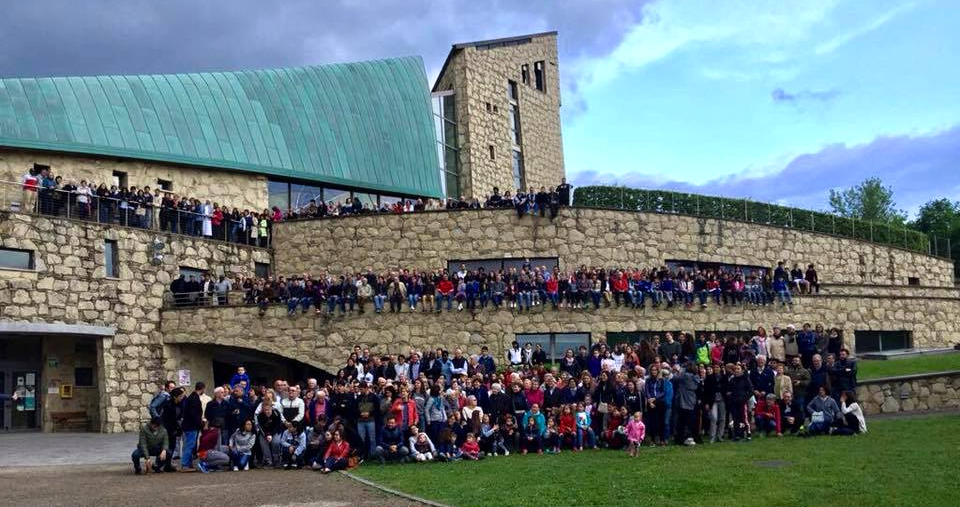
May 7, 2018 | Focolare Worldwide
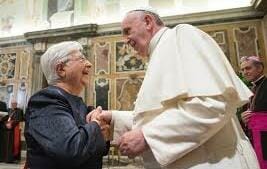 In Loppiano all is ready to welcome the Holy Father. Around 6,000 people from all over Italy are arriving, but thousands will be linked up in streaming in the five continents. We asked Maria Voce, Focolare President, how this encounter will take place. “We want to present to the Pope.” she explained, “this tiny town, the first among other 24 diffused worldwide, which wants to offer a model of coexistence founded on the evangelical principles of solidarity and fraternity, certainly unique, but able to be spread and repeated elsewhere. In Loppiano, the Pope will not only meet the 750 inhabitants, ” Maria Voce continued, “but also a representative group of the Focolare’s global family. We shall ask him some questions on themes that we hold dear: the challenge of fidelity to the charismatic idea of Chiara Lubich in contrast with the changed conditions of today; the education of the young people in a culture of fraternity; and Loppiano’s model of coexistence as a contribution to the current announcement of the Christian message and the overcoming of barriers, nationalism and prejudices.” The Focolare Movement is a variegated constellation that places at the core of its actions and dialogue a lifestyle that concurs to construct unity and peace in the world. It counts over 2 million members belonging to many Christian Churches, but also of different religious beliefs and lay inspirations. It undertakes around 1,000 social actions underway in various countries, and around 800 enterprises worldwide that work according to the principles of the Economy of Communion. The Sophia University, based precisely in Loppiano is now in its tenth year of life.
In Loppiano all is ready to welcome the Holy Father. Around 6,000 people from all over Italy are arriving, but thousands will be linked up in streaming in the five continents. We asked Maria Voce, Focolare President, how this encounter will take place. “We want to present to the Pope.” she explained, “this tiny town, the first among other 24 diffused worldwide, which wants to offer a model of coexistence founded on the evangelical principles of solidarity and fraternity, certainly unique, but able to be spread and repeated elsewhere. In Loppiano, the Pope will not only meet the 750 inhabitants, ” Maria Voce continued, “but also a representative group of the Focolare’s global family. We shall ask him some questions on themes that we hold dear: the challenge of fidelity to the charismatic idea of Chiara Lubich in contrast with the changed conditions of today; the education of the young people in a culture of fraternity; and Loppiano’s model of coexistence as a contribution to the current announcement of the Christian message and the overcoming of barriers, nationalism and prejudices.” The Focolare Movement is a variegated constellation that places at the core of its actions and dialogue a lifestyle that concurs to construct unity and peace in the world. It counts over 2 million members belonging to many Christian Churches, but also of different religious beliefs and lay inspirations. It undertakes around 1,000 social actions underway in various countries, and around 800 enterprises worldwide that work according to the principles of the Economy of Communion. The Sophia University, based precisely in Loppiano is now in its tenth year of life.  Upon his arrival in the town, the Holy Father will go directly to the Church of Maria Theotókos, where he shall stop briefly to pray. He will also pray before the painting of the Madonna with Child, the work of a painter belonging to the Hindu religion and symbol of the dialogue which is one of the many pillars of coexistence in Loppiano. Then in the churchyard, Maria Voce will greet the Pope on behalf of the Focolare Movement. A moment of dialogue will follow in which some citizens of Loppiano will ask him some questions. This session will be interrupted with music pieces of artists from various countries and religious environments. Lastly, around 30 citizens will personally greet the Pope who will leave to return to the Vatican, after the benediction.
Upon his arrival in the town, the Holy Father will go directly to the Church of Maria Theotókos, where he shall stop briefly to pray. He will also pray before the painting of the Madonna with Child, the work of a painter belonging to the Hindu religion and symbol of the dialogue which is one of the many pillars of coexistence in Loppiano. Then in the churchyard, Maria Voce will greet the Pope on behalf of the Focolare Movement. A moment of dialogue will follow in which some citizens of Loppiano will ask him some questions. This session will be interrupted with music pieces of artists from various countries and religious environments. Lastly, around 30 citizens will personally greet the Pope who will leave to return to the Vatican, after the benediction.
Live streaming 10 May 2018, 10.00am till 12.00 noon (CEST): Vatican Media Live http://live.focolare.org

May 6, 2018 | Focolare Worldwide

Simon Barlaam
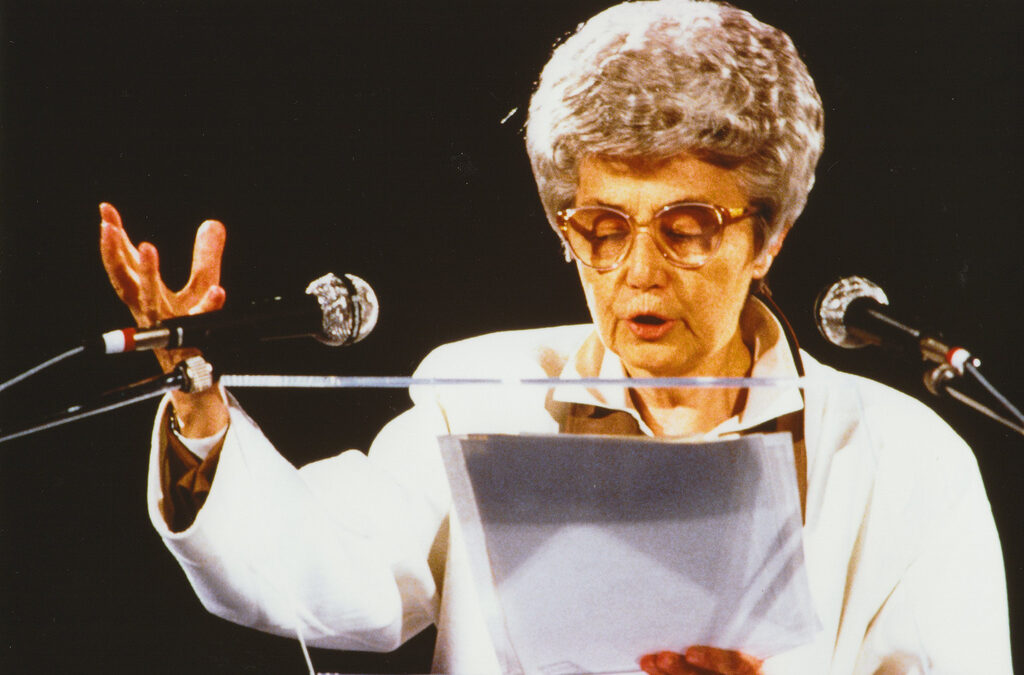
May 4, 2018 | Non categorizzato
 The unity of the world. My dear young people, is our attention so distracted by the events we are immersed in day after day, that we do not see how our age is characterized by tension, by wars, by guerrilla warfare, even by the threat of nuclear destruction, by disunity of all kinds, by acts of terrorism, kidnappings, by all kinds of evil, all generated by the lack of love and mutual understanding among people? Do we not see that to speak of unity today is almost like speaking of a utopia? … But, thank God, these are not the only characteristics of our times. There is something more we have to consider. […] The world is undoubtedly moving towards unity. Unity is its destiny or, better still, it is God’s plan for the world. […] We will answer your questions not only with words but, after this Genfest, with life. We will walk with determination along the various roads that offer solutions to the divided world by uniting it. The various roads, to give a few examples, are the roads to unity among generations, among ethnic groups and nations, between east and west, between north and south; the road to unity among Christians of various denominations, among the faithful of different religions; the road to unity between rich and poor through a communion of goods; between nations at war in order to reach peace; the road to unity also between humankind and nature; the road to unity with those who are indifferent, with the lonely, with those who suffer in any way at all; the road to development, to progress; the road to unity among various spiritual movements, among lay associations; among persons of different ideologies and cultures and so on. As you can see, some of these are roads that young people have already taken because they feel naturally inclined to do so. They want to walk along these various ways, by first situating themselves squarely in the Way par excellence. […] the way that is Christ. He said of himself, “I am the Way”.[1] What must we do to be grafted onto this Way which will enable us to bear fruit as we go along the other ways? We must be Jesus, another Jesus. […] By living the word, all the Christian life sowed in us at baptism will fully blossom. Young people of all Churches and Christian communities will be able to join us in living this word. The word in many of its expressions (this has been our experience) is accepted also by young people of other religions and by those in good faith who consider themselves atheists. The word will shape all of you into one block, making you strong and unbreakable. […] If you are faithful, if you spread throughout the world as many other Jesus, so to say, then the program, “That all may be one”, will not be a dream; it will be a reality. And your contribution will bring us closer and closer to this reality. A springtime will blossom in the world. We will see miracles. Christ’s words will be fulfilled in you, “Whoever believes in me will do the works I do and greater works than these”.[2] Extracts from Chiara Lubich’s talk at the Genfest in Rome 30th March 1985 [1]. John 14:6. [2]. John 14:12.
The unity of the world. My dear young people, is our attention so distracted by the events we are immersed in day after day, that we do not see how our age is characterized by tension, by wars, by guerrilla warfare, even by the threat of nuclear destruction, by disunity of all kinds, by acts of terrorism, kidnappings, by all kinds of evil, all generated by the lack of love and mutual understanding among people? Do we not see that to speak of unity today is almost like speaking of a utopia? … But, thank God, these are not the only characteristics of our times. There is something more we have to consider. […] The world is undoubtedly moving towards unity. Unity is its destiny or, better still, it is God’s plan for the world. […] We will answer your questions not only with words but, after this Genfest, with life. We will walk with determination along the various roads that offer solutions to the divided world by uniting it. The various roads, to give a few examples, are the roads to unity among generations, among ethnic groups and nations, between east and west, between north and south; the road to unity among Christians of various denominations, among the faithful of different religions; the road to unity between rich and poor through a communion of goods; between nations at war in order to reach peace; the road to unity also between humankind and nature; the road to unity with those who are indifferent, with the lonely, with those who suffer in any way at all; the road to development, to progress; the road to unity among various spiritual movements, among lay associations; among persons of different ideologies and cultures and so on. As you can see, some of these are roads that young people have already taken because they feel naturally inclined to do so. They want to walk along these various ways, by first situating themselves squarely in the Way par excellence. […] the way that is Christ. He said of himself, “I am the Way”.[1] What must we do to be grafted onto this Way which will enable us to bear fruit as we go along the other ways? We must be Jesus, another Jesus. […] By living the word, all the Christian life sowed in us at baptism will fully blossom. Young people of all Churches and Christian communities will be able to join us in living this word. The word in many of its expressions (this has been our experience) is accepted also by young people of other religions and by those in good faith who consider themselves atheists. The word will shape all of you into one block, making you strong and unbreakable. […] If you are faithful, if you spread throughout the world as many other Jesus, so to say, then the program, “That all may be one”, will not be a dream; it will be a reality. And your contribution will bring us closer and closer to this reality. A springtime will blossom in the world. We will see miracles. Christ’s words will be fulfilled in you, “Whoever believes in me will do the works I do and greater works than these”.[2] Extracts from Chiara Lubich’s talk at the Genfest in Rome 30th March 1985 [1]. John 14:6. [2]. John 14:12.
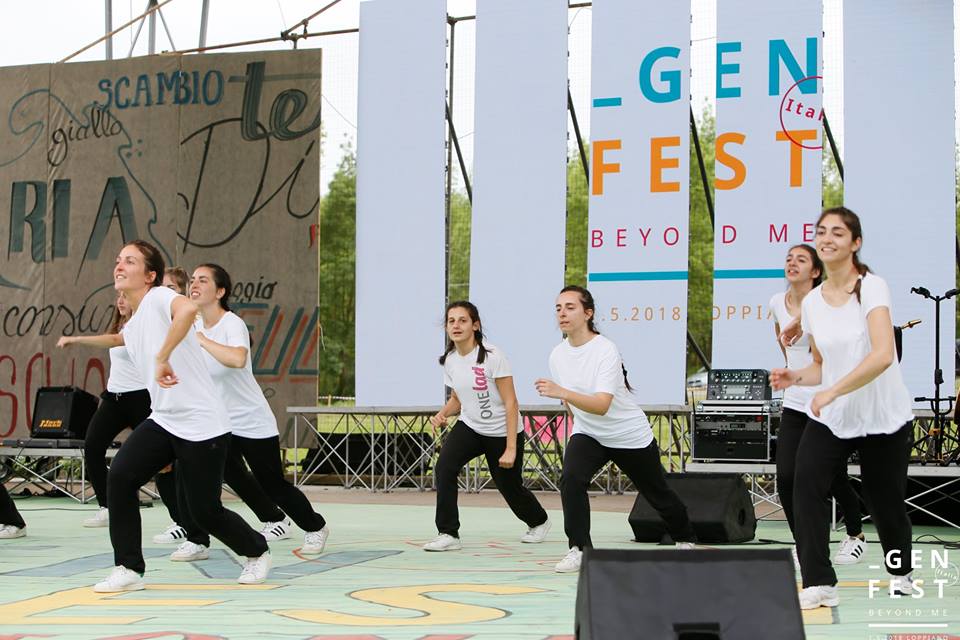
May 4, 2018 | Focolare Worldwide
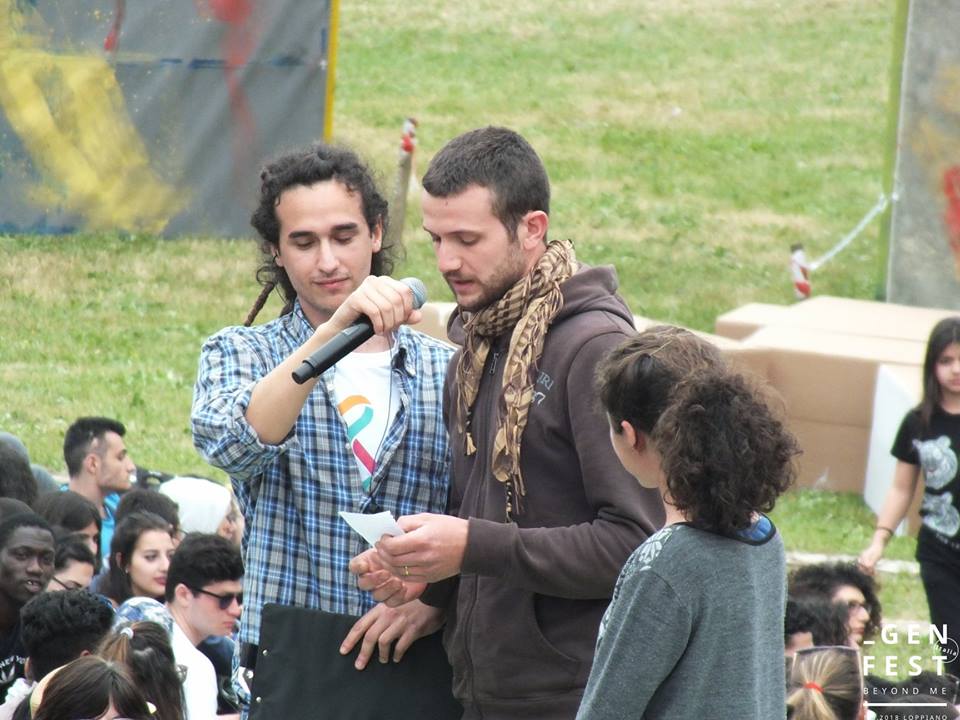 “My family is Christian and refuses to kill or carry weapons,” says George, a young Syrian from Homs. We’re in Loppiano, the Focolare international town near Florence, Italy where hundreds of young people from all over country have gathered for a meeting that include testimonies, sharing and much festivity. This year the event was held in anticipation of the much larger international Genfest, which will be heldnext month in Manila, Philippines (http://y4uw.org/it/events/genfest-2018/). The May 1st gathering was the Italian edition where 3700 young people took part in a one-day celebration of fraternity with reporting on projects, social action, personal experiences in which people came face to face with the personal dramas and pain of humanity. As in the case of George and Michael who left everyone breathless with their description of what they have been experiencing for years years in Syria. “We’ve seen many people die,” says George. “For a period of time I even had to carry a knife to protect myself, to defend myself in case of danger. Years of hatred, death and loss of dignity had emptied my heart and I began to think that love didn’t exist. Only the Mariapolis was able to remove this thought from my mind (several days spent living in the light of the Gospel, an annual gathering of the Focolare). After that Mariapolis I never carried a knife again and decided to start responding to hatred with love.” The final appeal to the young people was strongly embraced: “Don’t complain about your life. It’s beautiful, you just don’t realize it.”
“My family is Christian and refuses to kill or carry weapons,” says George, a young Syrian from Homs. We’re in Loppiano, the Focolare international town near Florence, Italy where hundreds of young people from all over country have gathered for a meeting that include testimonies, sharing and much festivity. This year the event was held in anticipation of the much larger international Genfest, which will be heldnext month in Manila, Philippines (http://y4uw.org/it/events/genfest-2018/). The May 1st gathering was the Italian edition where 3700 young people took part in a one-day celebration of fraternity with reporting on projects, social action, personal experiences in which people came face to face with the personal dramas and pain of humanity. As in the case of George and Michael who left everyone breathless with their description of what they have been experiencing for years years in Syria. “We’ve seen many people die,” says George. “For a period of time I even had to carry a knife to protect myself, to defend myself in case of danger. Years of hatred, death and loss of dignity had emptied my heart and I began to think that love didn’t exist. Only the Mariapolis was able to remove this thought from my mind (several days spent living in the light of the Gospel, an annual gathering of the Focolare). After that Mariapolis I never carried a knife again and decided to start responding to hatred with love.” The final appeal to the young people was strongly embraced: “Don’t complain about your life. It’s beautiful, you just don’t realize it.” 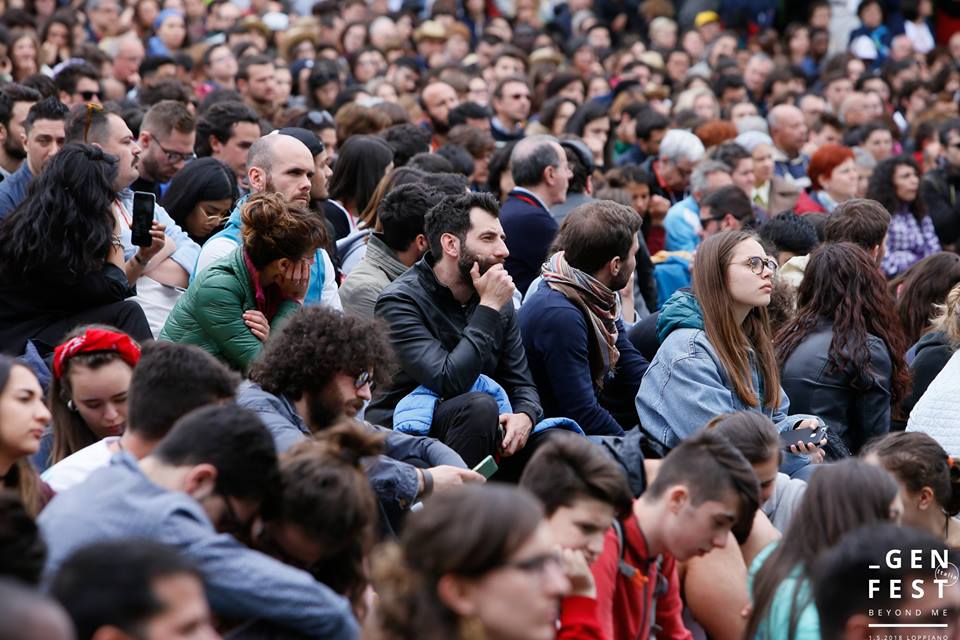 The conducting thread of the event, which was entitled “Beyond Me”, was the desire to go beyond one’s limits and boundaries in order to bring about a personal and, especially, a social change. Roberto Spuri and Elena Sofia Ferri bore witness to this as they told about the experience of the earthquake in Central Italy; Alessio Lanaloni and Maria Chiara Cefaloni, with their efforts for a disarmed economy; Alessandra Leanza, with the experience of volunteering with Rom children in Sardinia. And Marco Voleri, the internationally renowned tenor and founder of “Sintomi di Felicita” which promotes public awareness of multiple sclerosis; Simone Barlaam, para-olympic swimming champion at the Mexican world games. Michele Tranzuilli, author of the book Una buona idea and promoter of the bridge with Africa YouAid; Sara Fabris, painter.
The conducting thread of the event, which was entitled “Beyond Me”, was the desire to go beyond one’s limits and boundaries in order to bring about a personal and, especially, a social change. Roberto Spuri and Elena Sofia Ferri bore witness to this as they told about the experience of the earthquake in Central Italy; Alessio Lanaloni and Maria Chiara Cefaloni, with their efforts for a disarmed economy; Alessandra Leanza, with the experience of volunteering with Rom children in Sardinia. And Marco Voleri, the internationally renowned tenor and founder of “Sintomi di Felicita” which promotes public awareness of multiple sclerosis; Simone Barlaam, para-olympic swimming champion at the Mexican world games. Michele Tranzuilli, author of the book Una buona idea and promoter of the bridge with Africa YouAid; Sara Fabris, painter.  Projects. All the stories that were told at Genfest-Italy were connected to concrete experiences: an association, a social project, which anyone could “adopt” in the coming year. This was the call to action that was launched at the end of the event with an invitation to each young person to choose a project and replicate it everywhere else. To facilitate their work, the associations that are actively engaged in the cities of Italy posted links on the United world project website, according to region. Genfest Italy concluded with a city that “flying” city, a city that was depicted in the final choreography that was based on a meditation by Chiara Lubich: “One City Is Not Enough:” “For God, one city is too little. He made the stars, guided the destiny of Time. With God you can see farther, to everyone’s country, to the whole globe. At the end of life let us not have to regret that we loved too little.” Loppiano is getting ready to welcome Pope Francis on May 10th, and it wasn’t by chance that a group of young people from Nomadelfia was at Genfest Italy bringing the greetings of their community, which will also be visited by Pope Francis on the same day. As we prepare to welcome him our friendship is growing and intensifying. Source: www.cittanuova.it Flickr photo gallery
Projects. All the stories that were told at Genfest-Italy were connected to concrete experiences: an association, a social project, which anyone could “adopt” in the coming year. This was the call to action that was launched at the end of the event with an invitation to each young person to choose a project and replicate it everywhere else. To facilitate their work, the associations that are actively engaged in the cities of Italy posted links on the United world project website, according to region. Genfest Italy concluded with a city that “flying” city, a city that was depicted in the final choreography that was based on a meditation by Chiara Lubich: “One City Is Not Enough:” “For God, one city is too little. He made the stars, guided the destiny of Time. With God you can see farther, to everyone’s country, to the whole globe. At the end of life let us not have to regret that we loved too little.” Loppiano is getting ready to welcome Pope Francis on May 10th, and it wasn’t by chance that a group of young people from Nomadelfia was at Genfest Italy bringing the greetings of their community, which will also be visited by Pope Francis on the same day. As we prepare to welcome him our friendship is growing and intensifying. Source: www.cittanuova.it Flickr photo gallery
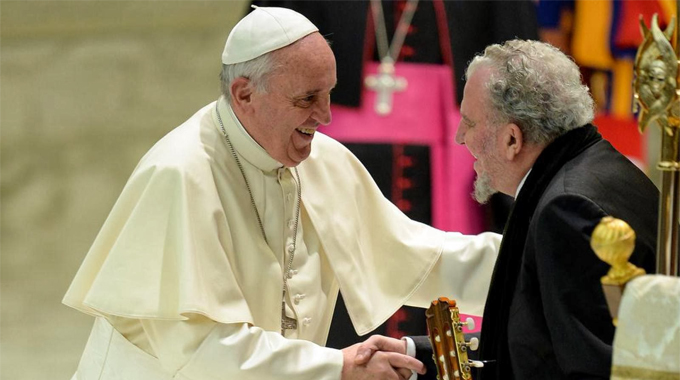
May 3, 2018 | Non categorizzato
 On May 5, at Tor Vergata (Rome), Pope Francis will meet the members of the Neocatechumenal Way gathered for their international meeting. The occasion will mark 50 years of the presence of the Way in Rome. 150 thousand participants from 134 nations are expected to attend. The Pope will send out 36 new “missio ad gentes” groups that will take the Gospel into secularized areas or in regions with Christian minorities. Francis will also bless the 20 communities, that are part of parishes of Rome, which have already concluded this form of Christian initiation. The meeting, which will end with the singing of the “Te Deum”, will be led by the international core group of the Neocatechumenal Way, composed of Kiko Argüello, Fr Mario Pezzi and Ascensión Romero.
On May 5, at Tor Vergata (Rome), Pope Francis will meet the members of the Neocatechumenal Way gathered for their international meeting. The occasion will mark 50 years of the presence of the Way in Rome. 150 thousand participants from 134 nations are expected to attend. The Pope will send out 36 new “missio ad gentes” groups that will take the Gospel into secularized areas or in regions with Christian minorities. Francis will also bless the 20 communities, that are part of parishes of Rome, which have already concluded this form of Christian initiation. The meeting, which will end with the singing of the “Te Deum”, will be led by the international core group of the Neocatechumenal Way, composed of Kiko Argüello, Fr Mario Pezzi and Ascensión Romero.
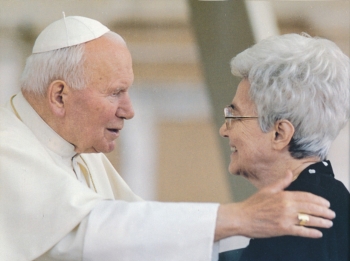
May 3, 2018 | Focolare Worldwide
 “The path of a prophecy”. On the tenth anniversary of the death of Chiara Lubich, founder of the Focolare Movement, a conference was held on 3rd May promoted by the Italian Embassy to the Holy See in conjunction with the Sovereign Military Order of Malta, and in collaboration with the Focolare. It was an opportunity for a reflection on the economy in the light of the charism of unity. Mgr. Giovanni Angelo Becciu, the Vatican Deputy Secretary of State, Maria Voce, president of the Focolare Movement, Luigino Bruni, professor of Economics at the LUMSA University of Rome, Leonardo Becchetti, professor of Economics at the University took part of Rome Tor Vergata, and Simona Rizzi, president of the Tassano Servizi Territoriali Consortium. In her speech, Maria Voce said that the Focolare Movement “would not achieve its vocation if it did not implement the first page of the Christian social doctrine, the prayer of the Magnificat in which among other things it says: “He filled the hungry with good things and sent back the rich empty-handed“. The Economy of Communion, born from an inspiration of Chiara Lubich, has given life to a social action model, in dialogue with contemporary culture, particularly in the field of economy, both locally and internationally.
“The path of a prophecy”. On the tenth anniversary of the death of Chiara Lubich, founder of the Focolare Movement, a conference was held on 3rd May promoted by the Italian Embassy to the Holy See in conjunction with the Sovereign Military Order of Malta, and in collaboration with the Focolare. It was an opportunity for a reflection on the economy in the light of the charism of unity. Mgr. Giovanni Angelo Becciu, the Vatican Deputy Secretary of State, Maria Voce, president of the Focolare Movement, Luigino Bruni, professor of Economics at the LUMSA University of Rome, Leonardo Becchetti, professor of Economics at the University took part of Rome Tor Vergata, and Simona Rizzi, president of the Tassano Servizi Territoriali Consortium. In her speech, Maria Voce said that the Focolare Movement “would not achieve its vocation if it did not implement the first page of the Christian social doctrine, the prayer of the Magnificat in which among other things it says: “He filled the hungry with good things and sent back the rich empty-handed“. The Economy of Communion, born from an inspiration of Chiara Lubich, has given life to a social action model, in dialogue with contemporary culture, particularly in the field of economy, both locally and internationally.
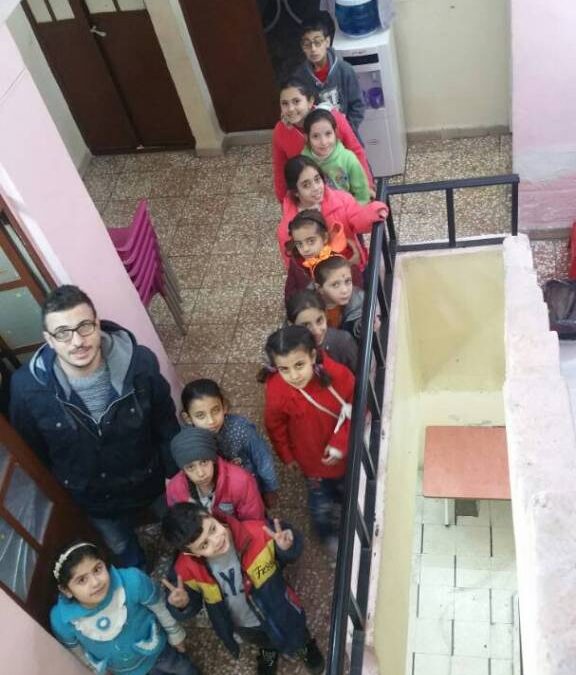
May 2, 2018 | Focolare Worldwide
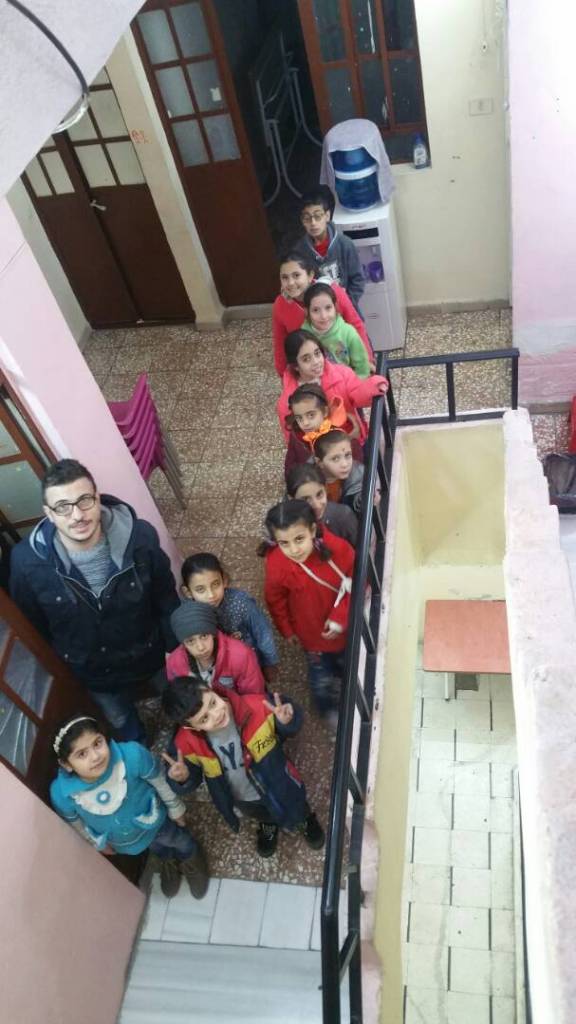
“La Maison des enfants” in Damascus, © Zéna.
May 1, 2018 | Non categorizzato
Chocolate Factory During the summer I travelled with a friend to Germany, to work in a well-known chocolate factory but we were given a very cold welcome by the 400 employees. One woman in particular was particularly grumpy towards me. One day, she made a big mistake that could have been very costly for her. When the section manager arrived, without even hesitating, I took the blame for the mistake. I was severely reprimanded and told that it could cost me my job if it happened again. But I was happy: I had done it to Jesus in my colleague. That gesture impressed my co-workers. From then on the atmosphere changed; we began to treat each other more cordially and, when the time came to leave, it felt like leaving a real family behind. Krisztina – Romania The Great Novelty During a meeting at the parish I remained quite struck by the joy and simplicity of one group of guys who were more or less the same age as me. For someone like me who only ran to God in times of trouble, hearing people talk about God as Love was a novelty. Without reasoning it out too much, I decided to do as they were doing. First, I started helping around the house and keeping an eye on my little sister. One Sunday, I even skipped football match in order to help my Dad put up a roof. At school, instead of studying alone as I usually did, I helped some friends with their studies. Daniel – Argentina At the Supermarket I went to the usual supermarket to pick up some things for a supper with thirty boys at our house and, since I would be busy at a meeting for a few days, I thought I would do one big shopping that I could leave at home. As I was placing the groceries onto the check-out counter, I noticed the woman behind me with only a few items. Behind her was an elderly woman with ten tissue boxes. I asked her if she wanted to go ahead of me. She told me that her husband had gone to get a case of water. When her husband came, I let him go ahead of me as well. Then, I began filling up my many shopping bags. In the end, the cashier pulled out the receipt and said to me: “Today you don’t have to pay anything!” I thought it was a joke. The cashier asked me my name. “Chiu”, I said. I heard over the loud-speaker: “Today, Miss Chiu has won 107 Euros!” I never imaged this would happen to me when I loved my neighbour behind me in the queue ! Chiu – Hong Kong Grocery Stores I run a grocery store and so I’m used to the commercial world where profit comes first – not the customer. I met several Christians who try to put Jesus’s commandment of love into practice. I thought: if they can do it, why can’t I? The next morning I thought: I don’t want to go on weighing the goods with two heavy pieces of cardboard; from now on, I’ll only use light piece of paper. I felt such a great sense of joy and freedom, I discovered that loving opened new horizons to me. Beppino – Italy
Apr 30, 2018 | Non categorizzato
Labour Day was instituted on May 1st to commemorate the struggle of workers, which took place across all geographical and social barriers in order to safeguard their rights and improve their work conditions. “Eight hours of work, eight hours of leisure, eight hours of sleep” was the slogan coined in Australia in 1855, and shared by most of the early twentieth century trade union movements. It was above all the workers’ movements in the United States that fought the cause for the eight-hour day. The State of Illinois, in 1866, passed a law that introduced this time limit. The law came into force on 1 May 1867, and on that day a huge demonstration was organized in Chicago, with the participation of ten thousand workers, the largest protest ever seen on the streets of the American city. The manifestation was violently repressed. Much has changed since then, but still today, in many parts of the world, workers do not enjoy the same rights and dignity. For Christians, there is a profound connection between work and the identity of the human person. Jesus himself spent most of his life working as a carpenter in his father’s workshop.
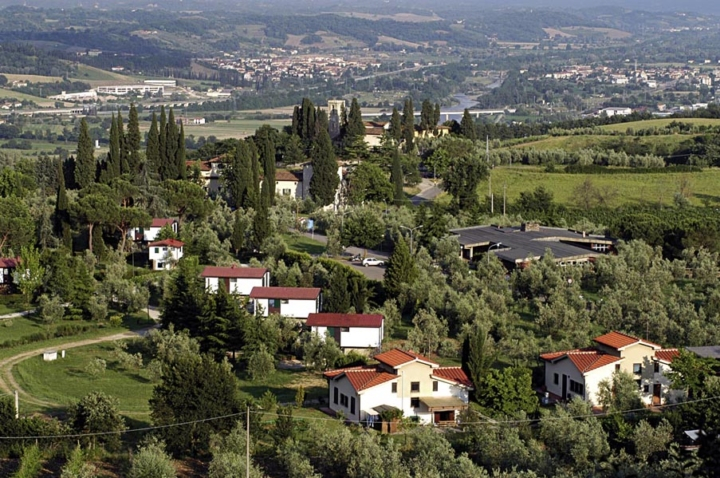
Apr 30, 2018 | Focolare Worldwide
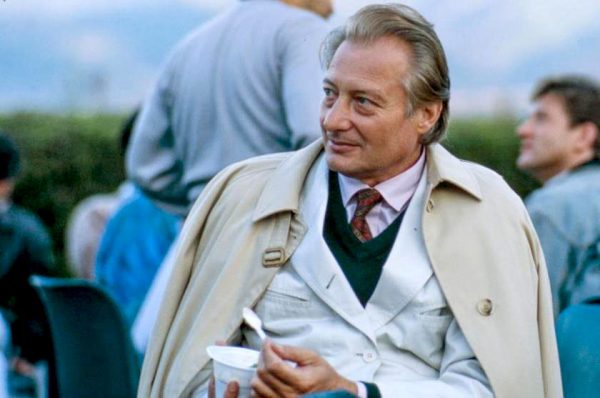
Umberto Giannettoni
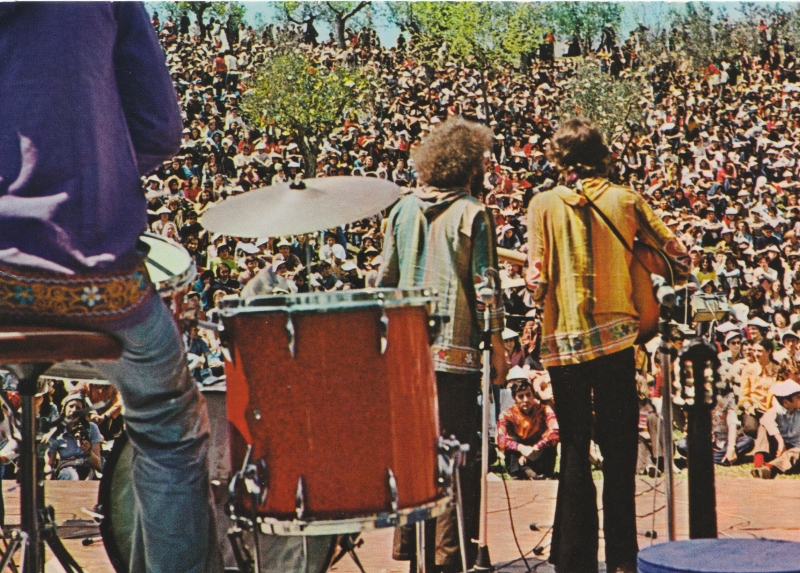 The first youth festival in Loppiano was on 1 May 1971. “After a meeting with the Prior of Taizé in Rocca di Papa (Rome), Chiara Lubich had described the town as a “town of the youth.” On a stopover in Loppiano on his way to Padua, Giorgio Marchetti, a close collaborator of Chiara, recounted what Chiara had said. This news for Umberto was like a flash of light in his soul, and he felt he had to answer Chiara immediately. During the weekend he organised an outing with the heads of the school of the focolare, to the Muraglione Pass in the Apennines. In a bar at the Pass he reflected on the possibility of holding a big meeting of young people in Loppiano, on the first of May […]. The young people of various zones and countries would be invited to participate with an artistic piece. When they left the bar, they were surprised by a particular scenery. The road was a sheet of ice. The rain had caused it after the lowering of the temperature. The vans couldn’t hold the road, and they had the impression that someone wanted to stop them from developing the decision made […].”
The first youth festival in Loppiano was on 1 May 1971. “After a meeting with the Prior of Taizé in Rocca di Papa (Rome), Chiara Lubich had described the town as a “town of the youth.” On a stopover in Loppiano on his way to Padua, Giorgio Marchetti, a close collaborator of Chiara, recounted what Chiara had said. This news for Umberto was like a flash of light in his soul, and he felt he had to answer Chiara immediately. During the weekend he organised an outing with the heads of the school of the focolare, to the Muraglione Pass in the Apennines. In a bar at the Pass he reflected on the possibility of holding a big meeting of young people in Loppiano, on the first of May […]. The young people of various zones and countries would be invited to participate with an artistic piece. When they left the bar, they were surprised by a particular scenery. The road was a sheet of ice. The rain had caused it after the lowering of the temperature. The vans couldn’t hold the road, and they had the impression that someone wanted to stop them from developing the decision made […].”  “There was a very talented group of young people in Loppiano. Among them was Heleno Oliveira, a young Brazilian singer-songwriter, who would have been a big help for the artistic part. Everyone worked hard. On 1 May 1971 in the natural amphitheatre in Campo Giallo, we saw the arrival of thousands and thousands of young people under a splendid sun. The event, to which many in Italy and Europe had contributed, resulted to be very effective for the youth who left in the evening, happy and filled with the divine they had experienced. From Trent came Paolo Bampi, a boy affected by leukaemia, who sang a captivating song: “…but what are you seeking, what do you want…” Then came Gen Rosso with the song, “God who is Love.” Then theatre pieces and dances followed. Each single number was given a “first prize,” which the jury awarded according to various reasons: beauty, unity, content, and commitment. It was a crescendo of sincere and explosive joy which contaminated everyone. As evening came, under the rays of a sun which turned everything gold and in a solemn calm after the intense day […] we strongly felt the presence of Mary.” After a second festive meeting of the youth in 1972 with an even greater attendance, “Chiara Lubich understood that it would be an important tool for the whole youth movement. She decided to involve the World Gen Centres which would participate in the organisation of the “Genfest” of 1973, still in Loppiano. In that year, Fr. Pasquale Foresi (cofounder of the Focolare Movement) was present and gave an important speech on the call to follow Jesus. In the open-air amphitheater, there were almost 10,000 young people. That was the birth of the Genfest! Source: www.loppiano.it Live streaming: https://www.primomaggioloppiano.it/live/
“There was a very talented group of young people in Loppiano. Among them was Heleno Oliveira, a young Brazilian singer-songwriter, who would have been a big help for the artistic part. Everyone worked hard. On 1 May 1971 in the natural amphitheatre in Campo Giallo, we saw the arrival of thousands and thousands of young people under a splendid sun. The event, to which many in Italy and Europe had contributed, resulted to be very effective for the youth who left in the evening, happy and filled with the divine they had experienced. From Trent came Paolo Bampi, a boy affected by leukaemia, who sang a captivating song: “…but what are you seeking, what do you want…” Then came Gen Rosso with the song, “God who is Love.” Then theatre pieces and dances followed. Each single number was given a “first prize,” which the jury awarded according to various reasons: beauty, unity, content, and commitment. It was a crescendo of sincere and explosive joy which contaminated everyone. As evening came, under the rays of a sun which turned everything gold and in a solemn calm after the intense day […] we strongly felt the presence of Mary.” After a second festive meeting of the youth in 1972 with an even greater attendance, “Chiara Lubich understood that it would be an important tool for the whole youth movement. She decided to involve the World Gen Centres which would participate in the organisation of the “Genfest” of 1973, still in Loppiano. In that year, Fr. Pasquale Foresi (cofounder of the Focolare Movement) was present and gave an important speech on the call to follow Jesus. In the open-air amphitheater, there were almost 10,000 young people. That was the birth of the Genfest! Source: www.loppiano.it Live streaming: https://www.primomaggioloppiano.it/live/
Apr 30, 2018 | Focolare Worldwide
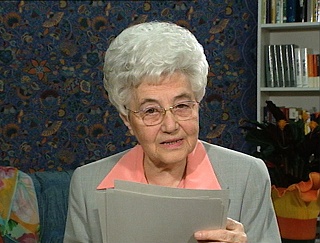
Apr 28, 2018 | Non categorizzato
 How did this adventure of unity begin? My dear friends, it began when not I, but Someone else, wanted it to begin. You may know that certain gifts are given to the world from time to time: they are called charisms. They come from the One who guides history, who leads it toward a very precise goal: the common good, by channeling towards the goal even the sad things that we men and women bring about in the world. It is God, God who is Love, in whom many of us firmly believe. One day, many years ago, one of these charisms came here too. Through it, we, who were young people at the time, understood that there was a wonderful design, a task, almost a mission entrusted to us: to work during our lives so that all may be one by putting love into action, in our own hearts and in that of others. Was it imagination? Utopia? No, certainly not, since Jesus prayed to his Father in heaven using these very words: “May they all be one”. Could God, the Father, not listen to the voice of God, the Son, with whom he is one God? We set out confidently toward this goal and now there are millions and millions of us – children, young people and adults – from almost every nation in the world. It is not possible to count how many we are. Of course, some of these people do not share our same faith, they might have another, or perhaps no religious faith at all. Nevertheless, they act with kindness and good will, sentiments which must be present in every human heart. So we journey together, with them too, towards the goal of a universal family, towards the building up of a united world. And, if God is with us, who can be against us? … Now it is up to you to carry the banner of our ideal. On one side is written unity, loving one another to the point of being ready to die for one another. On the other side, the means to reach this goal: effort, hard work, being ready even to suffer so that the world may become one family. You are young. You don’t lack courage. If we were able to do it, why not you? Chiara Lubich (From the archives of the Chiara Lubich Centre)
How did this adventure of unity begin? My dear friends, it began when not I, but Someone else, wanted it to begin. You may know that certain gifts are given to the world from time to time: they are called charisms. They come from the One who guides history, who leads it toward a very precise goal: the common good, by channeling towards the goal even the sad things that we men and women bring about in the world. It is God, God who is Love, in whom many of us firmly believe. One day, many years ago, one of these charisms came here too. Through it, we, who were young people at the time, understood that there was a wonderful design, a task, almost a mission entrusted to us: to work during our lives so that all may be one by putting love into action, in our own hearts and in that of others. Was it imagination? Utopia? No, certainly not, since Jesus prayed to his Father in heaven using these very words: “May they all be one”. Could God, the Father, not listen to the voice of God, the Son, with whom he is one God? We set out confidently toward this goal and now there are millions and millions of us – children, young people and adults – from almost every nation in the world. It is not possible to count how many we are. Of course, some of these people do not share our same faith, they might have another, or perhaps no religious faith at all. Nevertheless, they act with kindness and good will, sentiments which must be present in every human heart. So we journey together, with them too, towards the goal of a universal family, towards the building up of a united world. And, if God is with us, who can be against us? … Now it is up to you to carry the banner of our ideal. On one side is written unity, loving one another to the point of being ready to die for one another. On the other side, the means to reach this goal: effort, hard work, being ready even to suffer so that the world may become one family. You are young. You don’t lack courage. If we were able to do it, why not you? Chiara Lubich (From the archives of the Chiara Lubich Centre)
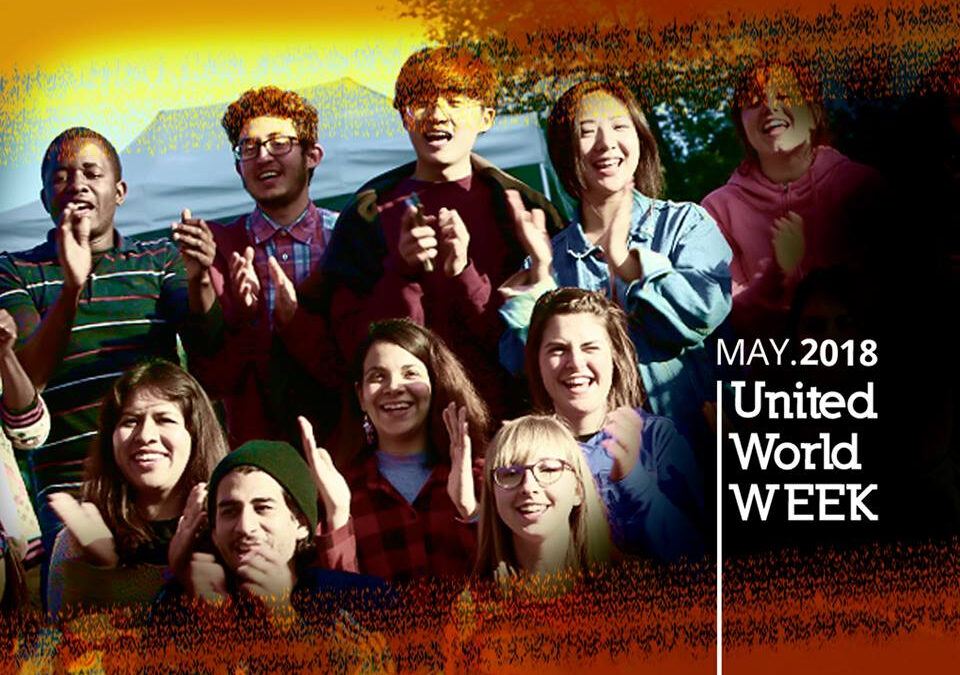
Apr 28, 2018 | Focolare Worldwide
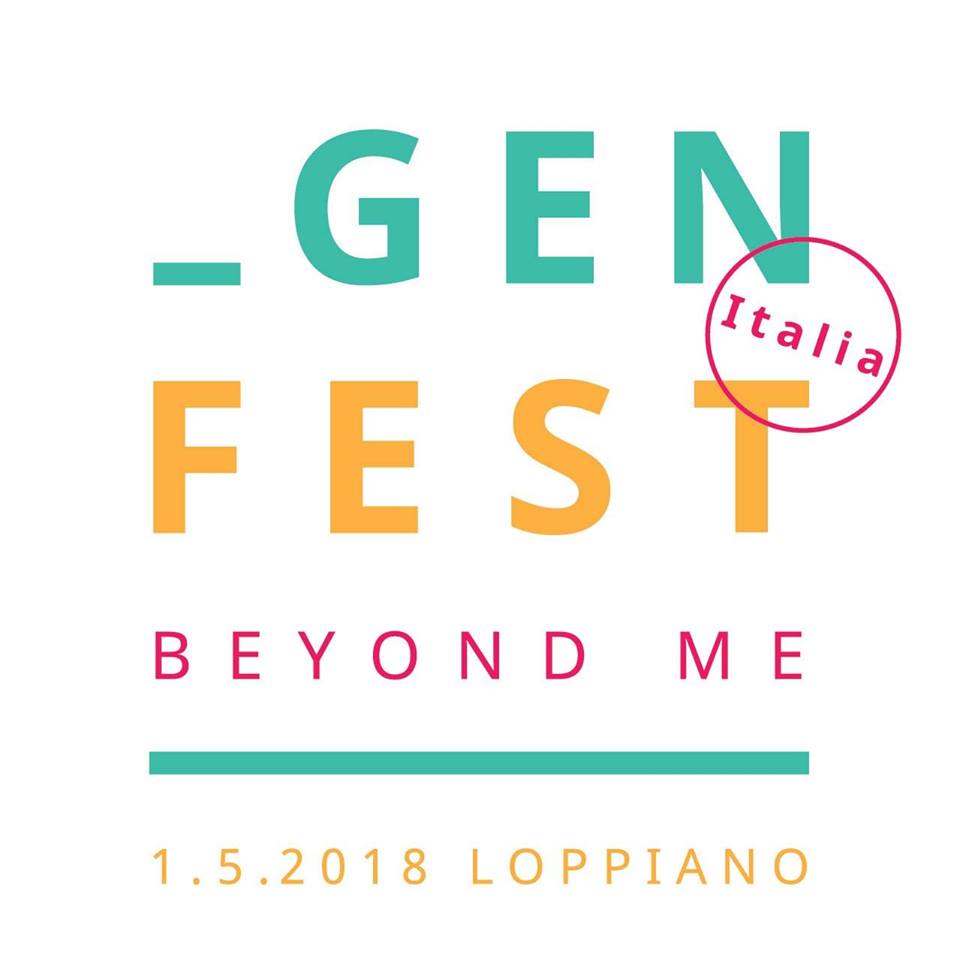 Zooming in on the young. Once again this year United World Week will be launched from the Focolare’s little town of Loppiano, Italy. Events will include a global network of projects marked by the spirit of brotherhood among peoples from a variety of cultures. This event has been held for over twenty years by the young members of the Focolare Movement who wish to bear witness not only to their peers, but also to public institutions that the dream of a united world has not been crushed by war or underneath the weight of social injustice – especially if the new generations who have been formed in a culture of peace are the ones taking the reins of society in their own hands. On May 1st, the Italian Focolare town will host one of the many “national” events in advance of the Genfest that will be held this year in Manila, Philippines (“Beyond all Borders, July 2018), and assemble 3 thousand young people from all over the world. It will be a festival to talk about the most difficult border to overcome when reaching out to others: oneself. “Beyond Me” will tell the stories of people who have wanted to bring about a change, beginning with themselves, stepping out of their comfort zones, to open themselves to such values as solidarity and to the needs of the people around them. For many of the young people, this experience of openness deepens its roots into a personal encounter with God, which has transformed their lives and allowed them to overcome their fears. For others, it has been overcoming an illness or disability or taking notice of someone else’s need. In name of a great friendship with the community of Nomadelfia and in view of the Pope’s visit to the two towns on May 10th, there will also be a large group of young people from Nomadelfia.
Zooming in on the young. Once again this year United World Week will be launched from the Focolare’s little town of Loppiano, Italy. Events will include a global network of projects marked by the spirit of brotherhood among peoples from a variety of cultures. This event has been held for over twenty years by the young members of the Focolare Movement who wish to bear witness not only to their peers, but also to public institutions that the dream of a united world has not been crushed by war or underneath the weight of social injustice – especially if the new generations who have been formed in a culture of peace are the ones taking the reins of society in their own hands. On May 1st, the Italian Focolare town will host one of the many “national” events in advance of the Genfest that will be held this year in Manila, Philippines (“Beyond all Borders, July 2018), and assemble 3 thousand young people from all over the world. It will be a festival to talk about the most difficult border to overcome when reaching out to others: oneself. “Beyond Me” will tell the stories of people who have wanted to bring about a change, beginning with themselves, stepping out of their comfort zones, to open themselves to such values as solidarity and to the needs of the people around them. For many of the young people, this experience of openness deepens its roots into a personal encounter with God, which has transformed their lives and allowed them to overcome their fears. For others, it has been overcoming an illness or disability or taking notice of someone else’s need. In name of a great friendship with the community of Nomadelfia and in view of the Pope’s visit to the two towns on May 10th, there will also be a large group of young people from Nomadelfia. 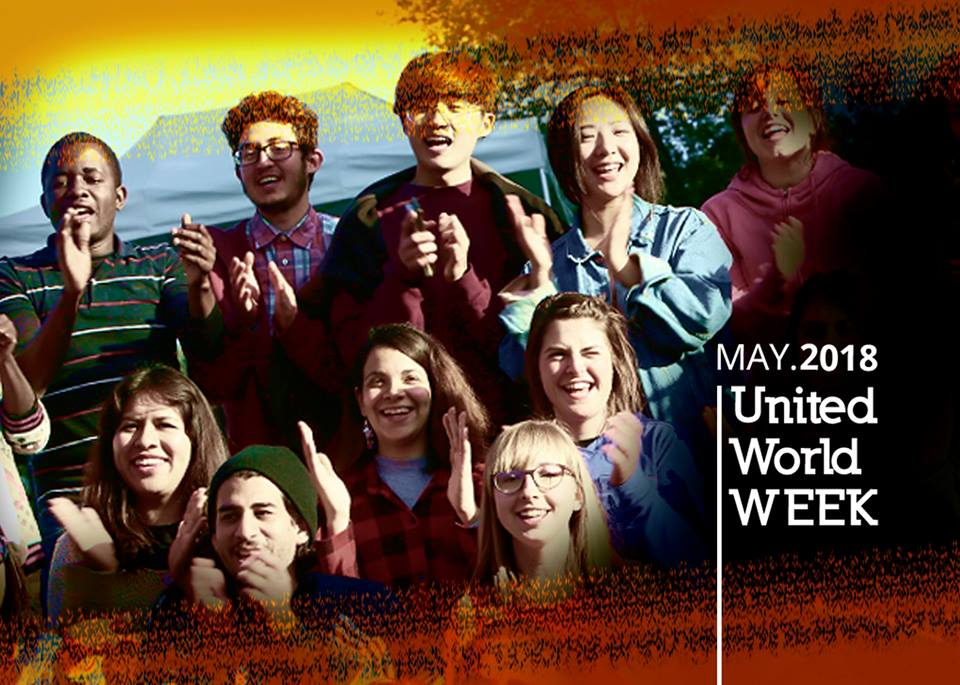 United World Week, which will begin right after, will be a single event located in different places around the world. It is an international expo that is an integral part of the United World Project, which for more than twenty years – the first edition in 1995 – returns every year at this time to promote peaceful relations and exchange among peoples and cultures, especially among the poor, marginalized and lonely, but not with out the help of famous people from the worlds of culture, sport, civil society and religion. Over time, United World Week gained ground on the local, national and supranational levels of public opinion through the social and mass media, and its projects in favor of brotherhood. The 2018 edition will focus on the topic “Generation Zero Hunger” one of 17 sustainable development objectives contained in the Agenda approved by the member States of the United Nations, to be reached by 2030. The teenagers and young people of the Focolare Movement have long been engaged in offering an important contribution to the project being brought forward by the Food and Agriculture Organization of the United Nations (FAO), with regard to things such as malnutrition, wasting food, respect for Nature and personal and collective projects geared towards the responsible use of the earth and its resources. Hence, the Week will be an opportunity to show the results of this collaboration and to engage other teenagers, citizens and institutions in reaching the goal. At the conclusion, on May 6th, the Run for Unity relay race will be held with hundred and thousands of teenagers of all nationalities, religions, cultures and ethnic groups. It will cover the earth, offering a testimony of “fraternity” from East to West. At every stop along the run – on foot or on bike – the most counter-current relay that exists will be enriched with sporting events, games, acts of solidarity and whatever else can help to bear witness that the dream of a united world lives on, in spite of the tensions or signs to the contrary. Perhaps these kids will be among the main actors. Chiara Favotti
United World Week, which will begin right after, will be a single event located in different places around the world. It is an international expo that is an integral part of the United World Project, which for more than twenty years – the first edition in 1995 – returns every year at this time to promote peaceful relations and exchange among peoples and cultures, especially among the poor, marginalized and lonely, but not with out the help of famous people from the worlds of culture, sport, civil society and religion. Over time, United World Week gained ground on the local, national and supranational levels of public opinion through the social and mass media, and its projects in favor of brotherhood. The 2018 edition will focus on the topic “Generation Zero Hunger” one of 17 sustainable development objectives contained in the Agenda approved by the member States of the United Nations, to be reached by 2030. The teenagers and young people of the Focolare Movement have long been engaged in offering an important contribution to the project being brought forward by the Food and Agriculture Organization of the United Nations (FAO), with regard to things such as malnutrition, wasting food, respect for Nature and personal and collective projects geared towards the responsible use of the earth and its resources. Hence, the Week will be an opportunity to show the results of this collaboration and to engage other teenagers, citizens and institutions in reaching the goal. At the conclusion, on May 6th, the Run for Unity relay race will be held with hundred and thousands of teenagers of all nationalities, religions, cultures and ethnic groups. It will cover the earth, offering a testimony of “fraternity” from East to West. At every stop along the run – on foot or on bike – the most counter-current relay that exists will be enriched with sporting events, games, acts of solidarity and whatever else can help to bear witness that the dream of a united world lives on, in spite of the tensions or signs to the contrary. Perhaps these kids will be among the main actors. Chiara Favotti
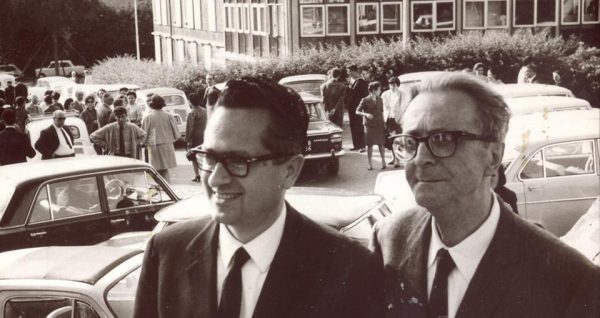
Apr 27, 2018 | Non categorizzato

Tommaso Sorgi with Igino Giordani
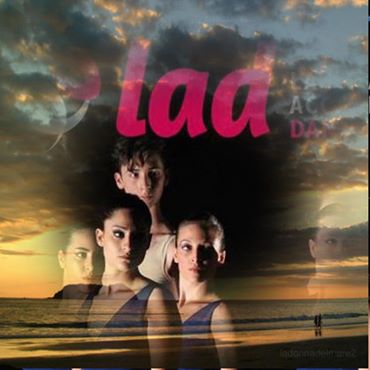
Apr 26, 2018 | Non categorizzato
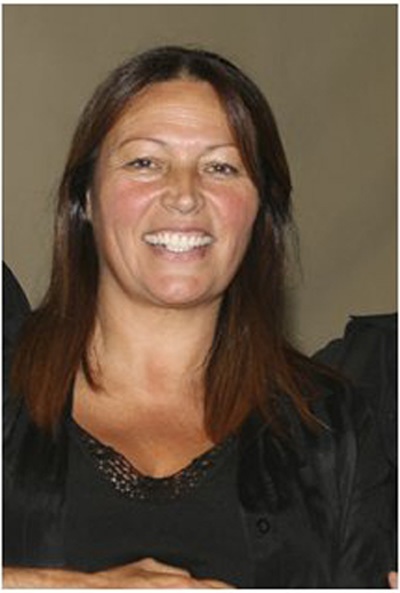
Antonella Lombardo
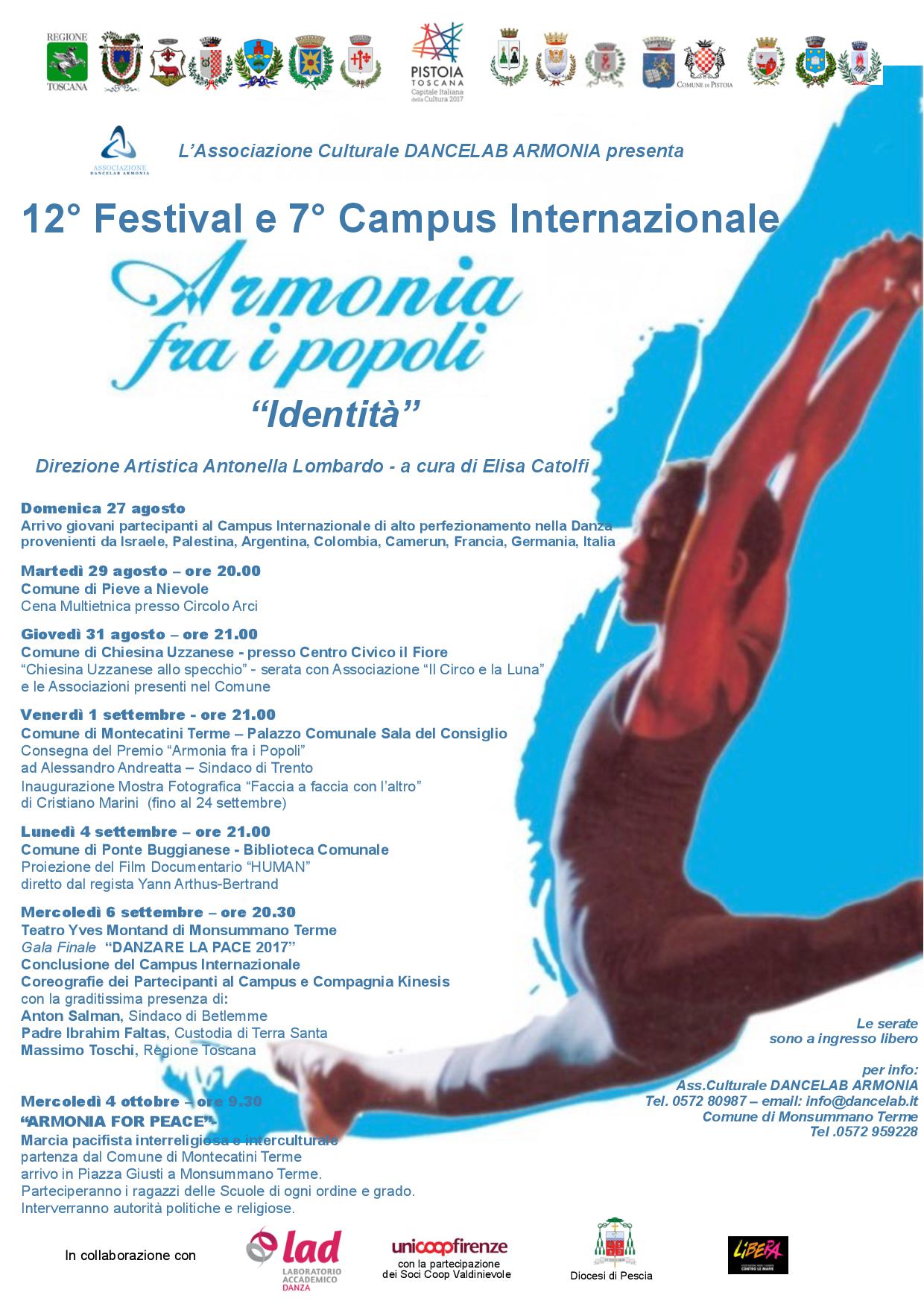 That was the beginning of the Harmony DanceLab Association. The aim of this association is to develop dance as a means of creating harmony and dialogue among different cultures and so contribute to peace in the world. For the last thirteen years it has organised “Harmony among People” an international festival, involving not only a dance school of students from areas of conflict in Palestine and Israel but also many people from the local community. Peace education underpins the professional and human formation that the students receive. Over the years, the Association has spread to various parts of Italy and Budapest and, since 2014, has worked in the Middle East with the John Paul II Foundation and in collaboration with the “Children Without Borders” Institute and Custodians of the Holy Land. Antonella continues, “Peace is not just a goal to reach but an everyday process that requires great effort and commitment. It is an educational challenge. Students learn dance techniques but also experience the power of a language that is superior to Art. On the last evening, they tell everyone about the respect, understanding and fraternity they have experienced.” An intercultural and inter religious Peace March is also part of the project. This takes place every year on the 4th October and draws people from institutions, schools, voluntary groups and faith communities (Christian, Muslim and Jewish) in Tuscany.
That was the beginning of the Harmony DanceLab Association. The aim of this association is to develop dance as a means of creating harmony and dialogue among different cultures and so contribute to peace in the world. For the last thirteen years it has organised “Harmony among People” an international festival, involving not only a dance school of students from areas of conflict in Palestine and Israel but also many people from the local community. Peace education underpins the professional and human formation that the students receive. Over the years, the Association has spread to various parts of Italy and Budapest and, since 2014, has worked in the Middle East with the John Paul II Foundation and in collaboration with the “Children Without Borders” Institute and Custodians of the Holy Land. Antonella continues, “Peace is not just a goal to reach but an everyday process that requires great effort and commitment. It is an educational challenge. Students learn dance techniques but also experience the power of a language that is superior to Art. On the last evening, they tell everyone about the respect, understanding and fraternity they have experienced.” An intercultural and inter religious Peace March is also part of the project. This takes place every year on the 4th October and draws people from institutions, schools, voluntary groups and faith communities (Christian, Muslim and Jewish) in Tuscany.  How many young people have you met in your career as a teacher of dance? “Thousands. Dance is difficult and demanding but young people are drawn to it. TV talent shows also attract people but give a distorted idea about what is truly art. You have to provide an experiential dimension to make an impact as a teacher. Nowadays, young people do not accept the theory without experiencing the importance of it for themselves.” Does art have a social value? Antonella Lombardo is certain that it does. “Art is like the prophecy of a new type of Humanism – a means of achieving social harmony. It is a reflection of Beauty that is Love. In conclusion, she says, “Keeping this in mind as I carry out my profession has changed my life totally. I have found meaning in what previously seemed to have no sense. I try to give young people the opportunity to do the same so that their lives might be a work of art, just as Chiara Lubich taught me.” Chiara Favotti See also: www.festivalarmonia.org, www.dancelab.it
How many young people have you met in your career as a teacher of dance? “Thousands. Dance is difficult and demanding but young people are drawn to it. TV talent shows also attract people but give a distorted idea about what is truly art. You have to provide an experiential dimension to make an impact as a teacher. Nowadays, young people do not accept the theory without experiencing the importance of it for themselves.” Does art have a social value? Antonella Lombardo is certain that it does. “Art is like the prophecy of a new type of Humanism – a means of achieving social harmony. It is a reflection of Beauty that is Love. In conclusion, she says, “Keeping this in mind as I carry out my profession has changed my life totally. I have found meaning in what previously seemed to have no sense. I try to give young people the opportunity to do the same so that their lives might be a work of art, just as Chiara Lubich taught me.” Chiara Favotti See also: www.festivalarmonia.org, www.dancelab.it
Apr 26, 2018 | Non categorizzato, Word of
for ages 4-8 | for ages 9-17 | Print | Audio
St. Paul was writing to Christians in the region of Galatia, who had heard the Gospel proclamation from him. He was scolding them for not understanding the true meaning of Christian freedom. For the people of Israel, freedom was a gift from God who had brought them out of slavery in Egypt and led them to a new land, establishing a pact of mutual faithfulness with them. At the same time, Paul strongly affirmed that Christian freedom is a gift from Jesus. In fact, Jesus makes it possible for us, in him and like him, to become children of God who is love. By imitating the Father as Jesus taught us and showed us through his life, we too can learn to have the same attitude of mercy towards everyone, and be at their service. (Mt 5:43-48; Lk 6:36; Mk 10:45). For Paul, the apparent contradiction in “freedom to serve” is possible through the gift of the Spirit that Jesus gave to humanity by his death on the cross. It is the Spirit who gives us the strength to come out of our prison of selfishness, which is burdened with divisions, injustices, betrayals, and violence. He leads us to true freedom. “By contrast, the fruit of the Spirit is love, joy, peace, patience, kindness, generosity, faithfulness, gentleness, and self-control.“ Besides being a gift, Christian freedom is also a commitment. Above all, it is a commitment to welcome the Spirit into our hearts, making room for him and recognizing his voice in us. “Above all, we must become more and more aware of the presence of the Holy Spirit in us,” Chiara Lubich wrote in the October issue of Città Nuova in 2000. “We have a great treasure in our innermost being, but are not sufficiently aware of it … To hear the voice of the Spirit and follow it, we must say no … to temptation, reject its suggestions and say yes to the tasks God has entrusted to us; yes to love for our neighbors; yes to the trials and difficulties we encounter… By doing so, the Holy Spirit will guide us and give our Christian life gusto, vigor, drive and brightness, without which it cannot be authentic. Then, whoever is with us will notice that we are not only children of our natural family, but also children of God.” In fact, the Spirit calls us to step aside from being the center of our concerns in order to be more receptive to others, to listen to them and share material and spiritual goods. He calls us to forgive or take care of the most varied people in different situations of daily life. This attitude allows us to experience the typical fruit of the spirit: our personal growth toward true freedom. This brings out and develops talents and resources in us that would have stayed buried and unknown had we continued living wrapped up in ourselves. Every action of ours is an opportunity not to be missed, to say no to the slavery of selfishness and yes to the freedom of loving. “By contrast, the fruit of the Spirit is love, joy, peace, patience, kindness, generosity, faithfulness, gentleness, and self-control.“ Those who accept the work of the Spirit in their hearts also contribute toward building positive human relations through their daily activities, at home and in society. Carlo Colombino, an entrepreneur, husband and father, owns a company in northern Italy. Out of his 60 employees, around a quarter are not Italian and some of them have had traumatic past experiences. “Even the workplace can and should facilitate their integration,” he told a journalist. “Our work includes quarrying and recycling construction materials, and I have responsibilities toward the environment and the area where I live. Some years ago, the economic crisis hit us hard: should I save the business or the employees? We made some people redundant, talking it over with them and finding the least painful solutions. It was a dramatic experience with sleepless nights. “I can do my job either well or poorly. I try to do it as best I can. I believe in the positive influence of ideas. A business focused only on turnover and figures will not last long. People must be at the center of all we do. I believe in God and am convinced that harmonizing business and solidarity is not a dream.” Let’s courageously set in motion our personal call to freedom, in the environment where we live and work. This will allow the Spirit to touch and renew the lives of many people around us, and move history toward a future of “joy, peace, patience, kindness.” Letizia Magri 3 Cfr. C. Lubich, We have a Treasure, New City, 44 (2000), 10, p. 7.
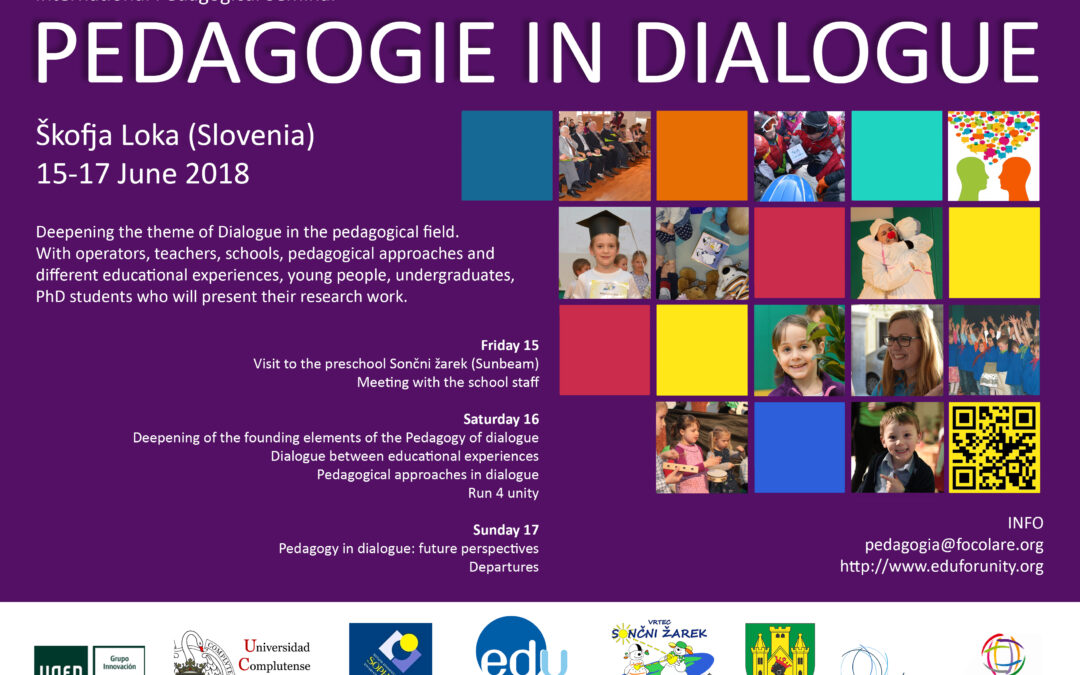
Apr 26, 2018 | Non categorizzato
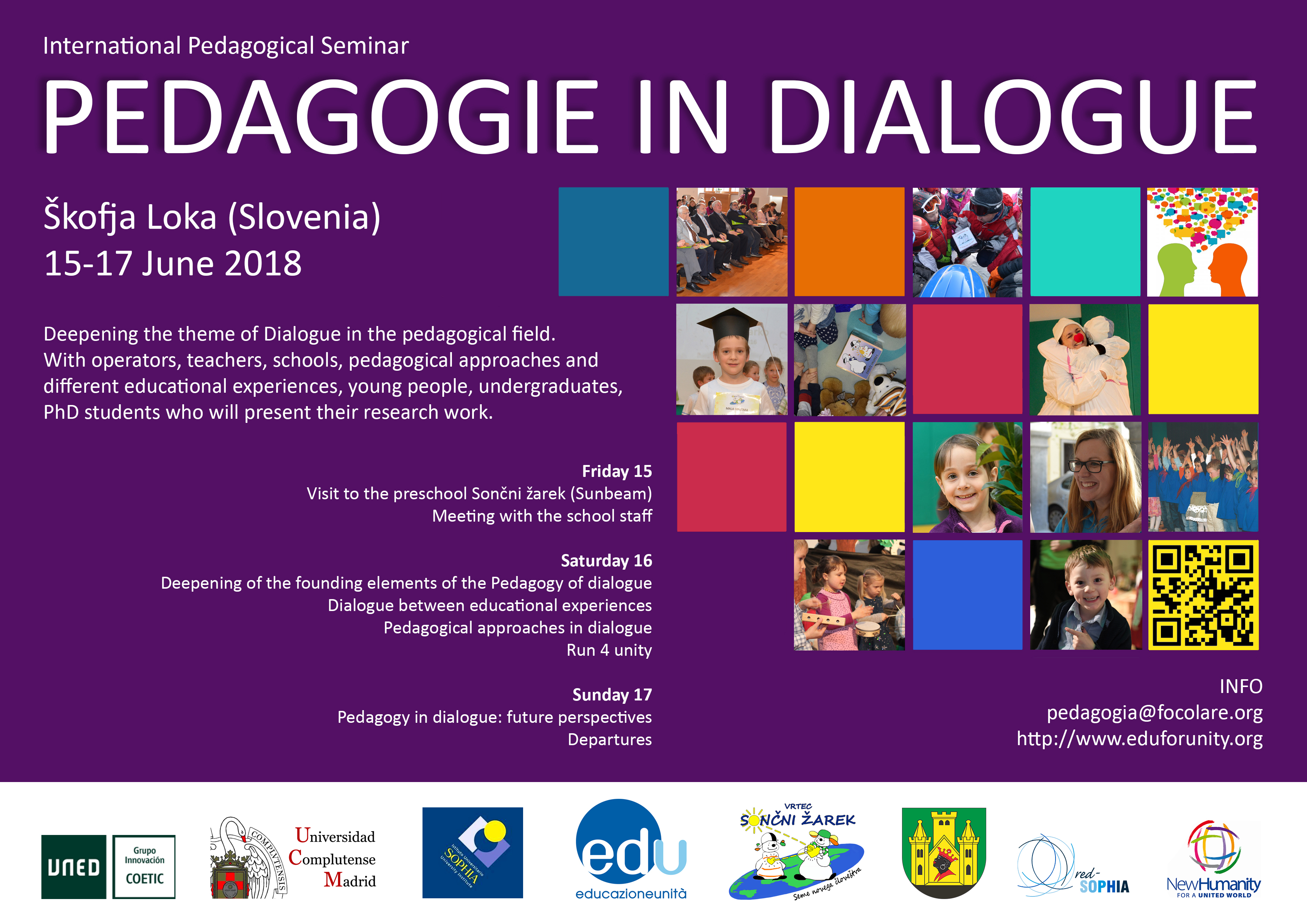 Deepening the theme of Dialogue in the pedagogical field. With operators, teachers, schools, pedagogical approaches and different educational experiences, young people, undergraduates, PhD students who will present their research work. Info: pedagogia@focolare.org Education for Unity
Deepening the theme of Dialogue in the pedagogical field. With operators, teachers, schools, pedagogical approaches and different educational experiences, young people, undergraduates, PhD students who will present their research work. Info: pedagogia@focolare.org Education for Unity
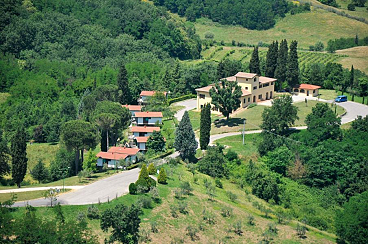
Apr 25, 2018 | Focolare Worldwide
I was born in Trentino, a region of northern Italy, 67 years ago. During my adolescence, my only interests were music and art. Because of the constant arguments with my parents, I soon left school and home. A guitar, long hair, my band: this became my world. With some friends we formed a commune where we lived, playing and dreaming together. It was a place of passage, where hashish circulated. I met Anna there when I was twenty years old, and in the joy and recklessness of youth she became my partner. She occasionally used heavy drugs as well. To help her quit, I made a gesture which I later regretted bitterly: I tried them too. It was the beginning of a downwards slope that day after day led us into a bottomless pit, and the humiliation of having to find increasingly strong doses. There followed years of fear, and the alternation of euphoria, withdrawal symptoms, hospital admissions and continuous relapses. And then prison. After serving my time, we decided to leave for India to learn how to play the Tabla, a typical percussion instrument. India fascinated us, to the point of making us forget the West and its materialism, and we were able to stay away from drugs. When we returned, the impact was very hard. Italy at that time was paralyzed by political terrorism. Bewildered, we found comfort again in the arms of heroin, which helped us not to think. In an even more ruthless way, we were sucked once more into the vortex of drug addiction. Years of physical and moral decline followed. Until we reached a dramatic crossroad: madness or death. I returned to India to detoxify myself. But I went alone, so that we would not condition one another and fall back again. When I returned to Italy, I accepted, reluctantly, to stay with an uncle in Tuscany. It was the turning point. Strangely, I felt accepted and respected by him like one of the family. What animated the life of his family was the idea that God is Love, that he loves everyone personally and without conditions. This idea began to fascinate me too. On 1 May 1982, I went to Loppiano with my cousins for a meeting of young people from all over the world. Ever more convinced of wanting to make this life my own, I tried to remain in close contact with the inhabitants of the little town, who, as I discovered, had adopted the Gospel as the basis of their lives.  I wanted to tell Anna about what had happened to me, and I went to Trentino to see her. Her reaction was understandably harsh, she felt betrayed. After a few months, she wrote me a letter. She was in prison, and she wanted to see me. I thanked God: from the bottom the only place to go is upwards. “Use me as an instrument for her redemption!”, I prayed. Every week I went to see her and talk to her. After she had served her time, after a year and a half, we began a new life together, constantly helped by our new family, the Focolare. The desire grew in us to get married in church. Life became calmer and more secure, and was enriched by the arrival of two daughters. Anna qualified as a nurse. But after some time, she lost her head for a colleague at work. She asked me for a separation. After struggling in vain to avoid the breakup, I found an apartment and went to live alone. Then came the first signs of an increasingly serious liver disease, which eventually required a transplant. The doctors said that I had only a few weeks to live and admitted me immediately. The time spent in hospital was precious, as I tried to prepare my soul, fixing it in God alone, with daily acts of love for the other patients, especially the loneliest ones. A compatible liver was found and the transplant was carried out. The outcome was above expectations, and after some time I was discharged. Two years ago I received a phone call: Anna was asking me to look after our daughters, because she was to be hospitalized. I rushed to her side. The diagnosis of a terminal condition had unexpectedly brought the family together. We forgave each other, grateful to be able to make this last stretch of her journey together. In her final moments, while I slowly whispered “Hail Mary” in her ear, she occasionally accompanied my prayer with a sigh. We had never prayed together before. During the final words of the “Haily holy queen” … “and after this our exile show us…Jesus” .., Anna flew to Heaven. (S. B. – Italia)
I wanted to tell Anna about what had happened to me, and I went to Trentino to see her. Her reaction was understandably harsh, she felt betrayed. After a few months, she wrote me a letter. She was in prison, and she wanted to see me. I thanked God: from the bottom the only place to go is upwards. “Use me as an instrument for her redemption!”, I prayed. Every week I went to see her and talk to her. After she had served her time, after a year and a half, we began a new life together, constantly helped by our new family, the Focolare. The desire grew in us to get married in church. Life became calmer and more secure, and was enriched by the arrival of two daughters. Anna qualified as a nurse. But after some time, she lost her head for a colleague at work. She asked me for a separation. After struggling in vain to avoid the breakup, I found an apartment and went to live alone. Then came the first signs of an increasingly serious liver disease, which eventually required a transplant. The doctors said that I had only a few weeks to live and admitted me immediately. The time spent in hospital was precious, as I tried to prepare my soul, fixing it in God alone, with daily acts of love for the other patients, especially the loneliest ones. A compatible liver was found and the transplant was carried out. The outcome was above expectations, and after some time I was discharged. Two years ago I received a phone call: Anna was asking me to look after our daughters, because she was to be hospitalized. I rushed to her side. The diagnosis of a terminal condition had unexpectedly brought the family together. We forgave each other, grateful to be able to make this last stretch of her journey together. In her final moments, while I slowly whispered “Hail Mary” in her ear, she occasionally accompanied my prayer with a sigh. We had never prayed together before. During the final words of the “Haily holy queen” … “and after this our exile show us…Jesus” .., Anna flew to Heaven. (S. B. – Italia)
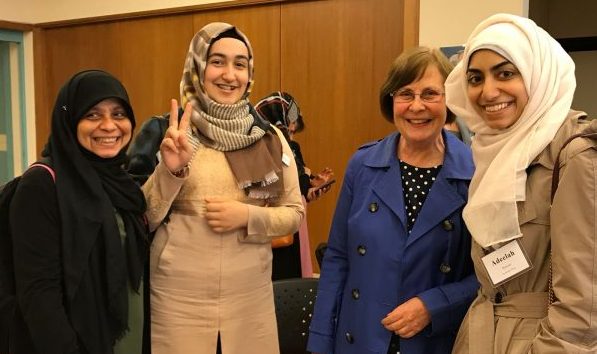
Apr 24, 2018 | Non categorizzato
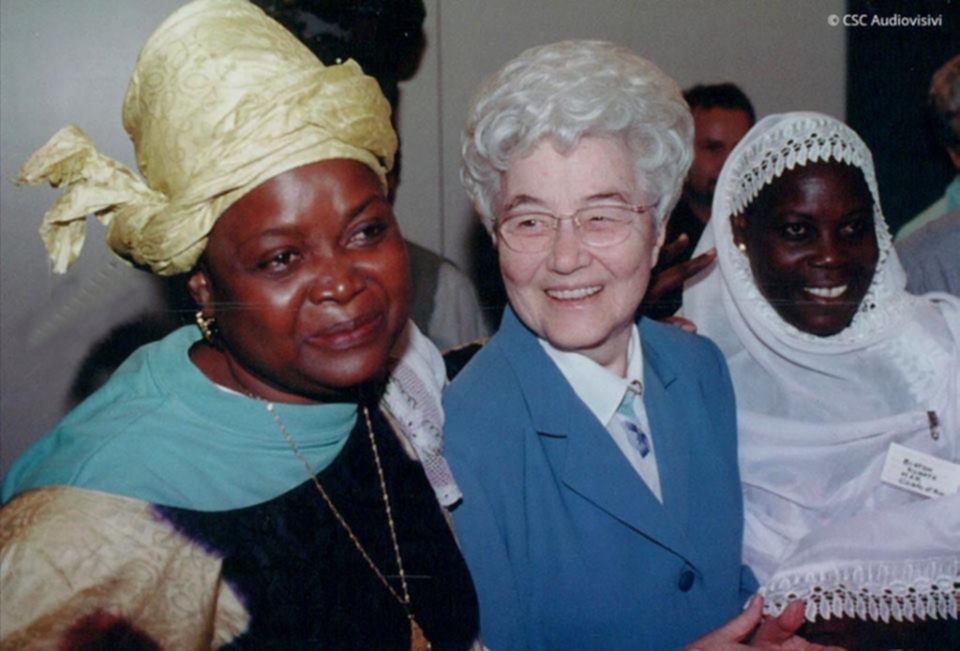
Photo: © CSC Audiovisivi
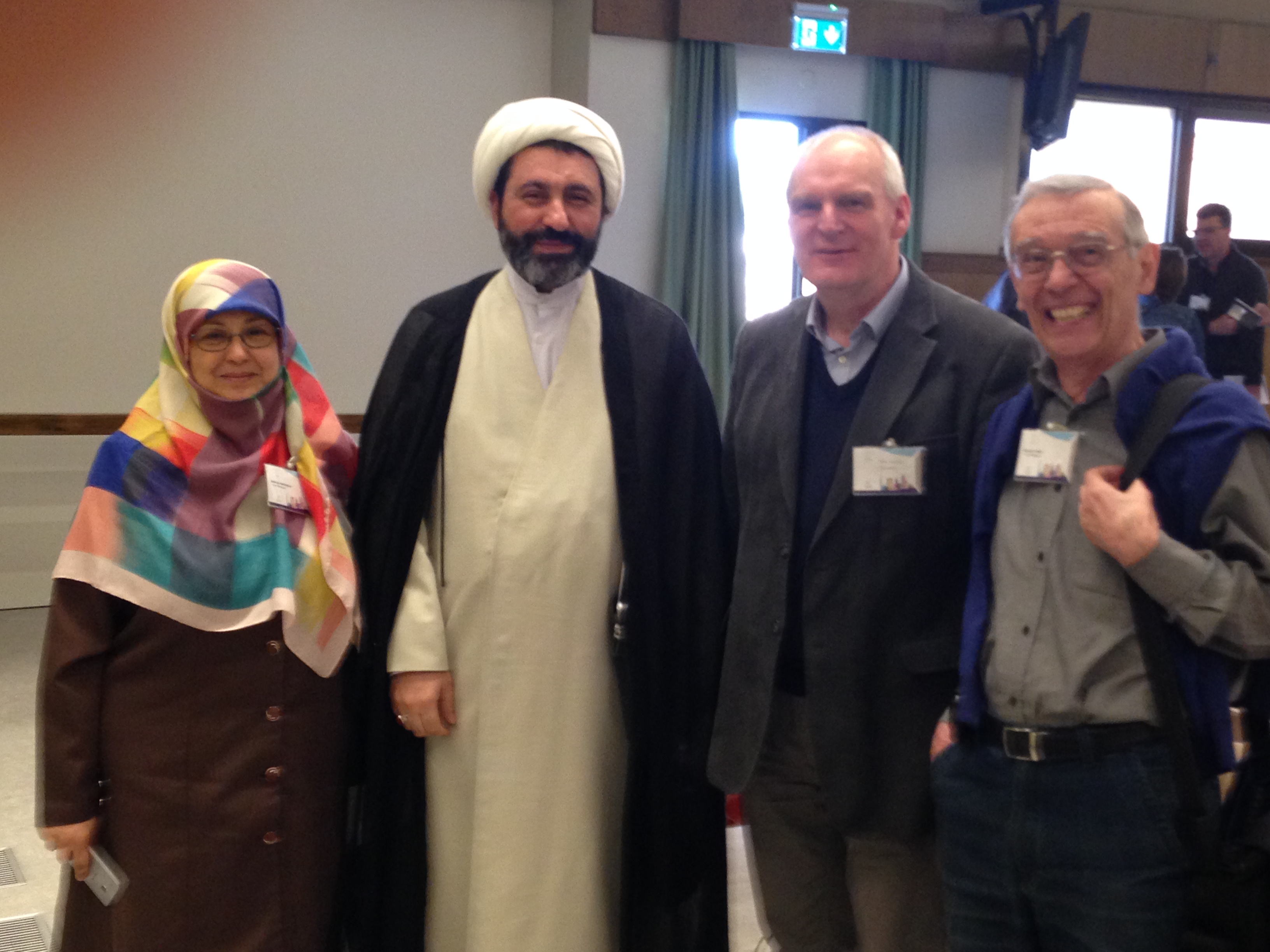 The Imam of Florence, Elizir Izzeddin, President of the Union of Islamic Communities in Italy, with whose members the Focolare Movement has shared a long, deep and fruitful collaboration, also spoke. “We’re all brothers and sisters. It’s not our goal to start a single religion, but to build bridges. With our dialogue we can encounter that hope that goes beyond the fears that have been generated by international terrorism. We work together to move beyond our fears.” Among the testimonies given, was that of the Austrian Focolare community with Syrian refugees. Hedy Lipburger recounted: “Hundreds of refugees arrived in Lower Austria in 2015. They couldn’t be ignored, so we went to help them.” Syrian refugee, Mohammad Kamel Alshhada, went on to say: “I had to leave my country, there was no other choice because, otherwise, I would have had to follow ISIS in teaching their ideas, because I’m a teacher. During the first three months in Austrian refugee camps I was depressed and without hope, we couldn’t talk with local people. Then, for the first time, several people from the Focolare spoke to us and took an interest in us. We felt accepted and appreciated, as if someone had taken our hand and helped us, step after step, to begin a new life.”
The Imam of Florence, Elizir Izzeddin, President of the Union of Islamic Communities in Italy, with whose members the Focolare Movement has shared a long, deep and fruitful collaboration, also spoke. “We’re all brothers and sisters. It’s not our goal to start a single religion, but to build bridges. With our dialogue we can encounter that hope that goes beyond the fears that have been generated by international terrorism. We work together to move beyond our fears.” Among the testimonies given, was that of the Austrian Focolare community with Syrian refugees. Hedy Lipburger recounted: “Hundreds of refugees arrived in Lower Austria in 2015. They couldn’t be ignored, so we went to help them.” Syrian refugee, Mohammad Kamel Alshhada, went on to say: “I had to leave my country, there was no other choice because, otherwise, I would have had to follow ISIS in teaching their ideas, because I’m a teacher. During the first three months in Austrian refugee camps I was depressed and without hope, we couldn’t talk with local people. Then, for the first time, several people from the Focolare spoke to us and took an interest in us. We felt accepted and appreciated, as if someone had taken our hand and helped us, step after step, to begin a new life.”  In the end came the testimony of strong unity between Mohammad Shomali, Director of the Islamic Centre of England, and Piero Coda, president of University Institute Sophia of Loppiano, who began “Wings of Unity”, a series of seminars for young Christians an Muslims that delve into the two faiths and into processes of dialogue and peace. Shomali affirmed: “if we sincerely ask God to guide us so that we can understand one another better, God will guide us. We have to ask God to talk to us together. In 2016, Piero Coda embraced this idea of mine at Loppiano and said we should come up with a name for this project which was clearly from God. Thus the name “Wings of Unity” popped up. Piero Coda continued: “I sensed that that God had a clear project in this. So I proposed a pact to Shomali: “Do we want to ask God to take our heart in his own hands, our mind? He welcomed the idea with joy.”
In the end came the testimony of strong unity between Mohammad Shomali, Director of the Islamic Centre of England, and Piero Coda, president of University Institute Sophia of Loppiano, who began “Wings of Unity”, a series of seminars for young Christians an Muslims that delve into the two faiths and into processes of dialogue and peace. Shomali affirmed: “if we sincerely ask God to guide us so that we can understand one another better, God will guide us. We have to ask God to talk to us together. In 2016, Piero Coda embraced this idea of mine at Loppiano and said we should come up with a name for this project which was clearly from God. Thus the name “Wings of Unity” popped up. Piero Coda continued: “I sensed that that God had a clear project in this. So I proposed a pact to Shomali: “Do we want to ask God to take our heart in his own hands, our mind? He welcomed the idea with joy.”
Apr 24, 2018 | Focolare Worldwide
103 years ago, this huge tragedy was the first on the deplorable list of disasters that occurred in the 20th century: the Armenian genocide. Recalling it, in 2016, Pope Francis made an appeal: “Having seen the pernicious effects to which hatred, prejudice and desire for dominion led in the last century, I express my lively hope that humanity will learn from those tragic experiences the need to act with responsibility and wisdom to avoid the danger of a return to such horrors. May all join in striving to ensure that whenever conflicts emerge between nations, dialogue, the enduring and authentic quest of peace, cooperation between states and the constant commitment of international organizations will always prevail, with the aim of creating a climate of trust favourable for the achievement of lasting agreements that look to the future”.
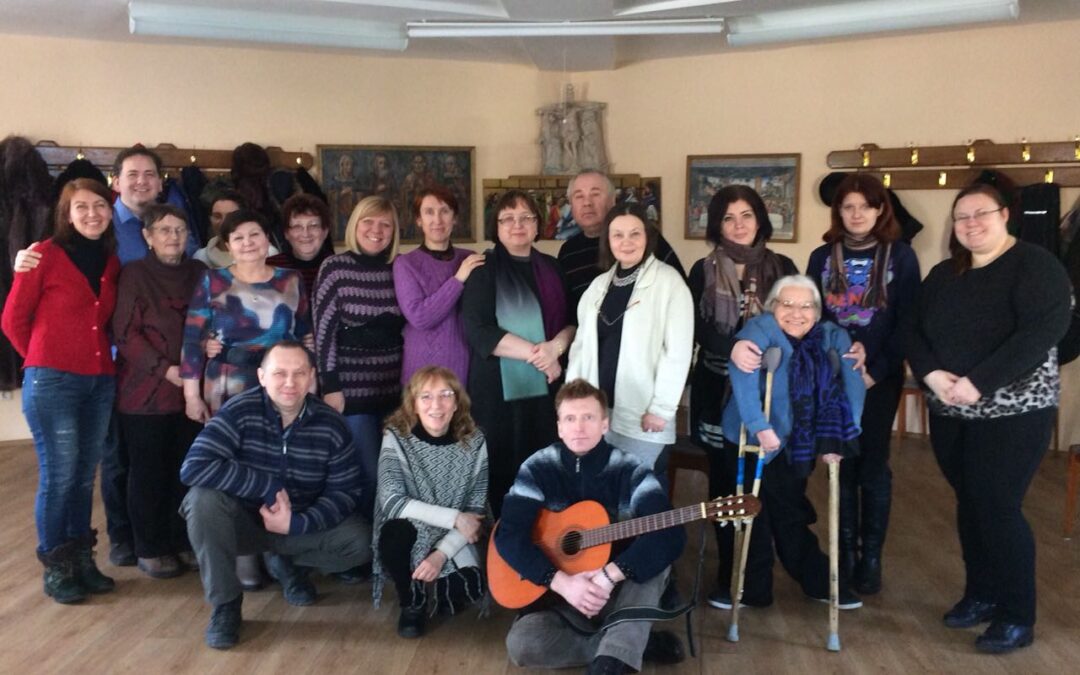
Apr 23, 2018 | Non categorizzato
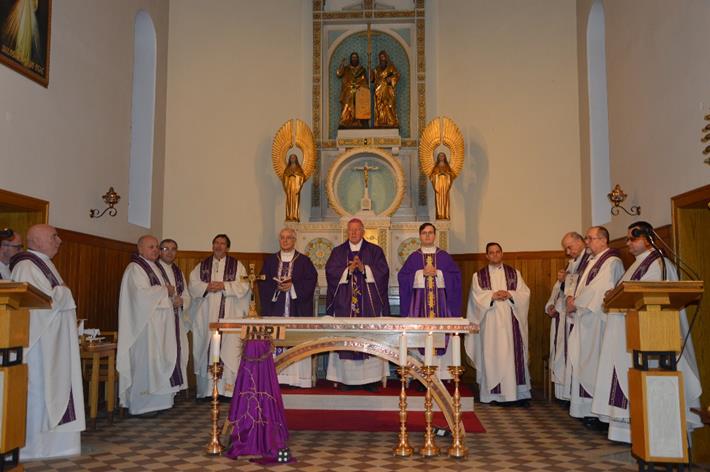 “Ten years after her death, we’re here to remember a great woman», announced the Archbishop of Belgrade, Serbia, Most Rev Stanislav Hočevar while celebrating an anniversary Mass on 14th March. He continued, “At a time when darkness overshadowed the world, a new Light illuminated Chiara’s heart. Even as sin, hatred and evil were creating divisions, Love came close, connecting and unifying, to restore and rebuild. Today, as in those times, surrounded as we are by the chaos of social, cultural and historic conflicts, we too are called to enkindle a new light of understanding, unity and cooperation.” Connecting, coming close, uniting, rebuilding’: these words convey something of the global celebration which began in March and is still ongoing; each event an occasion to recall and relaunch the spiritual legacy of the Focolare founder, Chiara Lubich. «If I was to leave this earth today and you were to ask for my last words, the last word on our Ideal, I would say, sure that you would understand exactly what I mean: Be a family.” Chiara said this back in December 1973, but her words, her legacy, touch hearts today as powerfully as ever, as seen in the news arriving from all over the world of encounters and actions inspired by this anniversary.
“Ten years after her death, we’re here to remember a great woman», announced the Archbishop of Belgrade, Serbia, Most Rev Stanislav Hočevar while celebrating an anniversary Mass on 14th March. He continued, “At a time when darkness overshadowed the world, a new Light illuminated Chiara’s heart. Even as sin, hatred and evil were creating divisions, Love came close, connecting and unifying, to restore and rebuild. Today, as in those times, surrounded as we are by the chaos of social, cultural and historic conflicts, we too are called to enkindle a new light of understanding, unity and cooperation.” Connecting, coming close, uniting, rebuilding’: these words convey something of the global celebration which began in March and is still ongoing; each event an occasion to recall and relaunch the spiritual legacy of the Focolare founder, Chiara Lubich. «If I was to leave this earth today and you were to ask for my last words, the last word on our Ideal, I would say, sure that you would understand exactly what I mean: Be a family.” Chiara said this back in December 1973, but her words, her legacy, touch hearts today as powerfully as ever, as seen in the news arriving from all over the world of encounters and actions inspired by this anniversary. 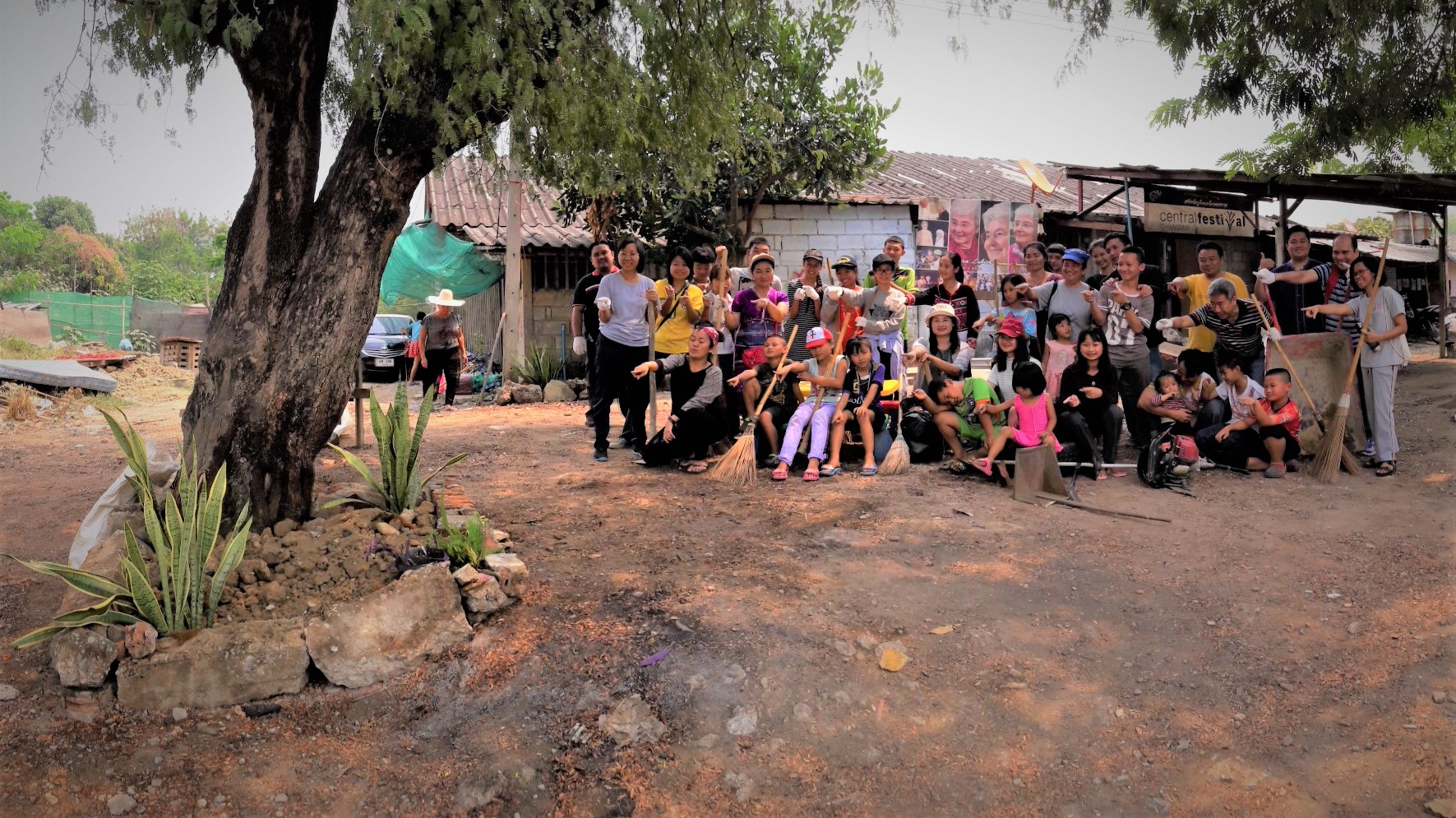 First to the mountainous region of Northern Thailand with its hundreds of elaborately-decorated Buddhist temples, to the city of Chiang Mai. Sixty members of the Focolare community, from five different ethnic groups (Thai, Karen, Akha, Lahu, Kachin), together with others from the Philippines, gathered together to mark the anniversary by offering practical assistance to a rural community in need, the Kachin tribe. As the Focolare members explained, “After celebrating Mass, we set off from the city, adults and children alike, on the 7km journey to a rural village where our friends of the Kachin tribe live in very simple and at times difficult conditions. At their request, we cleared a patch of land and prepared it as a playground for the children. When we had finished transforming that space, we realised that the biggest transformation had actually happened within our hearts and in the relationship among us, as we worked together under the burning sun. In that small place, we experienced the presence of God. We saw how we can work with Him to change the world, one village at a time.”
First to the mountainous region of Northern Thailand with its hundreds of elaborately-decorated Buddhist temples, to the city of Chiang Mai. Sixty members of the Focolare community, from five different ethnic groups (Thai, Karen, Akha, Lahu, Kachin), together with others from the Philippines, gathered together to mark the anniversary by offering practical assistance to a rural community in need, the Kachin tribe. As the Focolare members explained, “After celebrating Mass, we set off from the city, adults and children alike, on the 7km journey to a rural village where our friends of the Kachin tribe live in very simple and at times difficult conditions. At their request, we cleared a patch of land and prepared it as a playground for the children. When we had finished transforming that space, we realised that the biggest transformation had actually happened within our hearts and in the relationship among us, as we worked together under the burning sun. In that small place, we experienced the presence of God. We saw how we can work with Him to change the world, one village at a time.” 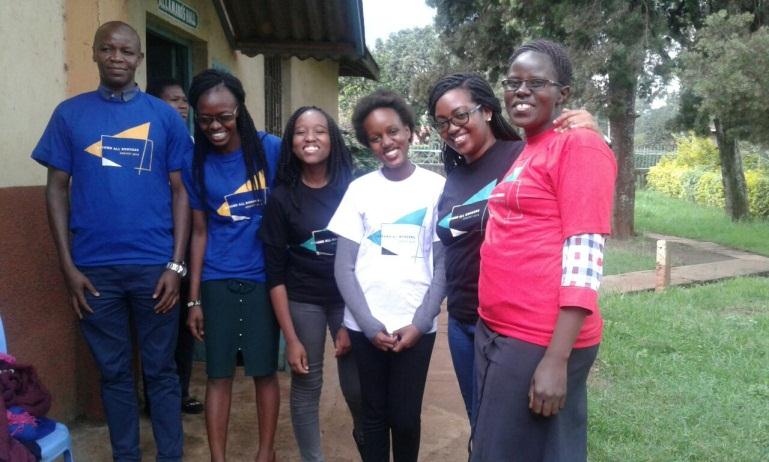 In six regions of Kenya, each in their own way subject to socio-political tensions and at times openly violent conflicts, the local Focolare communities held a series of day meetings proposing a message of unity, more needed than ever to tackle the challenges and difficulties of this multi-ethnic multi-faith nation. Venues included Garissa, eastern Kenya, where tension remains high between Christians and Muslims, Amukura and Seme in the west, Mombassa on the coast, as well as Karatina in the central region and Meru in the North East. “Chiara continues to guide us to this very day,” was the general reaction.
In six regions of Kenya, each in their own way subject to socio-political tensions and at times openly violent conflicts, the local Focolare communities held a series of day meetings proposing a message of unity, more needed than ever to tackle the challenges and difficulties of this multi-ethnic multi-faith nation. Venues included Garissa, eastern Kenya, where tension remains high between Christians and Muslims, Amukura and Seme in the west, Mombassa on the coast, as well as Karatina in the central region and Meru in the North East. “Chiara continues to guide us to this very day,” was the general reaction. 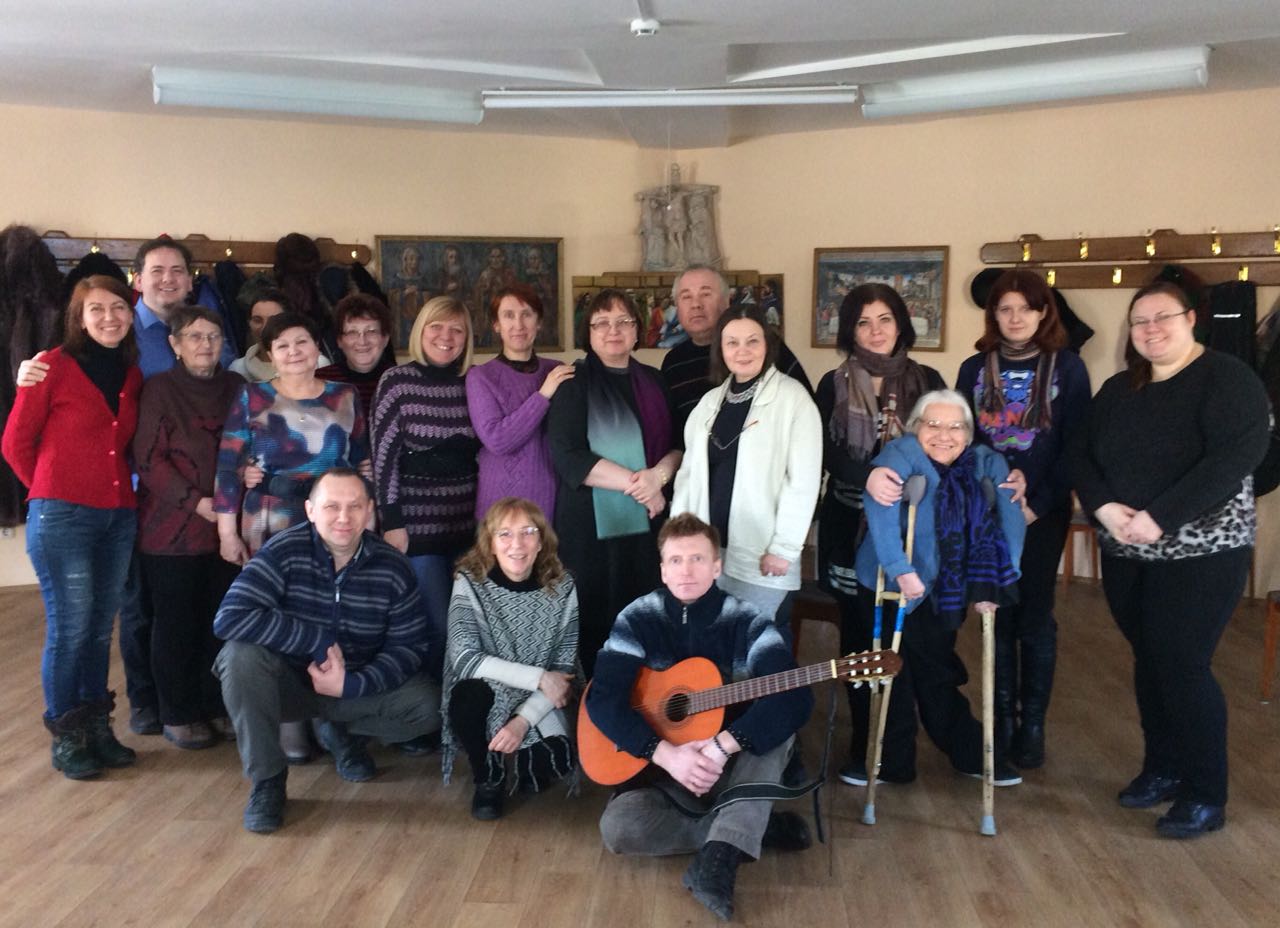 The presence and participation of religious leaders and Church representatives in numerous events was appreciated around the world. In Warsaw, Poland, the head of the Methodist Church sent a warmly-received message, and the Papal Nuncio conveyed greetings from Pope Francis. In Russia, a gathering in Moscow recalled with renewed joy the pioneering era of the 1970s when the first Focolarini arrived in the then Soviet Union. Nearly 2,000km away on the eastern slopes of the Ural Mountains, a Focolare community met in Chelyabinsk. While 4,000km from Moscow, in Central Siberia, a 3-day “Mariapolis” at Krasnojarsk also reflected Chiara’s call to be “a family”. Chiara Lubich’s “legacy” rang out loud and clear in Dublin, Ireland, the city preparing to host the forthcoming World Meeting of Families in August. Particularly moving were testimonies of care and support between the generations inspired by Chiara’s life and words. In Stockholm, Sweden, a group of young people prepared an abundant supper for the whole Focolare community. Over the meal, the conversation revealed the lasting effects of the spirituality of unity in each person’s life. Yet another characteristically “family” celebration. Chiara Favotti
The presence and participation of religious leaders and Church representatives in numerous events was appreciated around the world. In Warsaw, Poland, the head of the Methodist Church sent a warmly-received message, and the Papal Nuncio conveyed greetings from Pope Francis. In Russia, a gathering in Moscow recalled with renewed joy the pioneering era of the 1970s when the first Focolarini arrived in the then Soviet Union. Nearly 2,000km away on the eastern slopes of the Ural Mountains, a Focolare community met in Chelyabinsk. While 4,000km from Moscow, in Central Siberia, a 3-day “Mariapolis” at Krasnojarsk also reflected Chiara’s call to be “a family”. Chiara Lubich’s “legacy” rang out loud and clear in Dublin, Ireland, the city preparing to host the forthcoming World Meeting of Families in August. Particularly moving were testimonies of care and support between the generations inspired by Chiara’s life and words. In Stockholm, Sweden, a group of young people prepared an abundant supper for the whole Focolare community. Over the meal, the conversation revealed the lasting effects of the spirituality of unity in each person’s life. Yet another characteristically “family” celebration. Chiara Favotti
![For a global civilisation of alliance]()
Apr 23, 2018 | Focolare Worldwide
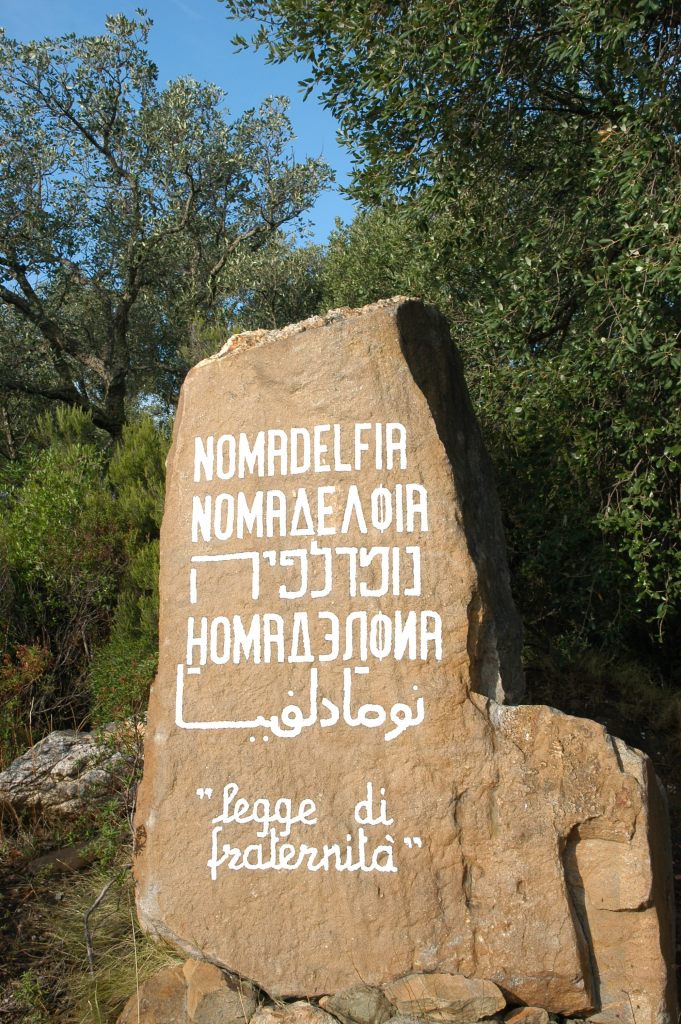
Copyright © 2018 Nomadelfia
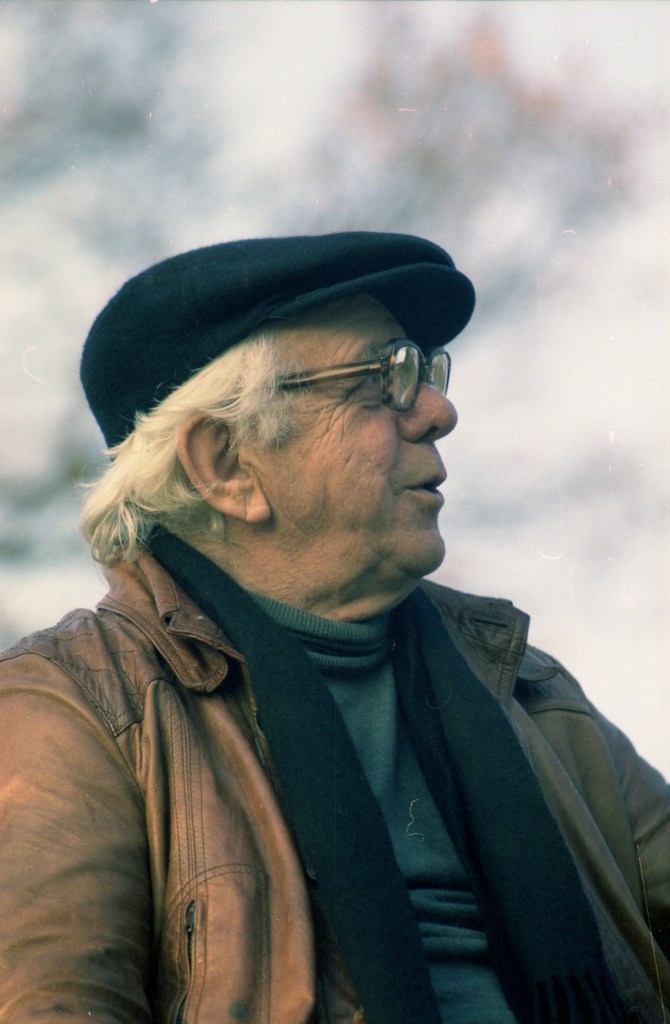
Fr. Zeno Saltini. Foto © 2018 Nomadelfia

22 April 2018: Official visit to the international centre of the Focolare Movement in Rocca di Papa (Rome). ©CSC Audiovisivi
Apr 21, 2018 | Non categorizzato
Earth Day is celebrated yearly, the day after the spring equinox. It is the biggest environmental manifestation of the planet, promoted by the United Nations to encourage the protection of the Earth. The idea of creating an “Earth Day” was discussed for the first time in 1962, and finally took form in 1969, following the environmental disaster caused by the seepage of oil from a well in the open sea of Santa Barbara, California. In the last editions, the Day involved up to a billion people in 192 countries in the world, and became a planetary, educational and informative event on themes of pollution, desertification, destruction of the ecosystems, and the depletion of nonrenewable resources. But also included is individual responsibility towards sustainable consumption, as inspired by the idea of the “Common home” of mankind.
Apr 21, 2018 | Non categorizzato
“We are not victims of chance or swept up in a series of unconnected events; on the contrary, our life and our presence in this world are the fruit of a divine vocation!” This is what Pope Francis reminds us of in the very first words of his message for the 55th World Day of Prayer for Vocations, which is addressed in a special way to young people. The Day of Prayer is scheduled for April 22, and its theme will be: “Listen, discern and live the Lord’s call.” The relationship between young people, faith and vocations will also be central to the upcoming synod in October. “On that occasion,” the Pope observed, “we’ll have an opportunity to see how at the centre of life there is a call to happiness that God extends to us.” The young people and youths of the Focolare were reminded of Chiara Lubich’s words, which she spoke to them in 1998: “God calls to a variety of different paths: He calls to a variety of missions and tasks; for example, he calls young men to the priesthood, to be another Christ; he calls men and women to all those colourful flowerbeds that are the Religious Families in the Church; he calls men and women to the modern ecclesial movements, to consecrate themselves to God both individually and communitarily, or to start families that are actually many little churches. And remember: God calls at all ages; he also calls teenagers and children. He calls everywhere on earth.”
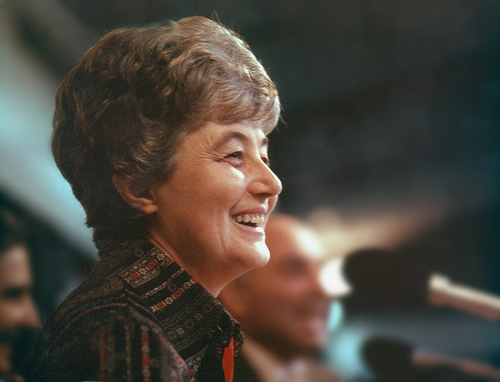
Apr 21, 2018 | Non categorizzato
 We must not cease praying for peace to return. … In this moment, we should all feel called to follow determinedly a life style which corrects, at least within us (and through the communion of saints in many others) the mistake that has been made. Human beings have not done the will of God, the will of the God of peace. They did their own will. We must do all we can, as never before, to carry out God’s will perfectly. “Not my will but yours be done”. Today these words of Jesus acquire an altogether special importance for us. Compared to His word, everything else must become secondary. We shouldn’t give much importance in our lives to being healthy or sick, to studying or serving, to sleeping or praying, to living or dying. What matters is to make his will our own, to be his will lived out. This is how we lived at the beginning of our Movement when, in the setting of another war, the Spirit gave us the light to understand the true value of things. Faced with the destruction caused by hatred, God revealed himself as the one ideal that does not pass, that no bomb could destroy. God Love. This was the great discovery, a spiritual bomb of such power that it made us literally forget all the bombs falling around us in the war. We discovered that above and beyond everyone and everything there is God who is love. There is his providence which makes all things work together for the good of those who love him. We discovered the signs of his love in each circumstance, even under the lash of suffering. He loved us immensely. How could we love him in return? “It is not the one who says Lord, Lord, who loves me, but the one who does my will.” We could love God by doing his will. Living like this we got used to listening ever more attentively to “the voice” within us, the voice of our conscience which emphasized the will of God expressed in different ways: through his Word, in the duties of our state in life, through circumstances and inspirations. We were certain that God would draw us into a divine adventure, at first unknown, where, as both spectators and actors in his design of love, we could give the contribution of our own free will, moment by moment. A short while later he let us perceive something of our future, helping us see clearly the purpose for which the Movement was coming about: to fulfill Jesus’ prayer in his testament, “Father, may they all be one”, working together to achieve a more united world. We can live like this now too. Have we experienced an abrupt and painful change? … Are we at times fearful and anguished, even wondering whether we are going to be killed? Or are we living life as usual, with all our daily tasks, far from any danger? For all of us what matters is what has most value: not one thing or another, but God’s will. Let’s seek to ‘listen’ putting his will in the first place in our heart, our memory, our mind. Let’s put, before all else, all our strength at his service. … In this way, Christ will remain in our hearts and we will be more together, more united, more ‘one’, sharing everything, praying powerfully for one another and for peace to return.”
We must not cease praying for peace to return. … In this moment, we should all feel called to follow determinedly a life style which corrects, at least within us (and through the communion of saints in many others) the mistake that has been made. Human beings have not done the will of God, the will of the God of peace. They did their own will. We must do all we can, as never before, to carry out God’s will perfectly. “Not my will but yours be done”. Today these words of Jesus acquire an altogether special importance for us. Compared to His word, everything else must become secondary. We shouldn’t give much importance in our lives to being healthy or sick, to studying or serving, to sleeping or praying, to living or dying. What matters is to make his will our own, to be his will lived out. This is how we lived at the beginning of our Movement when, in the setting of another war, the Spirit gave us the light to understand the true value of things. Faced with the destruction caused by hatred, God revealed himself as the one ideal that does not pass, that no bomb could destroy. God Love. This was the great discovery, a spiritual bomb of such power that it made us literally forget all the bombs falling around us in the war. We discovered that above and beyond everyone and everything there is God who is love. There is his providence which makes all things work together for the good of those who love him. We discovered the signs of his love in each circumstance, even under the lash of suffering. He loved us immensely. How could we love him in return? “It is not the one who says Lord, Lord, who loves me, but the one who does my will.” We could love God by doing his will. Living like this we got used to listening ever more attentively to “the voice” within us, the voice of our conscience which emphasized the will of God expressed in different ways: through his Word, in the duties of our state in life, through circumstances and inspirations. We were certain that God would draw us into a divine adventure, at first unknown, where, as both spectators and actors in his design of love, we could give the contribution of our own free will, moment by moment. A short while later he let us perceive something of our future, helping us see clearly the purpose for which the Movement was coming about: to fulfill Jesus’ prayer in his testament, “Father, may they all be one”, working together to achieve a more united world. We can live like this now too. Have we experienced an abrupt and painful change? … Are we at times fearful and anguished, even wondering whether we are going to be killed? Or are we living life as usual, with all our daily tasks, far from any danger? For all of us what matters is what has most value: not one thing or another, but God’s will. Let’s seek to ‘listen’ putting his will in the first place in our heart, our memory, our mind. Let’s put, before all else, all our strength at his service. … In this way, Christ will remain in our hearts and we will be more together, more united, more ‘one’, sharing everything, praying powerfully for one another and for peace to return.”
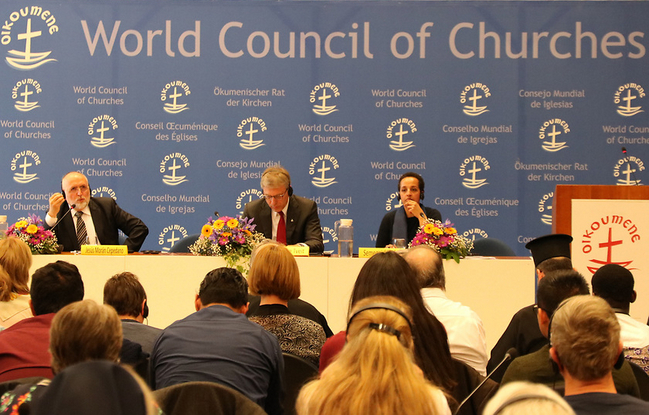
Apr 20, 2018 | Non categorizzato
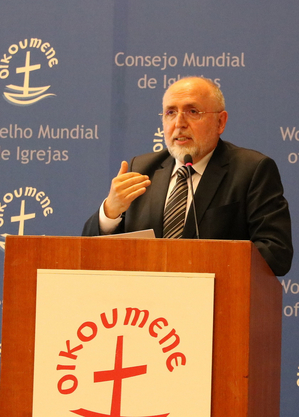
Jesús Morán. Photo © 2018 World Council of Churches
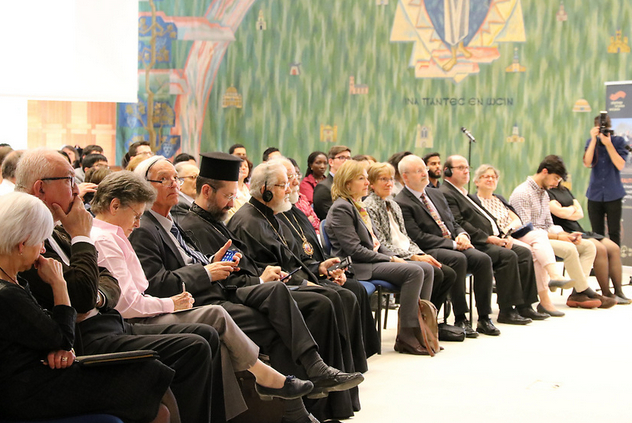 Secondly, «in dialogue, each person is made complete by the gift of the other. We need each other in order fully to be ourselves. In dialogue, I make a gift of my ‘otherness’, of my being different to the other person». Indeed, «every occasion of dialogue is a personal encounter. Hence, it’s not so much about words or thoughts, but rather a matter of giving our very being. Dialogue is not simply ‘conversation’, even less ‘discussion’, but rather it’s something which touches at the very heart of those involved». «Dialogue requires silence and the ability to listen», he continues. It is «an existential factor, because (in dialogue) we put at risk our very selves, our vision of things, our own ‘identity’, our cultural identity and even our ecclesial identity. Yet none of these, in fact, is lost but rather enriched by such openness». «Authentic dialogue deals in truth. It always goes more deeply into the truth. […] Everyone who participates puts in common with the others their own participation in the truth, which is one for everybody». Such dialogue, continues Dr Morán, requires great strength of will, what Chiara Lubich referred to as “making yourself one, as deeply as possible”. «The sublime and mysterious model of this dynamic of love is, as we know, Jesus Forsaken. He truly represents the risk of ‘otherness’ which brings us to reciprocity. […] His ‘losing’ won for us – and in us – an eternal space of light and Truth: the Holy Spirit». Another point to note is that «dialogue is only possible among real and true people» in accordance with a particular law, the law of reciprocity which confers legitimacy and meaning.
Secondly, «in dialogue, each person is made complete by the gift of the other. We need each other in order fully to be ourselves. In dialogue, I make a gift of my ‘otherness’, of my being different to the other person». Indeed, «every occasion of dialogue is a personal encounter. Hence, it’s not so much about words or thoughts, but rather a matter of giving our very being. Dialogue is not simply ‘conversation’, even less ‘discussion’, but rather it’s something which touches at the very heart of those involved». «Dialogue requires silence and the ability to listen», he continues. It is «an existential factor, because (in dialogue) we put at risk our very selves, our vision of things, our own ‘identity’, our cultural identity and even our ecclesial identity. Yet none of these, in fact, is lost but rather enriched by such openness». «Authentic dialogue deals in truth. It always goes more deeply into the truth. […] Everyone who participates puts in common with the others their own participation in the truth, which is one for everybody». Such dialogue, continues Dr Morán, requires great strength of will, what Chiara Lubich referred to as “making yourself one, as deeply as possible”. «The sublime and mysterious model of this dynamic of love is, as we know, Jesus Forsaken. He truly represents the risk of ‘otherness’ which brings us to reciprocity. […] His ‘losing’ won for us – and in us – an eternal space of light and Truth: the Holy Spirit». Another point to note is that «dialogue is only possible among real and true people» in accordance with a particular law, the law of reciprocity which confers legitimacy and meaning.  Jesús Morán goes on to outline a further aspect, one that characterizes the Focolare’s contribution to progress towards Christian unity, namely “the dialogue of life”. This encourages «relationships to be based on the Gospel, on the exchange of experiences, on sharing what is most precious with brothers and sisters of another Church». He quoted Catholic theologian Cardinal Walter Kasper, President Emeritus of the Pontifical Council for Promoting Christian Unity: “Ecumenism of love and ecumenism of truth, important as they are, must be implemented by means of an ecumenism of life”. Dr Morán observes, «we must recognise that this dimension – vital to dialogue – is not devoid of theological thought. Rather, it is situated on a more primal, deeply rooted level of it. Only through this dimension, in fact, can one then gain access in a truly beneficial way to the level of theological reasoning». «Dialogue – concludes Dr Morán – is the ‘rhythm’ of trinitarian relationships, a continual exchange of roles and of gifts. […] Nothing gets lost. Dialogue’s risk contains all of ourselves and all of the other, in the transcendent ‘space’ of the Holy Spirit which we all share. This includes the whole of humanity. Those who dialogue are making history». Photo gallery: https://oikoumene.photoshelter.com/galleries
Jesús Morán goes on to outline a further aspect, one that characterizes the Focolare’s contribution to progress towards Christian unity, namely “the dialogue of life”. This encourages «relationships to be based on the Gospel, on the exchange of experiences, on sharing what is most precious with brothers and sisters of another Church». He quoted Catholic theologian Cardinal Walter Kasper, President Emeritus of the Pontifical Council for Promoting Christian Unity: “Ecumenism of love and ecumenism of truth, important as they are, must be implemented by means of an ecumenism of life”. Dr Morán observes, «we must recognise that this dimension – vital to dialogue – is not devoid of theological thought. Rather, it is situated on a more primal, deeply rooted level of it. Only through this dimension, in fact, can one then gain access in a truly beneficial way to the level of theological reasoning». «Dialogue – concludes Dr Morán – is the ‘rhythm’ of trinitarian relationships, a continual exchange of roles and of gifts. […] Nothing gets lost. Dialogue’s risk contains all of ourselves and all of the other, in the transcendent ‘space’ of the Holy Spirit which we all share. This includes the whole of humanity. Those who dialogue are making history». Photo gallery: https://oikoumene.photoshelter.com/galleries
Apr 20, 2018 | Non categorizzato
On 16 April, the Sophia University Institute welcomed the fifth edition of the Wings of Unity dialogue and collaboration project, which involves teachers and experts from the Christian and Muslim community.The promoters of this project, in addition to Sophia University, are the Islamic Centre of England (London) and the Risalat International Institute (Qum). Through the initiative, co-directed by Piero Coda and Mohammad Shomali, several innovative ideas have been developed in the context of interreligious dialogue through seminars, public conferences, summer schools and publications. The day of study took place in the broader context from 15 to 18 April, in Loppiano, where Sophia University Institute is located. During these days the group of Muslim friends had the opportunity to discover more in depth the roots of the original multi-cultural co-existence born from the charism of Chiara Lubich. https://vimeo.com/265783668
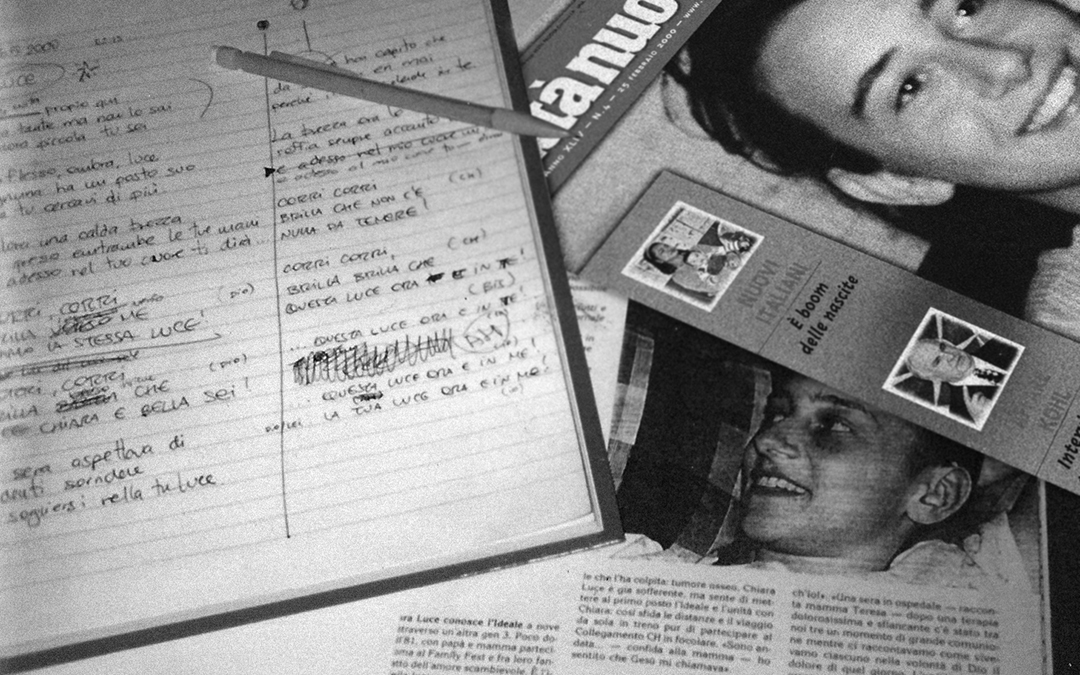
Apr 19, 2018 | Focolare Worldwide
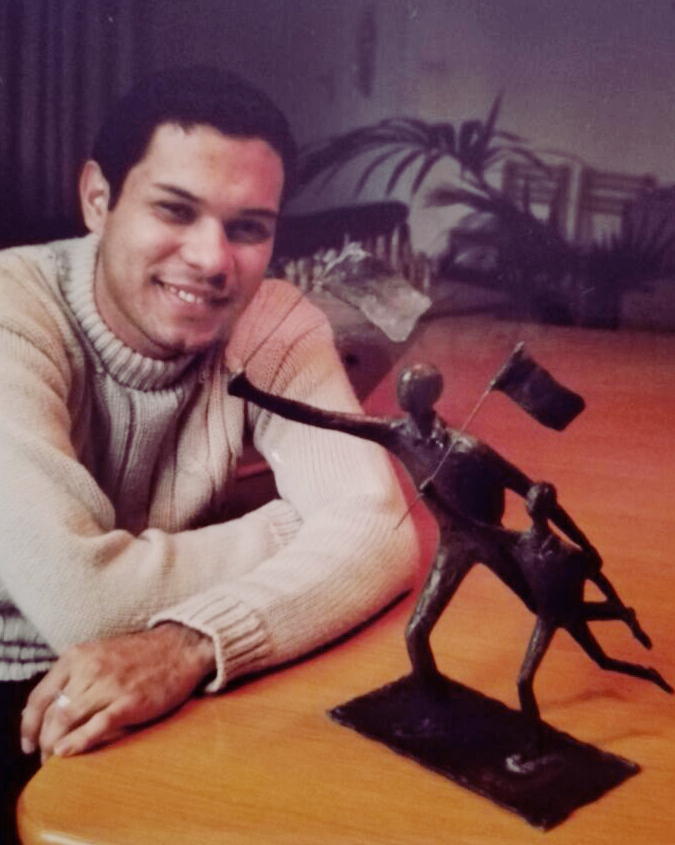 “Eighteen years have passed but the effect of that event still moves all of us who were there. I arrived in Rome on December 1999, a few months before. For me it was the start of a new period during which I worked as a graphic technician at the international Gen Centre, in preparation for the Genfest. I would never have imagined what surprises were in store for me that year! One day in February while I was strumming on my guitar, I thought of Chiara “Luce” Badano, a gen like us, who died 10 years earlier, and in her last moments of life had offered her pain for the success of the Genfest. I still can’t explain how I got the inspiration to compose a song dedicated precisely to her: “Run, run, tell me there’s nothing to fear. Run, run, shine, shine since your light is now in me.” I couldn’t but entitle the song: “Luz”, light. The next day in Loppiano, there was a series of meetings with the group in charge of the music. We had to choose four official songs for the Genfest. A bit nervous, I proposed also that song, and sang it in front of everyone. “Light” was chosen and since then, up to this day, it has been translated into various languages, and has become the symbol of an experience which many young people have made their own, following the example of Chiara Badano, who in 2010 had been proclaimed blessed. After some time her parents, Maria Teresa and Ruggero, upon hugging me said, “You found the best way to make her known, since one who sings, prays twice!”
“Eighteen years have passed but the effect of that event still moves all of us who were there. I arrived in Rome on December 1999, a few months before. For me it was the start of a new period during which I worked as a graphic technician at the international Gen Centre, in preparation for the Genfest. I would never have imagined what surprises were in store for me that year! One day in February while I was strumming on my guitar, I thought of Chiara “Luce” Badano, a gen like us, who died 10 years earlier, and in her last moments of life had offered her pain for the success of the Genfest. I still can’t explain how I got the inspiration to compose a song dedicated precisely to her: “Run, run, tell me there’s nothing to fear. Run, run, shine, shine since your light is now in me.” I couldn’t but entitle the song: “Luz”, light. The next day in Loppiano, there was a series of meetings with the group in charge of the music. We had to choose four official songs for the Genfest. A bit nervous, I proposed also that song, and sang it in front of everyone. “Light” was chosen and since then, up to this day, it has been translated into various languages, and has become the symbol of an experience which many young people have made their own, following the example of Chiara Badano, who in 2010 had been proclaimed blessed. After some time her parents, Maria Teresa and Ruggero, upon hugging me said, “You found the best way to make her known, since one who sings, prays twice!” 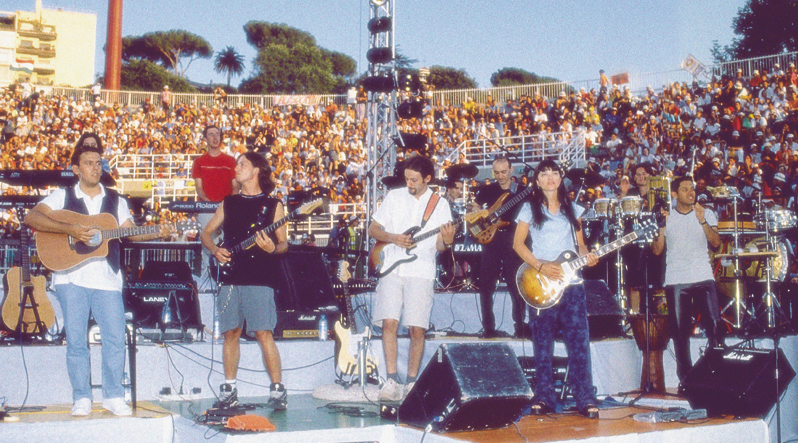 That Genfest, the first organized entirely by us youth, was a real challenge, an experience of maturity and unity among us. When the time came to choose a logo, I proposed the motion of a wave which would continue through time. And another gift was that also that logo was chosen! All was ready on 17 August. Early that morning we were already onstage for the sound check and the last details. Before the start, 25,000 people were queueing to enter the Stadium. Three, two, one… with a percussion of various rhythms and a subtle and unceasing sound, like a heartbeat, finally what we had prepared for months began. It was a varied programme to demonstrate to the youth worldwide that unity is possible. At around 6.30 pm it was my turn, with a song I had composed in Costa Rica four years earlier (“A smile is enough”).
That Genfest, the first organized entirely by us youth, was a real challenge, an experience of maturity and unity among us. When the time came to choose a logo, I proposed the motion of a wave which would continue through time. And another gift was that also that logo was chosen! All was ready on 17 August. Early that morning we were already onstage for the sound check and the last details. Before the start, 25,000 people were queueing to enter the Stadium. Three, two, one… with a percussion of various rhythms and a subtle and unceasing sound, like a heartbeat, finally what we had prepared for months began. It was a varied programme to demonstrate to the youth worldwide that unity is possible. At around 6.30 pm it was my turn, with a song I had composed in Costa Rica four years earlier (“A smile is enough”).  The story of Chiara “Luce” Badano was presented as an example of holiness at the mere age of 18, while images of her luminous and smiling face was projected on the big screen, creating an absolute silence in the audience. We seemed to be living a moment of eternity. Immediately after, the first chords of “Luz” resounded. Lastly, the most expected moment was the proposal of Chiara Lubich: “The idea of a more united world, for which many young people are battling, will not be just a utopia, but will become with time, an immense reality. And the future is above all in your hands.” Then came the launching of “Project Africa.” But it didn’t end there. We still were waiting for the big meeting of the World Youth Day with John Paul II, on 19 and 20 August in the nearby field of Tor Vergata. It was another historical day with two million young people, despite the heat of the day and cold of the night which didn’t wipe out their joy of being together. Also unforgettable was the Pope’s exhortation: “Do not be afraid of being the saints of the Third Millennium.” Before returning to Costa Rica, in December that year I had the chance to greet Chiara Lubich in person and give her a memoir of that magical experience lived that year: a tiny booklet. But the gifts didn’t end there for me: after many years I met Tina, an Austrian girl, who like me had participated in that Genfest. She has now become my wife!”.
The story of Chiara “Luce” Badano was presented as an example of holiness at the mere age of 18, while images of her luminous and smiling face was projected on the big screen, creating an absolute silence in the audience. We seemed to be living a moment of eternity. Immediately after, the first chords of “Luz” resounded. Lastly, the most expected moment was the proposal of Chiara Lubich: “The idea of a more united world, for which many young people are battling, will not be just a utopia, but will become with time, an immense reality. And the future is above all in your hands.” Then came the launching of “Project Africa.” But it didn’t end there. We still were waiting for the big meeting of the World Youth Day with John Paul II, on 19 and 20 August in the nearby field of Tor Vergata. It was another historical day with two million young people, despite the heat of the day and cold of the night which didn’t wipe out their joy of being together. Also unforgettable was the Pope’s exhortation: “Do not be afraid of being the saints of the Third Millennium.” Before returning to Costa Rica, in December that year I had the chance to greet Chiara Lubich in person and give her a memoir of that magical experience lived that year: a tiny booklet. But the gifts didn’t end there for me: after many years I met Tina, an Austrian girl, who like me had participated in that Genfest. She has now become my wife!”.
Sandro Rojas Badilla
Listen to: “Basta un sorriso” Listen to: “Luz” Photo: Sandro Rojas Badilla
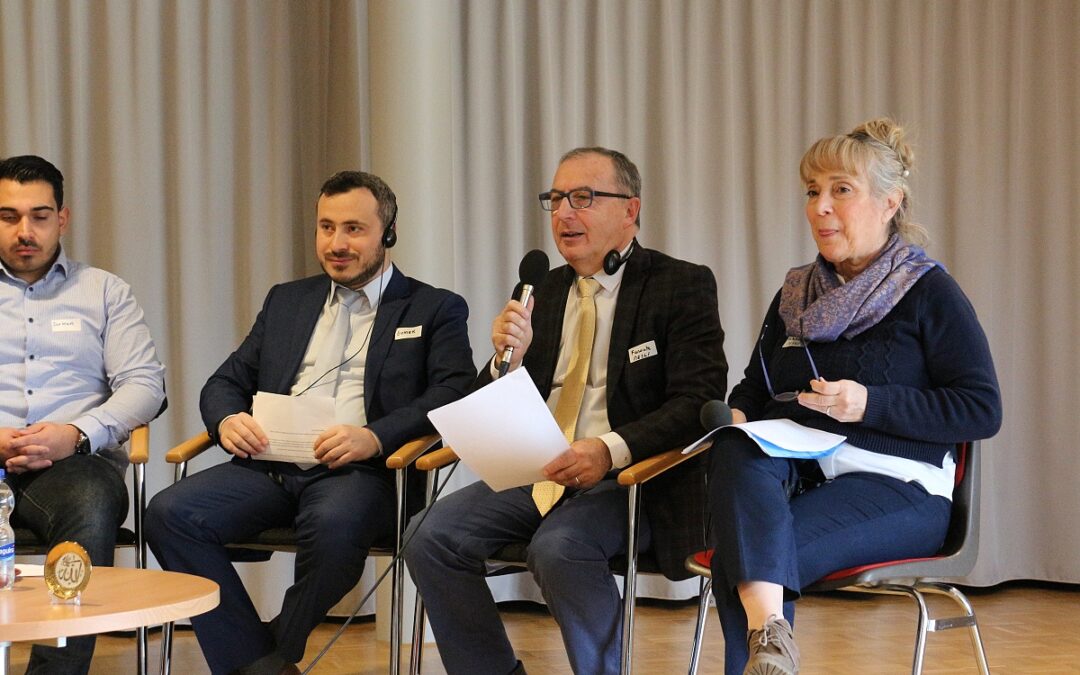
Apr 19, 2018 | Non categorizzato
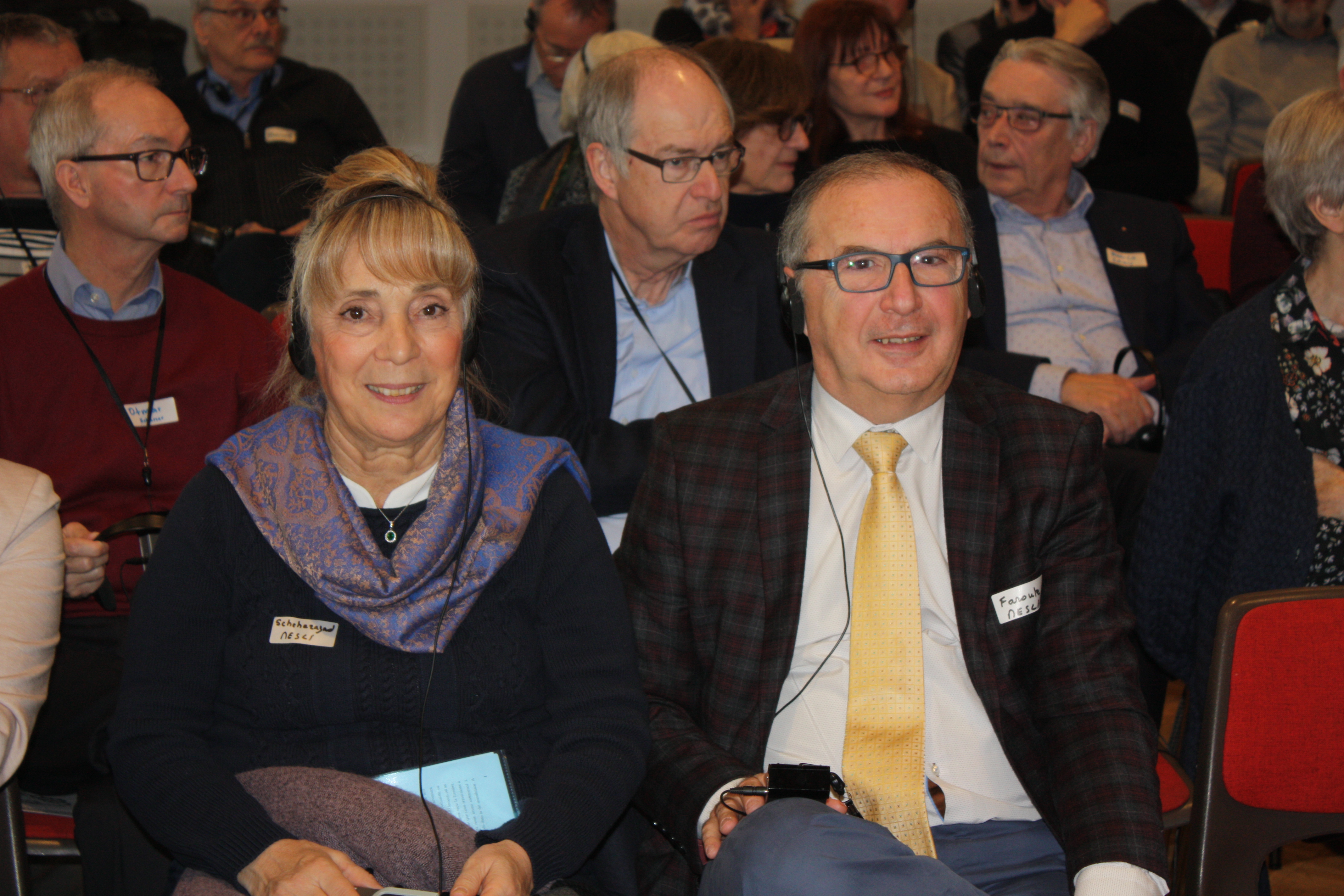 “We were born in two traditionally conservative families from Tlemcen, an ancient city, the cradle of Arab-Muslim culture,” says Farouk. “We’ve been married 42 years, have three children and two grandchildren. “During the first year we were married, like many couples, we discovered that we had very different personalities, and this caused friction between us. “Meeting the Focolare Movement helped us understand that we needed to start on the path to true love. This experience showered us with God’s love and helped us take early steps toward each other. We really wanted to learn all about the spirituality of unity deeply, to the point that our lives began to be between Orano, where we live, and Tlemcen, where the Focolare center is. “We started sharing our Muslim faith and understanding how to embody the spirituality of unity within our beliefs. A small community took shape around us at Orano, where our house became a gathering place, a “beacon,” as Chiara Lubich herself named it. “Many Muslims met the Focolare, and we started to share more and more, nourished and enriched by a supernatural love. In the early 1990s, the guerilla war in our country reminded us of the similar circumstances when the movement was born, and that same discovery of God as the ideal of our lives.”
“We were born in two traditionally conservative families from Tlemcen, an ancient city, the cradle of Arab-Muslim culture,” says Farouk. “We’ve been married 42 years, have three children and two grandchildren. “During the first year we were married, like many couples, we discovered that we had very different personalities, and this caused friction between us. “Meeting the Focolare Movement helped us understand that we needed to start on the path to true love. This experience showered us with God’s love and helped us take early steps toward each other. We really wanted to learn all about the spirituality of unity deeply, to the point that our lives began to be between Orano, where we live, and Tlemcen, where the Focolare center is. “We started sharing our Muslim faith and understanding how to embody the spirituality of unity within our beliefs. A small community took shape around us at Orano, where our house became a gathering place, a “beacon,” as Chiara Lubich herself named it. “Many Muslims met the Focolare, and we started to share more and more, nourished and enriched by a supernatural love. In the early 1990s, the guerilla war in our country reminded us of the similar circumstances when the movement was born, and that same discovery of God as the ideal of our lives.” 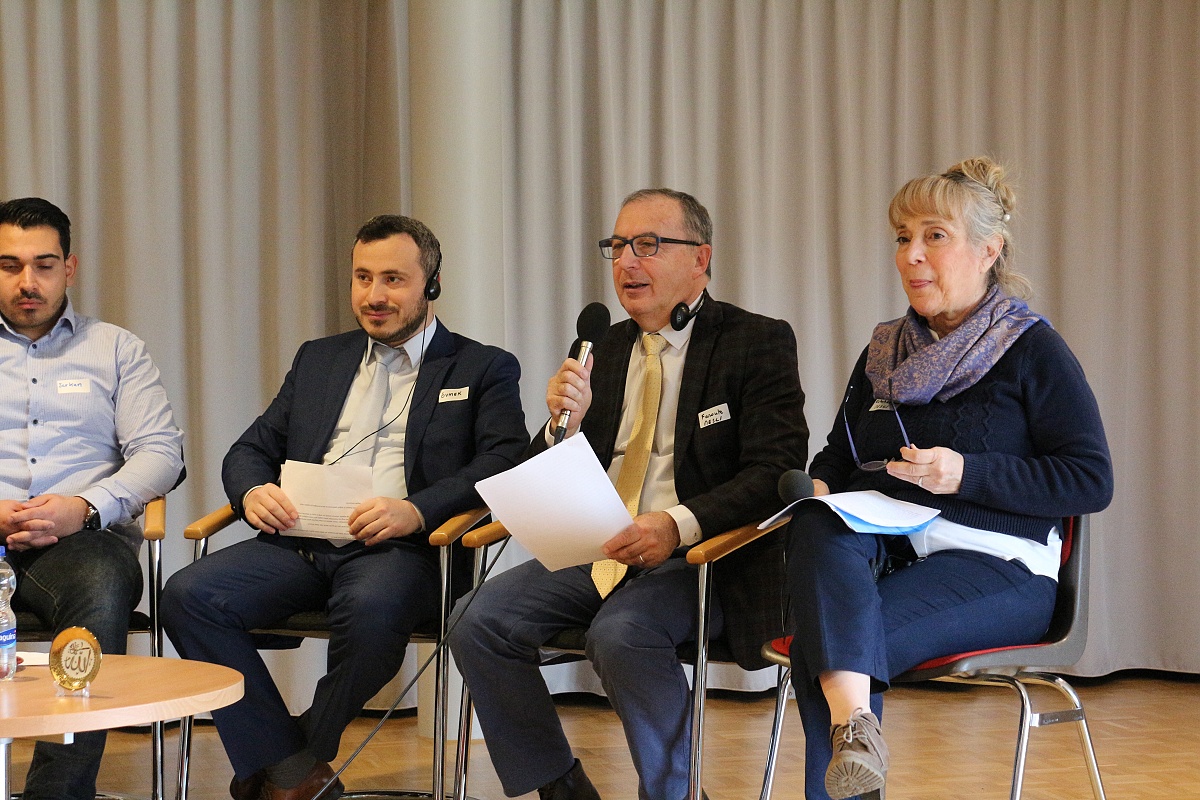 Schéhérazad continues: “We went through a pretty turbulent stage when our children were teens. We tried to debate and dialogue with them, but above all, love them. We can now say that with the two eldest we were able to create a relationship based on sincerity. “In the Focolare community I heard experiences about the love of God. Little by little I learned to trust faithfully in God, in his mercy. “Taking up this spiritual path freed me from my ego and fear in my relationships with people. The commitment to put God in the first place in our lives is certainly personal, but we chose to live it as a family. “Realizing one’s own limits and those of the other is a never-ending exercise. We need to constantly begin again, ask for forgiveness and start again.” “In Islam,” explains Farouk, “prayer is a solemn moment. Our prayers didn’t used to be that regular before, and each of us prayed alone. Now we try to pray together, out of love, not obligation. “In Algeria there are many sub-Saharan young people who come to study. Some come to the Focolare. We try to meet their needs, since they often don’t feel integrated socially. “One of these young people, who is Christian, lived with us for a year and a half. We built a relationship so profound that he considered us his second parents. We often gave him our car so he could go to Mass.” “In the Focolare community,” says Schéhérazad, “there is a sincere exchange, with out any misunderstandings about faith. Any introduction is done with respect for everyone, with love that has no agenda, with no intent to convert the other, but instead to help them be more authentically themselves. “When we meet a Christian, for us it is natural to see him as a brother to love. We are not made to compete, but to work on a common project. Building unity cannot be taken for granted; it is a commitment that needs to be constantly renewed. “Together, Muslims and Christians, we can go toward the unifying One. In our life, thanks to Chiara Lubich, we have understood that this unifying One can be reached when at least two of us love each other, ready to give our lives for each other.”
Schéhérazad continues: “We went through a pretty turbulent stage when our children were teens. We tried to debate and dialogue with them, but above all, love them. We can now say that with the two eldest we were able to create a relationship based on sincerity. “In the Focolare community I heard experiences about the love of God. Little by little I learned to trust faithfully in God, in his mercy. “Taking up this spiritual path freed me from my ego and fear in my relationships with people. The commitment to put God in the first place in our lives is certainly personal, but we chose to live it as a family. “Realizing one’s own limits and those of the other is a never-ending exercise. We need to constantly begin again, ask for forgiveness and start again.” “In Islam,” explains Farouk, “prayer is a solemn moment. Our prayers didn’t used to be that regular before, and each of us prayed alone. Now we try to pray together, out of love, not obligation. “In Algeria there are many sub-Saharan young people who come to study. Some come to the Focolare. We try to meet their needs, since they often don’t feel integrated socially. “One of these young people, who is Christian, lived with us for a year and a half. We built a relationship so profound that he considered us his second parents. We often gave him our car so he could go to Mass.” “In the Focolare community,” says Schéhérazad, “there is a sincere exchange, with out any misunderstandings about faith. Any introduction is done with respect for everyone, with love that has no agenda, with no intent to convert the other, but instead to help them be more authentically themselves. “When we meet a Christian, for us it is natural to see him as a brother to love. We are not made to compete, but to work on a common project. Building unity cannot be taken for granted; it is a commitment that needs to be constantly renewed. “Together, Muslims and Christians, we can go toward the unifying One. In our life, thanks to Chiara Lubich, we have understood that this unifying One can be reached when at least two of us love each other, ready to give our lives for each other.”
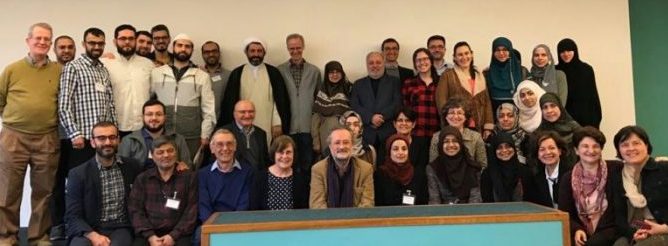
Apr 18, 2018 | Non categorizzato
 It will be discussed on Saturday, April 21, from 16 to 19 pm, within the wider context of a conference promoted by the Focolare Movement. The title of this event is“Together as a sign of hope. Christians and Muslims journeying together in the light of the charism of unity” and it will take place at the Mariapolis Centre in Castel Gandolfo, Rome from the 19 to 22 April. About 600 Christians and Muslims are expected to attend. In a social context, particularly in the western world, marked by fear, prejudice and distrust that build barriers and by ideas that nourish clashes and divisions, witness of a shared commitment between Christians and Muslims, launches a message that goes against the current and sows seeds of hope. These Christians and Muslims unit for peace, solidarity, development and harmony among peoples of different faiths, cultures and traditions. It is possible to live together in harmony, respect, solidarity and peace. It is also possible to work together, share common objectives and cooperate to achieve them, without weakening one’s identity and heritage of values, while exercising a fair and frank confrontation that strengthens mutual understanding and respect, and giving preference to that which unites over that which divides. The driving force of this journey is the charism of unity of Chiara Lubich. On May 18, 1997, in her speech at the Malcolm X Mosque in Harlem, where she made a pact to work for unity and peace together with Imam Wallace Deen Mohammed and the Muslim community present, she said: “Here I have experienced profound fraternity. Its beauty is so remarkable that it can only be God’s work. He has really made us one family for his plans”. While speaking about the underlying principle of this journey of communion, she explained: “The so-called Golden Rule – ‘Do not do to others as you would not have them do to you’ – is common to almost all religions, even if with different versions. This Golden Rule is enough to guarantee our bond of love with each neighbour, and this love would be enough to make humanity become one family”. In the wake of that experience and of initiatives launched in various countries to promote Islamic-Christian dialogue, the coming event at Castelgandolfo aims at being a step foward in the journey towards universal brotherhood and a sign of hope for humanity. “Religious education is attention to peace” says Adnane Mokrani, a professor at the Pontifical Gregorian University and at the Pontifical Institute for Arabic and Islamic Studies (PISAI) and president of Cipax, who will be present at the conference. “With such an approach, there would be no divisions, but there would be solidarity, collaboration, unity among people of different faiths, called to work together for the common good of humanity and to serve everyone without any distinction”. Maria Voce, President of the Focolare Movement, Cardinal Jean-Louis Pierre Tauran, President of the Pontifical Council for Interreligious Dialogue, Abdullah el Radwan, Head of the Islamic Cultural Centre of Italy, Izzedin Elzir, Imam of Florence and president of UCOII, Piero Coda, Dean of the Sophia University Institute and Mohammad Shomali, director of the London Islamic Centre will be among the speakers during this open gathering. Numerous experiences of dialogue and fruitful collaboration will be shared as fragments of unity to be multiplied.
It will be discussed on Saturday, April 21, from 16 to 19 pm, within the wider context of a conference promoted by the Focolare Movement. The title of this event is“Together as a sign of hope. Christians and Muslims journeying together in the light of the charism of unity” and it will take place at the Mariapolis Centre in Castel Gandolfo, Rome from the 19 to 22 April. About 600 Christians and Muslims are expected to attend. In a social context, particularly in the western world, marked by fear, prejudice and distrust that build barriers and by ideas that nourish clashes and divisions, witness of a shared commitment between Christians and Muslims, launches a message that goes against the current and sows seeds of hope. These Christians and Muslims unit for peace, solidarity, development and harmony among peoples of different faiths, cultures and traditions. It is possible to live together in harmony, respect, solidarity and peace. It is also possible to work together, share common objectives and cooperate to achieve them, without weakening one’s identity and heritage of values, while exercising a fair and frank confrontation that strengthens mutual understanding and respect, and giving preference to that which unites over that which divides. The driving force of this journey is the charism of unity of Chiara Lubich. On May 18, 1997, in her speech at the Malcolm X Mosque in Harlem, where she made a pact to work for unity and peace together with Imam Wallace Deen Mohammed and the Muslim community present, she said: “Here I have experienced profound fraternity. Its beauty is so remarkable that it can only be God’s work. He has really made us one family for his plans”. While speaking about the underlying principle of this journey of communion, she explained: “The so-called Golden Rule – ‘Do not do to others as you would not have them do to you’ – is common to almost all religions, even if with different versions. This Golden Rule is enough to guarantee our bond of love with each neighbour, and this love would be enough to make humanity become one family”. In the wake of that experience and of initiatives launched in various countries to promote Islamic-Christian dialogue, the coming event at Castelgandolfo aims at being a step foward in the journey towards universal brotherhood and a sign of hope for humanity. “Religious education is attention to peace” says Adnane Mokrani, a professor at the Pontifical Gregorian University and at the Pontifical Institute for Arabic and Islamic Studies (PISAI) and president of Cipax, who will be present at the conference. “With such an approach, there would be no divisions, but there would be solidarity, collaboration, unity among people of different faiths, called to work together for the common good of humanity and to serve everyone without any distinction”. Maria Voce, President of the Focolare Movement, Cardinal Jean-Louis Pierre Tauran, President of the Pontifical Council for Interreligious Dialogue, Abdullah el Radwan, Head of the Islamic Cultural Centre of Italy, Izzedin Elzir, Imam of Florence and president of UCOII, Piero Coda, Dean of the Sophia University Institute and Mohammad Shomali, director of the London Islamic Centre will be among the speakers during this open gathering. Numerous experiences of dialogue and fruitful collaboration will be shared as fragments of unity to be multiplied.
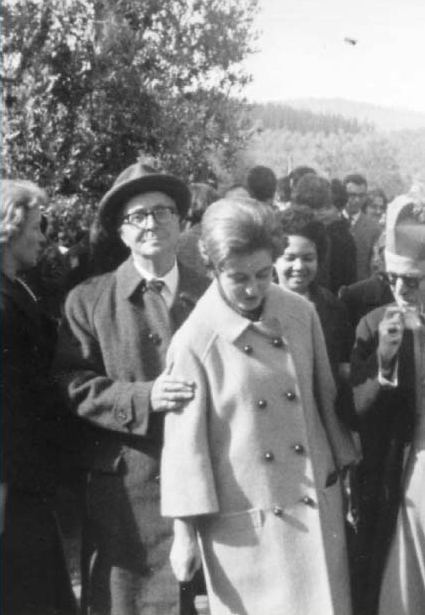
Apr 18, 2018 | Non categorizzato
 20 April 1979 – Like every Christian, my love goes to the Lord in every moment and I contemplate Him with respectful fear. At times, however, I take chances since it never represses my calling as a jokester. And this morning at Mass an invocation suddenly popped into my mind: “You are the Omnipotent.” And immediately after my weak poetic side looked for a rhyme: “I am ‘nopotent’.” Then, I thought that if I’m nothing, by receiving God into myself, I take on Divine value. 5 November 1979 – I’m often taken by thoughts of death, but they don’t come in darkness and sorrow. Death comes as a light that shows our greatness and the beauty of life, and of its Author who could be anything but a most benevolent father. Looking at certain periods in life was hard, crude, desolate: the misery, the mourning, the wars, the betrayals, the meaninglessness… But contemplated as a whole, life appears a prodigy – a demonstration – of God’s fatherliness: 86 years of life, the wounds of battle that kept the war ever present, the political battles, the financial problems, the misunderstandings both inflicted and undergone, the physical weakness, etc. But seen as a whole, it appears a defeat of death to me, a joyful and necessary operation in which I was given to do more good than bad and have feelings of extraordinary successes, friendships, journeys, mystical elevations, lessons of wisdom and faith. I never stop thanking the sharer of so many good thing that were, given to me so freely. So even amid the shadows and the sorrows, life was beautiful for me, a gift worthy of its Creator. And my daily observations, reasonings and verifying has proven to me the truth of the religious faith that has always enlightened me and made me want to live. Life is truly beautiful, and its beauty shows the absurdity of politics and the personal behaviours of those who have worked to make it ugly (war, terrorism, exploitation, hedonism, greed, lust) and all the deformations and lacerations intended by stupidity the intelligence of the world’s Enemy. Source: Igino Giordani, Diario di fuoco, Città Nuova, Rome, 2005 (1980), pp.238-240. Brochure: On the anniversary of his death, the Centre named after him has published a brochure about the life of Igino Giordani and his spiritual journey. For information: info@iginogiordani.info Giordani on Facebook
20 April 1979 – Like every Christian, my love goes to the Lord in every moment and I contemplate Him with respectful fear. At times, however, I take chances since it never represses my calling as a jokester. And this morning at Mass an invocation suddenly popped into my mind: “You are the Omnipotent.” And immediately after my weak poetic side looked for a rhyme: “I am ‘nopotent’.” Then, I thought that if I’m nothing, by receiving God into myself, I take on Divine value. 5 November 1979 – I’m often taken by thoughts of death, but they don’t come in darkness and sorrow. Death comes as a light that shows our greatness and the beauty of life, and of its Author who could be anything but a most benevolent father. Looking at certain periods in life was hard, crude, desolate: the misery, the mourning, the wars, the betrayals, the meaninglessness… But contemplated as a whole, life appears a prodigy – a demonstration – of God’s fatherliness: 86 years of life, the wounds of battle that kept the war ever present, the political battles, the financial problems, the misunderstandings both inflicted and undergone, the physical weakness, etc. But seen as a whole, it appears a defeat of death to me, a joyful and necessary operation in which I was given to do more good than bad and have feelings of extraordinary successes, friendships, journeys, mystical elevations, lessons of wisdom and faith. I never stop thanking the sharer of so many good thing that were, given to me so freely. So even amid the shadows and the sorrows, life was beautiful for me, a gift worthy of its Creator. And my daily observations, reasonings and verifying has proven to me the truth of the religious faith that has always enlightened me and made me want to live. Life is truly beautiful, and its beauty shows the absurdity of politics and the personal behaviours of those who have worked to make it ugly (war, terrorism, exploitation, hedonism, greed, lust) and all the deformations and lacerations intended by stupidity the intelligence of the world’s Enemy. Source: Igino Giordani, Diario di fuoco, Città Nuova, Rome, 2005 (1980), pp.238-240. Brochure: On the anniversary of his death, the Centre named after him has published a brochure about the life of Igino Giordani and his spiritual journey. For information: info@iginogiordani.info Giordani on Facebook
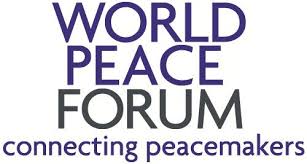
Apr 17, 2018 | Focolare Worldwide
 “Leadership for Peace” is the theme of the 12th edition of the World Peace Forum from 19 to 22 April. The International Forum links and gathers hundreds of young activists and promoters in the respective countries and actions for peace. After the recent editions in Cairo (Egypt), Florianapolis (Brazil) and Madaba (Jordan), this year Toronto (Canada) will host the event with an extensive programme of debates, studies and analyses for development, exchange of good practices, conflict resolution models, and identification of common values and strategies to create a chain of leaders motivated in building world peace. Forum 2018 particularly addresses directors, public and private administrators, teachers, educators, NGO presidents, religious leaders and government agencies, activists, and members of movements that operate in favour of dialogue, peace and disarmament. For information: www.worldpeaceforum.org
“Leadership for Peace” is the theme of the 12th edition of the World Peace Forum from 19 to 22 April. The International Forum links and gathers hundreds of young activists and promoters in the respective countries and actions for peace. After the recent editions in Cairo (Egypt), Florianapolis (Brazil) and Madaba (Jordan), this year Toronto (Canada) will host the event with an extensive programme of debates, studies and analyses for development, exchange of good practices, conflict resolution models, and identification of common values and strategies to create a chain of leaders motivated in building world peace. Forum 2018 particularly addresses directors, public and private administrators, teachers, educators, NGO presidents, religious leaders and government agencies, activists, and members of movements that operate in favour of dialogue, peace and disarmament. For information: www.worldpeaceforum.org

 It began as a dream, just as every other Focolare town had. In 1950, Switzerland, after contemplating from a mountain above the Benedictine Abbey of Einsiedeln, Chiara Lubich had the idea that one day the spirituality of unity would produce something similar: “A small town with all the elements of a modern city: houses, churches, schools, shops, businesses and other services. A community of people from diverse backgrounds joined by Jesus’s new commandment: ‘Love one another as I have loved you.’” Her dream came true, first in Loppiano, Italy, then in another 24 small towns. Mariapolis Lia is one of them in the middle of the Argentine Pampas. Carlos Becaria, who is co-responsible for the town, was a member of the first group of pioneers: “There wasn’t anything yet. But there was a prophetic inspiration. Vittorio Sabbione, one of the first focolarinos, said to us: “You’re here because you chose God. Discomforts won’t be lacking, so you’ll have to keep Jesus on the Cross in mind. I’m not offering you anything ready-made: you have to build it all for yourselves. We stayed because we believed in that dream.”
It began as a dream, just as every other Focolare town had. In 1950, Switzerland, after contemplating from a mountain above the Benedictine Abbey of Einsiedeln, Chiara Lubich had the idea that one day the spirituality of unity would produce something similar: “A small town with all the elements of a modern city: houses, churches, schools, shops, businesses and other services. A community of people from diverse backgrounds joined by Jesus’s new commandment: ‘Love one another as I have loved you.’” Her dream came true, first in Loppiano, Italy, then in another 24 small towns. Mariapolis Lia is one of them in the middle of the Argentine Pampas. Carlos Becaria, who is co-responsible for the town, was a member of the first group of pioneers: “There wasn’t anything yet. But there was a prophetic inspiration. Vittorio Sabbione, one of the first focolarinos, said to us: “You’re here because you chose God. Discomforts won’t be lacking, so you’ll have to keep Jesus on the Cross in mind. I’m not offering you anything ready-made: you have to build it all for yourselves. We stayed because we believed in that dream.”  Mariapolis Lia is named after Lia Brunet (December 25, 1917 – February 5, 2005), one of the first companions of Chiara Lubich, invited by her to become a pioneer and take the charism of unity to the Latin American continent. A woman of Trent, like the foundress of the Focolare, she was labelled a revolutionary because of the radical way they lived the Gospel on a continent marked by so many social problems. Obviously, she never imagined as she gave a strong push to the Mariapolis in Argentina, that one day it would bear her name. “Lia”, just like Loppiano in Italy, which was recently visited by Pope Francis, strives to be a tangible sign of a dream that is coming true: a more fraternal world renewed by the Gospel. Currently 220 people live in Mariapolis Lia, but it welcomes hundreds of visitors throughout the year, mostly young people for long or short stays. Nearby stands Solidaridad Business Park, inspired by the Focolare’s Economy of Communion Project.
Mariapolis Lia is named after Lia Brunet (December 25, 1917 – February 5, 2005), one of the first companions of Chiara Lubich, invited by her to become a pioneer and take the charism of unity to the Latin American continent. A woman of Trent, like the foundress of the Focolare, she was labelled a revolutionary because of the radical way they lived the Gospel on a continent marked by so many social problems. Obviously, she never imagined as she gave a strong push to the Mariapolis in Argentina, that one day it would bear her name. “Lia”, just like Loppiano in Italy, which was recently visited by Pope Francis, strives to be a tangible sign of a dream that is coming true: a more fraternal world renewed by the Gospel. Currently 220 people live in Mariapolis Lia, but it welcomes hundreds of visitors throughout the year, mostly young people for long or short stays. Nearby stands Solidaridad Business Park, inspired by the Focolare’s Economy of Communion Project.  More than 250 people took part in the celebrations at the end of April, which will continue during the 50th anniversary year of the Mariapolis’s founding. They will be attended by Church leaders, representatives from the Movement, Christian Churches, Jewish faithful and people with no religious affiliation. “We got there at night,” recalls Marta Yofre, one of the first young women to arrive on at the threshold of the Mariapolis. I was feeling a sense of powerlessness, but also one certainty: Our Lady would be the one to build it.” Nieves Tapia, founder of the Latin American Centre for Learning and Solidarity Service, attended the training school for young people in the 1980s: “Here I learned to love the other country as my own and to enlarge my heart to all of Latin America.” “Without realizing it, I was given the gift to experience as something normal, what was actually totally revolutionary: love for neighbour.” For Arturo Claria, a psychologist, UNESCO Master in Culture of Peace, what he experienced in the Mariapolis twenty years ago “is a mark that I will never be able to erase, a living demonstration that love transcends life.”
More than 250 people took part in the celebrations at the end of April, which will continue during the 50th anniversary year of the Mariapolis’s founding. They will be attended by Church leaders, representatives from the Movement, Christian Churches, Jewish faithful and people with no religious affiliation. “We got there at night,” recalls Marta Yofre, one of the first young women to arrive on at the threshold of the Mariapolis. I was feeling a sense of powerlessness, but also one certainty: Our Lady would be the one to build it.” Nieves Tapia, founder of the Latin American Centre for Learning and Solidarity Service, attended the training school for young people in the 1980s: “Here I learned to love the other country as my own and to enlarge my heart to all of Latin America.” “Without realizing it, I was given the gift to experience as something normal, what was actually totally revolutionary: love for neighbour.” For Arturo Claria, a psychologist, UNESCO Master in Culture of Peace, what he experienced in the Mariapolis twenty years ago “is a mark that I will never be able to erase, a living demonstration that love transcends life.”  The Bishop of Mercedes-Lujan, Augustin Radrizzani: “It’s moving to realize what significance it has had for our country and for the world. It unites universal peace and brotherly love, illumined by the grace of this ideal.” Eduardo Leibobich from the Hebrew Organization for Inter-Confessional Dialogue, recalled the numerous “Peace Days that were held by the Mariapolis. Methodist pastor Fernando Suarez from the Ecumenical Movement of the Human Rights of People With Different Convictions: “I extend an invitation to join forces. It’s too beautiful the ideal of a free and equal human race, made brother and sister by respect and by mutual love.” Gustavo Clariá
The Bishop of Mercedes-Lujan, Augustin Radrizzani: “It’s moving to realize what significance it has had for our country and for the world. It unites universal peace and brotherly love, illumined by the grace of this ideal.” Eduardo Leibobich from the Hebrew Organization for Inter-Confessional Dialogue, recalled the numerous “Peace Days that were held by the Mariapolis. Methodist pastor Fernando Suarez from the Ecumenical Movement of the Human Rights of People With Different Convictions: “I extend an invitation to join forces. It’s too beautiful the ideal of a free and equal human race, made brother and sister by respect and by mutual love.” Gustavo Clariá








 Maria Voce went on to say: “Chiara Lubich left an indelible mark with her efforts in favour of communion in the Church, for
Maria Voce went on to say: “Chiara Lubich left an indelible mark with her efforts in favour of communion in the Church, for  “Despite the many emergencies in recent years – indeed, because of them – the Movement in Sicily is deeply focused on witnessing to unity and building it among the members of the human family wherever that family may be threatened. This is the way they respond to Chiara’s appeal when she urges all of us to “build a new culture that would be a culture of human rights, a culture of law and order, a culture of love, a culture of life and never of death.” Maria Voce went on the say: “I think I can say something has already begun towards that goal. Certainly there is still a long road ahead, but it is a goal that with the entire Movement we renew today: to do our part at creating that ‘new civilization’ which contains all those values that are often trampled on . . . and to grow more and more – as Chiara says – all our Christian brothers and sisters, without leaving out the other religions, without leaving out anyone.” In so doing, we will truly be able to give life to a ‘culture of unity’ which Chiara more than once defined as the ‘culture of the Resurrection’.”
“Despite the many emergencies in recent years – indeed, because of them – the Movement in Sicily is deeply focused on witnessing to unity and building it among the members of the human family wherever that family may be threatened. This is the way they respond to Chiara’s appeal when she urges all of us to “build a new culture that would be a culture of human rights, a culture of law and order, a culture of love, a culture of life and never of death.” Maria Voce went on the say: “I think I can say something has already begun towards that goal. Certainly there is still a long road ahead, but it is a goal that with the entire Movement we renew today: to do our part at creating that ‘new civilization’ which contains all those values that are often trampled on . . . and to grow more and more – as Chiara says – all our Christian brothers and sisters, without leaving out the other religions, without leaving out anyone.” In so doing, we will truly be able to give life to a ‘culture of unity’ which Chiara more than once defined as the ‘culture of the Resurrection’.” 

 She lives and works in the province of Genoa, in a city of the North West, a very pleasant area between the sea and the mountains. Her role as president of one of the consortia of the social enterprise network with about seven hundred employees in the social service sector, welfare and job placement for disadvantaged people and regional representative of AIPEC (Italian Association of Entrepreneurs for an Economy of Communion) have in no way diminished her spontaneity and simplicity. Her testimony was closely listened to during a conference at the Italian Embassy in the Vatican, on May 3, 2018. The title of her talk was “
She lives and works in the province of Genoa, in a city of the North West, a very pleasant area between the sea and the mountains. Her role as president of one of the consortia of the social enterprise network with about seven hundred employees in the social service sector, welfare and job placement for disadvantaged people and regional representative of AIPEC (Italian Association of Entrepreneurs for an Economy of Communion) have in no way diminished her spontaneity and simplicity. Her testimony was closely listened to during a conference at the Italian Embassy in the Vatican, on May 3, 2018. The title of her talk was “









 «What did you do when you were my age? What games did you like best?». 10-year-old Luis Francisco from Mexico, now in
«What did you do when you were my age? What games did you like best?». 10-year-old Luis Francisco from Mexico, now in 



 In
In 





















 Deepening the theme of Dialogue in the pedagogical field. With operators, teachers, schools, pedagogical approaches and different educational experiences, young people, undergraduates, PhD students who will present their research work. Info:
Deepening the theme of Dialogue in the pedagogical field. With operators, teachers, schools, pedagogical approaches and different educational experiences, young people, undergraduates, PhD students who will present their research work. Info: 




 “Ten years after her death, we’re here to remember a great woman», announced the Archbishop of Belgrade, Serbia, Most Rev Stanislav Hočevar while celebrating an anniversary Mass on 14th March. He continued, “At a time when darkness overshadowed the world, a new Light illuminated Chiara’s heart. Even as sin, hatred and evil were creating divisions, Love came close, connecting and unifying, to restore and rebuild. Today, as in those times, surrounded as we are by the chaos of social, cultural and historic conflicts, we too are called to enkindle a new light of understanding, unity and cooperation.” Connecting, coming close, uniting, rebuilding’: these words convey something of the global celebration which began in March and is still ongoing; each event an occasion to recall and relaunch the spiritual legacy of the Focolare founder, Chiara Lubich. «If I was to leave this earth today and you were to ask for my last words, the last word on our Ideal, I would say, sure that you would understand exactly what I mean: Be a family.” Chiara said this back in December 1973, but her words, her legacy, touch hearts today as powerfully as ever, as seen in the news arriving from all over the world of encounters and actions inspired by this anniversary.
“Ten years after her death, we’re here to remember a great woman», announced the Archbishop of Belgrade, Serbia, Most Rev Stanislav Hočevar while celebrating an anniversary Mass on 14th March. He continued, “At a time when darkness overshadowed the world, a new Light illuminated Chiara’s heart. Even as sin, hatred and evil were creating divisions, Love came close, connecting and unifying, to restore and rebuild. Today, as in those times, surrounded as we are by the chaos of social, cultural and historic conflicts, we too are called to enkindle a new light of understanding, unity and cooperation.” Connecting, coming close, uniting, rebuilding’: these words convey something of the global celebration which began in March and is still ongoing; each event an occasion to recall and relaunch the spiritual legacy of the Focolare founder, Chiara Lubich. «If I was to leave this earth today and you were to ask for my last words, the last word on our Ideal, I would say, sure that you would understand exactly what I mean: Be a family.” Chiara said this back in December 1973, but her words, her legacy, touch hearts today as powerfully as ever, as seen in the news arriving from all over the world of encounters and actions inspired by this anniversary. 
 In six regions of Kenya, each in their own way subject to socio-political tensions and at times openly violent conflicts, the local Focolare communities held a series of day meetings proposing a message of unity, more needed than ever to tackle the challenges and difficulties of this multi-ethnic multi-faith nation. Venues included Garissa, eastern Kenya, where tension remains high between Christians and Muslims, Amukura and Seme in the west, Mombassa on the coast, as well as Karatina in the central region and Meru in the North East. “Chiara continues to guide us to this very day,” was the general reaction.
In six regions of Kenya, each in their own way subject to socio-political tensions and at times openly violent conflicts, the local Focolare communities held a series of day meetings proposing a message of unity, more needed than ever to tackle the challenges and difficulties of this multi-ethnic multi-faith nation. Venues included Garissa, eastern Kenya, where tension remains high between Christians and Muslims, Amukura and Seme in the west, Mombassa on the coast, as well as Karatina in the central region and Meru in the North East. “Chiara continues to guide us to this very day,” was the general reaction.  The presence and participation of religious leaders and Church representatives in numerous events was appreciated around the world. In Warsaw, Poland, the head of the Methodist Church sent a warmly-received message, and the Papal Nuncio conveyed greetings from Pope Francis. In Russia, a gathering in Moscow recalled with renewed joy the pioneering era of the 1970s when the first Focolarini arrived in the then Soviet Union. Nearly 2,000km away on the eastern slopes of the Ural Mountains, a Focolare community met in Chelyabinsk. While 4,000km from Moscow, in Central Siberia, a 3-day “Mariapolis” at Krasnojarsk also reflected Chiara’s call to be “a family”. Chiara Lubich’s “legacy” rang out loud and clear in Dublin, Ireland, the city preparing to host the forthcoming World Meeting of Families in August. Particularly moving were testimonies of care and support between the generations inspired by Chiara’s life and words. In Stockholm, Sweden, a group of young people prepared an abundant supper for the whole Focolare community. Over the meal, the conversation revealed the lasting effects of the spirituality of unity in each person’s life. Yet another characteristically “family” celebration. Chiara Favotti
The presence and participation of religious leaders and Church representatives in numerous events was appreciated around the world. In Warsaw, Poland, the head of the Methodist Church sent a warmly-received message, and the Papal Nuncio conveyed greetings from Pope Francis. In Russia, a gathering in Moscow recalled with renewed joy the pioneering era of the 1970s when the first Focolarini arrived in the then Soviet Union. Nearly 2,000km away on the eastern slopes of the Ural Mountains, a Focolare community met in Chelyabinsk. While 4,000km from Moscow, in Central Siberia, a 3-day “Mariapolis” at Krasnojarsk also reflected Chiara’s call to be “a family”. Chiara Lubich’s “legacy” rang out loud and clear in Dublin, Ireland, the city preparing to host the forthcoming World Meeting of Families in August. Particularly moving were testimonies of care and support between the generations inspired by Chiara’s life and words. In Stockholm, Sweden, a group of young people prepared an abundant supper for the whole Focolare community. Over the meal, the conversation revealed the lasting effects of the spirituality of unity in each person’s life. Yet another characteristically “family” celebration. Chiara Favotti














